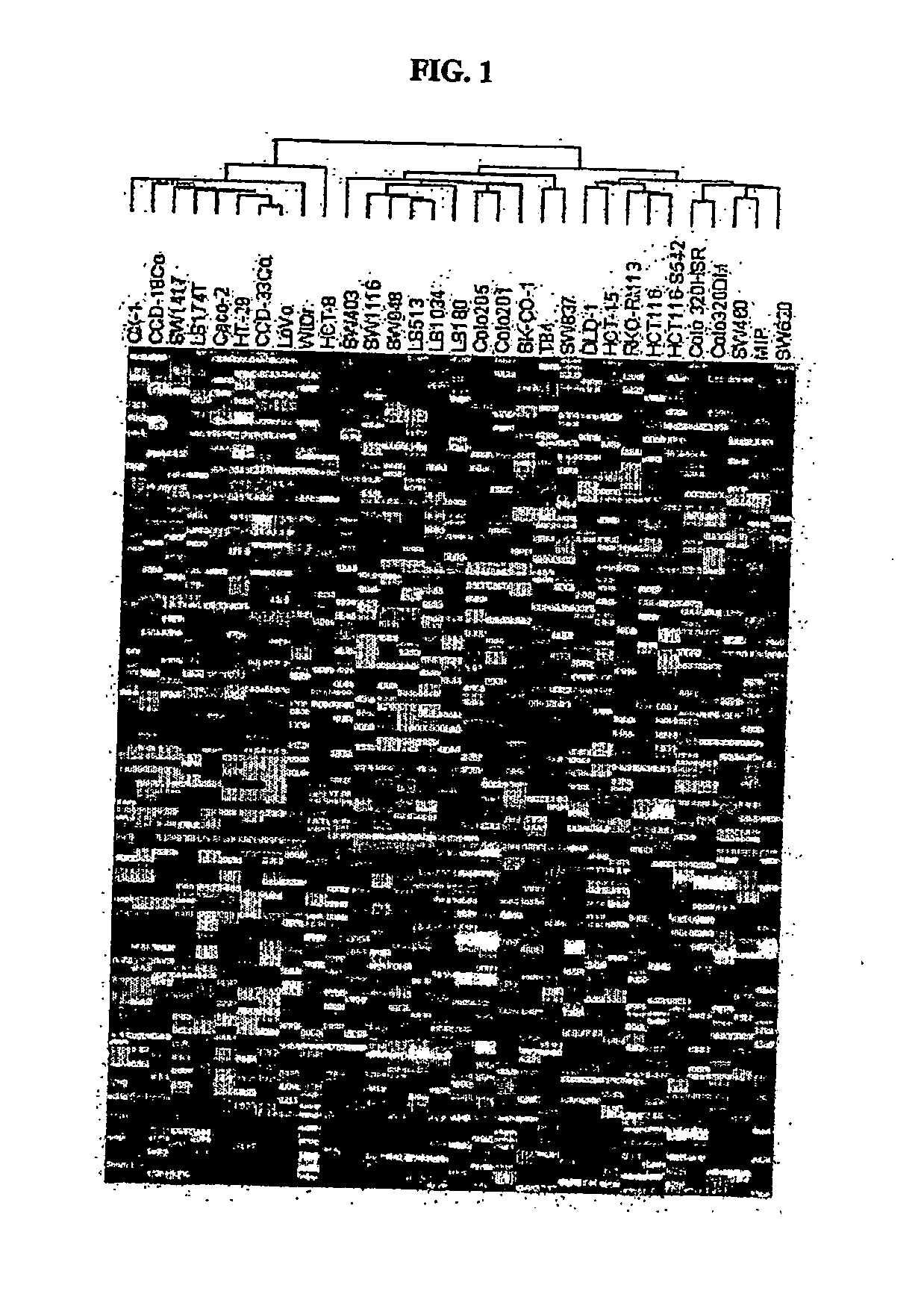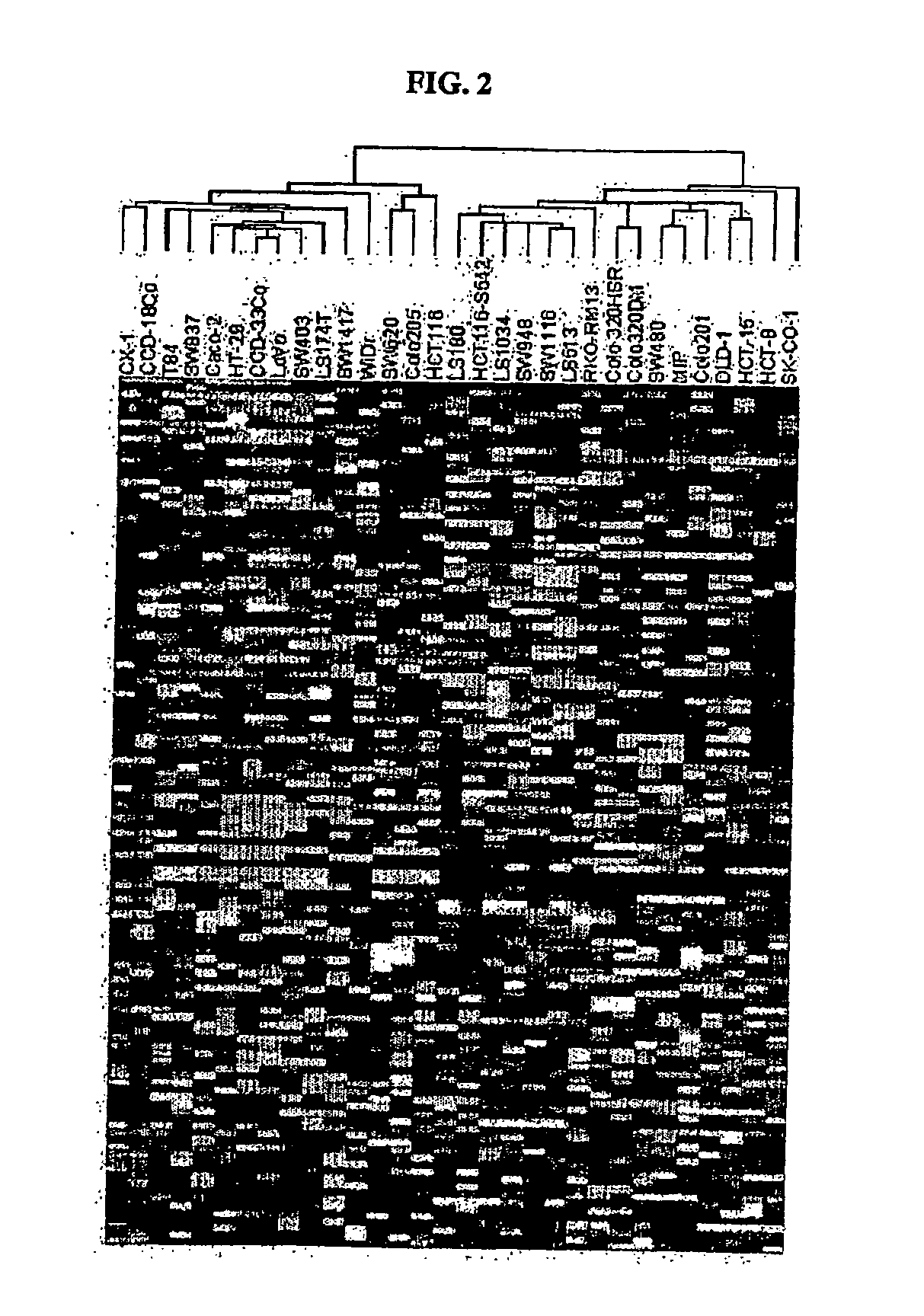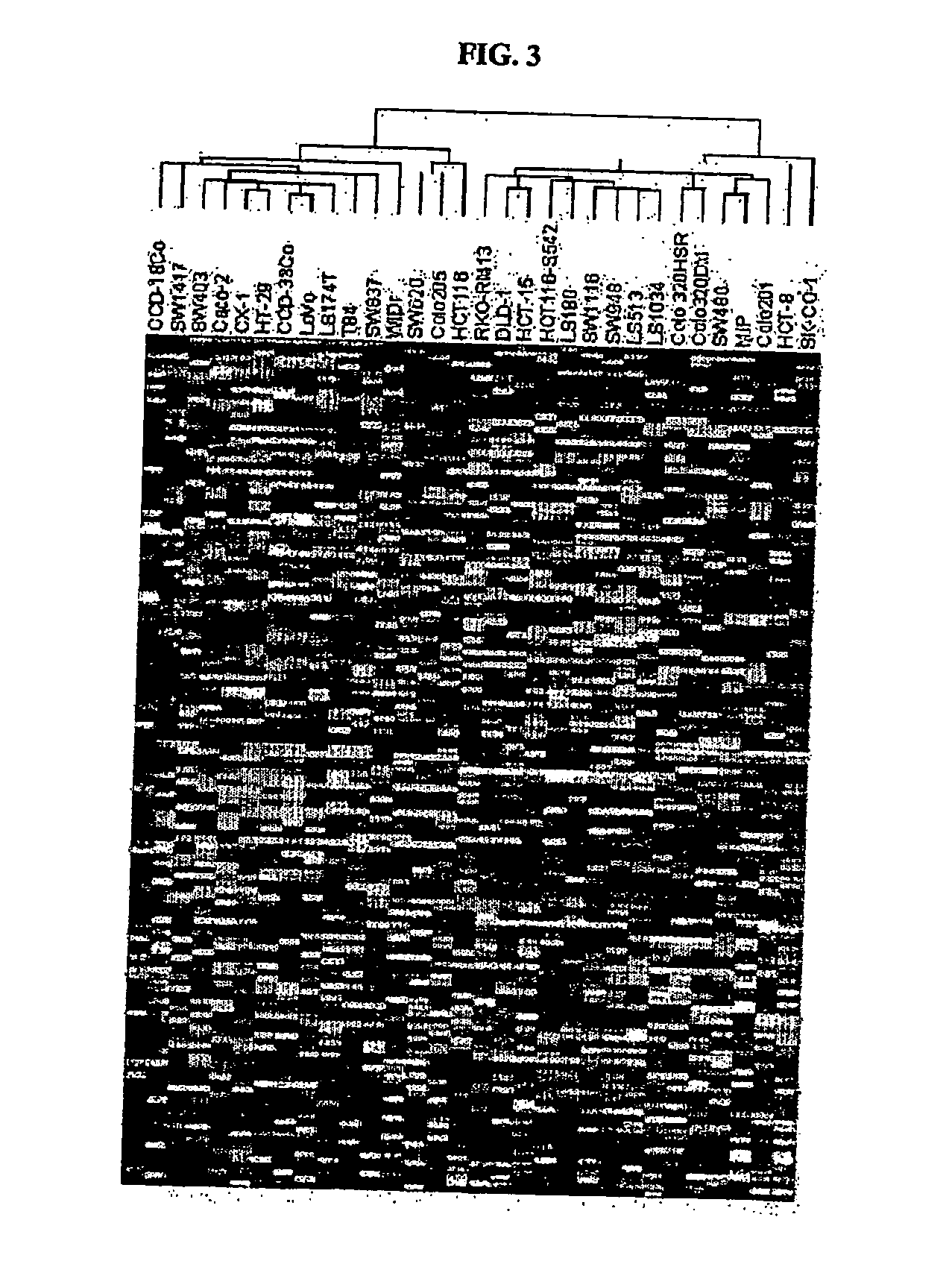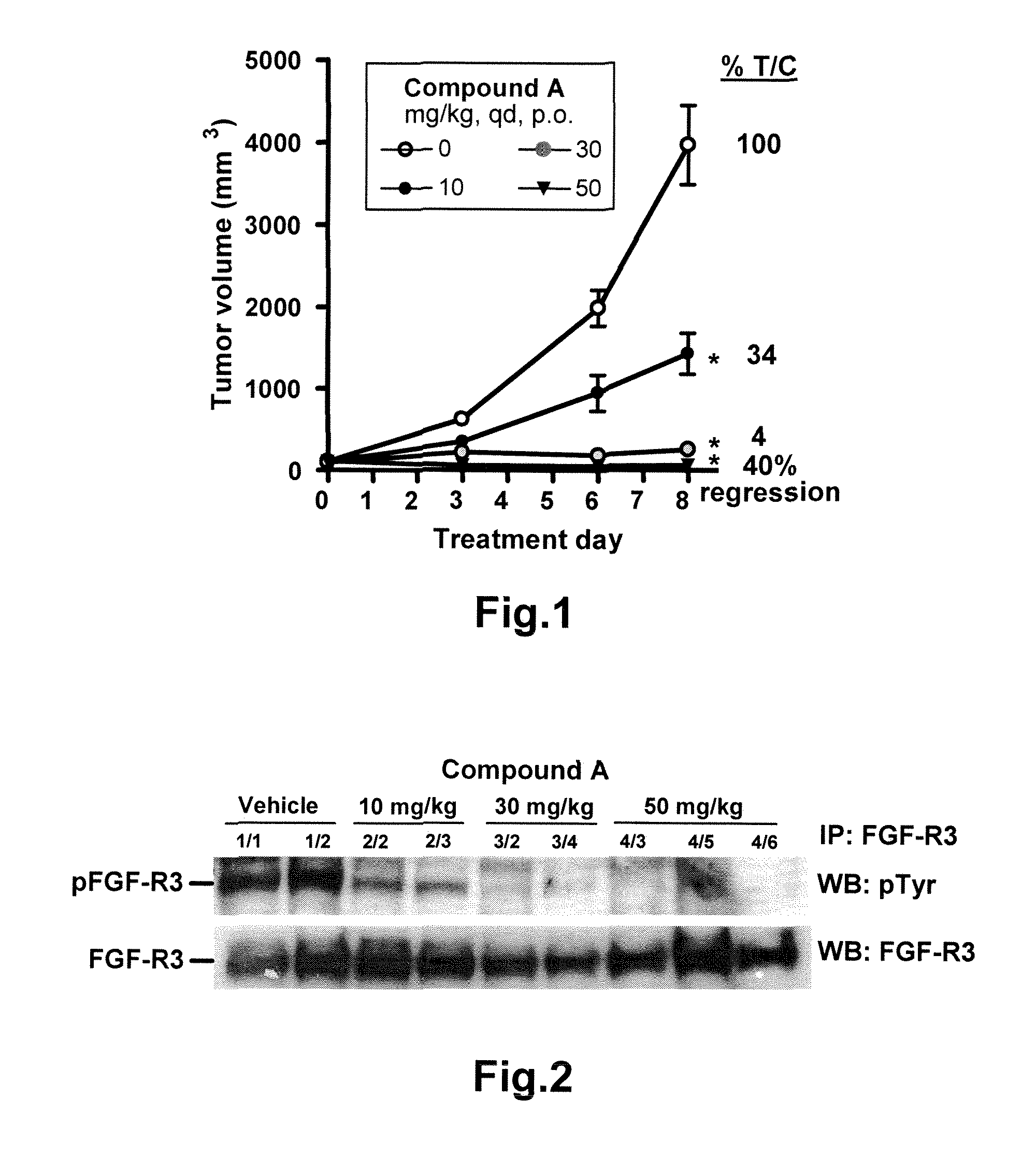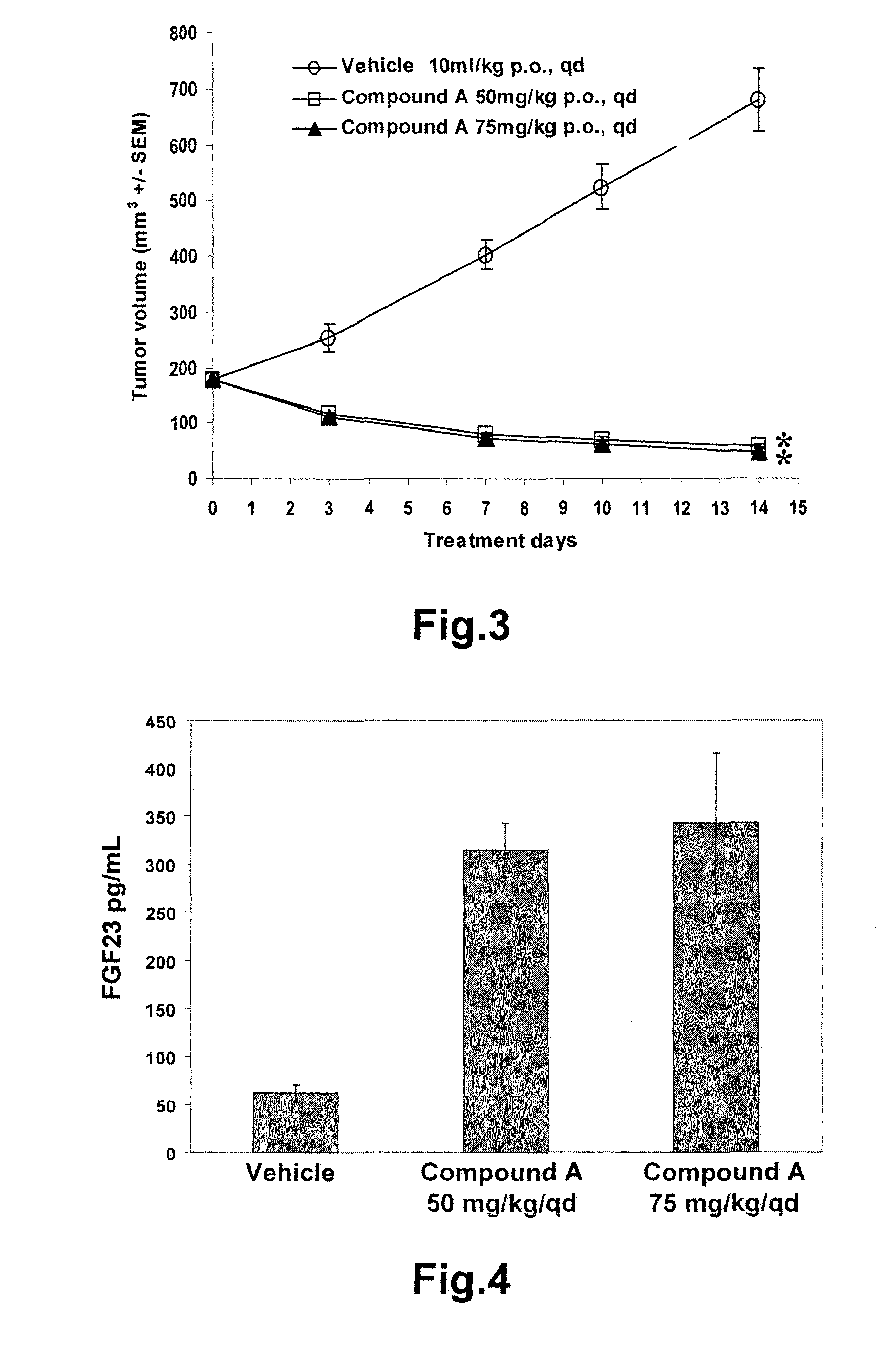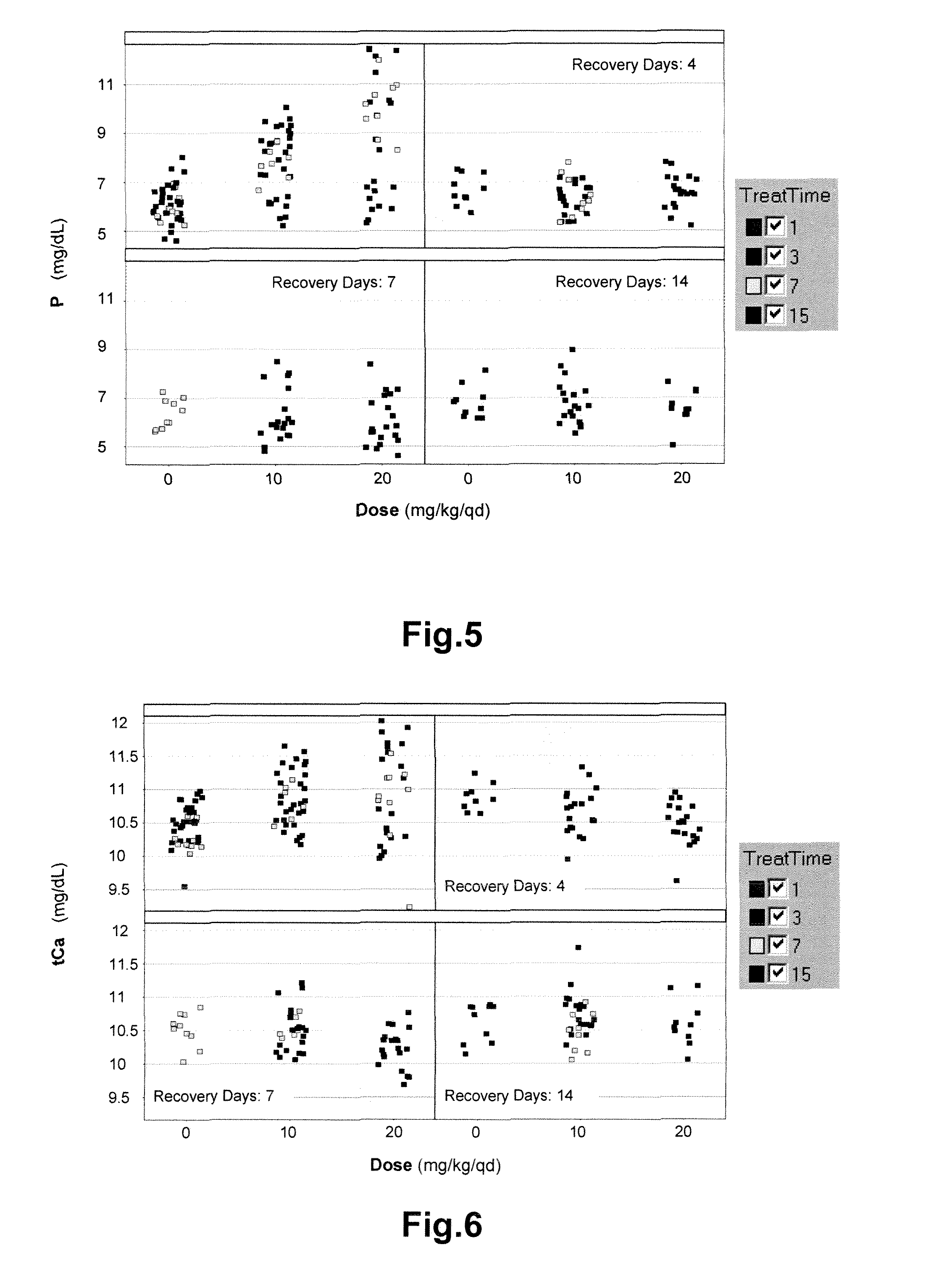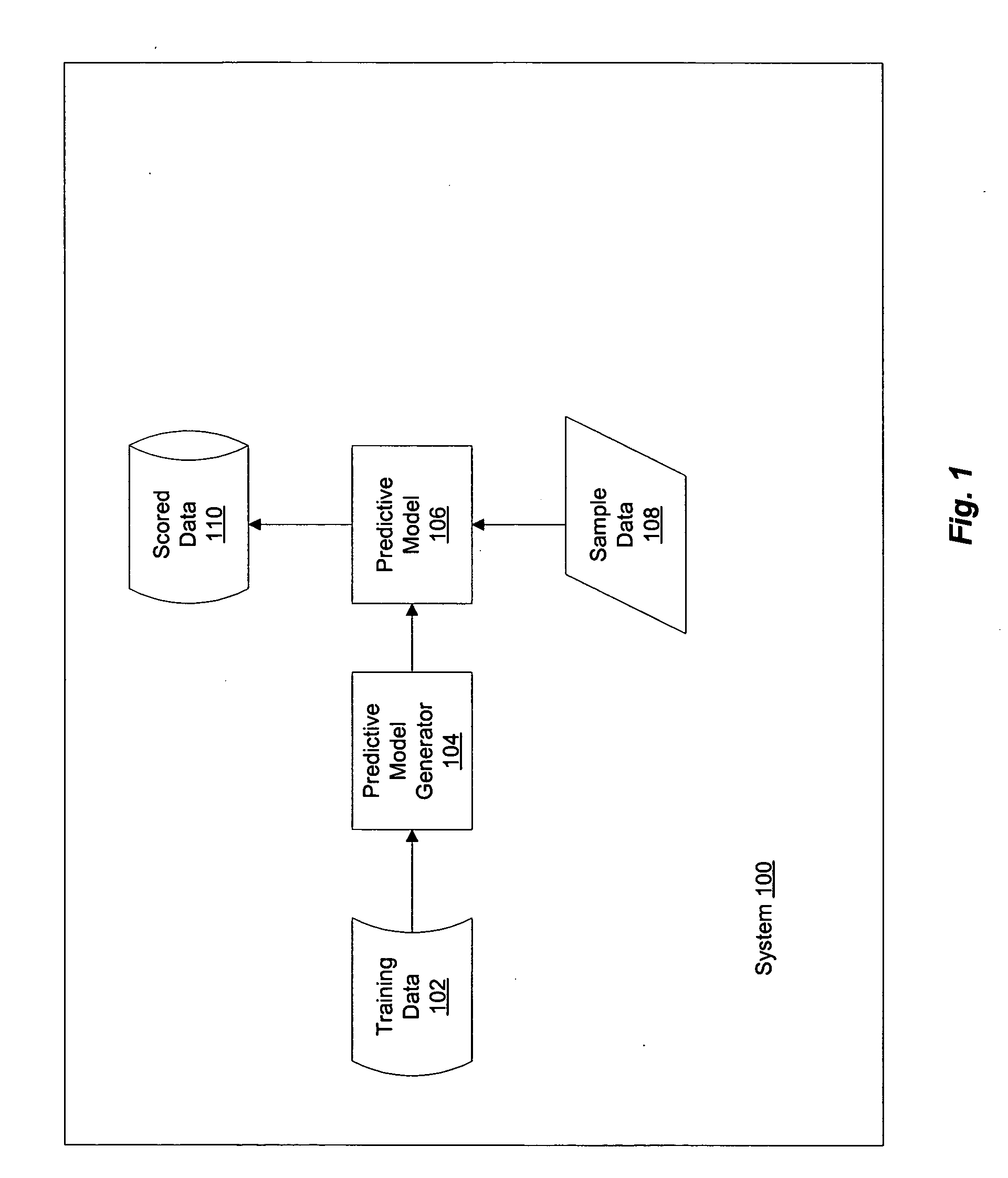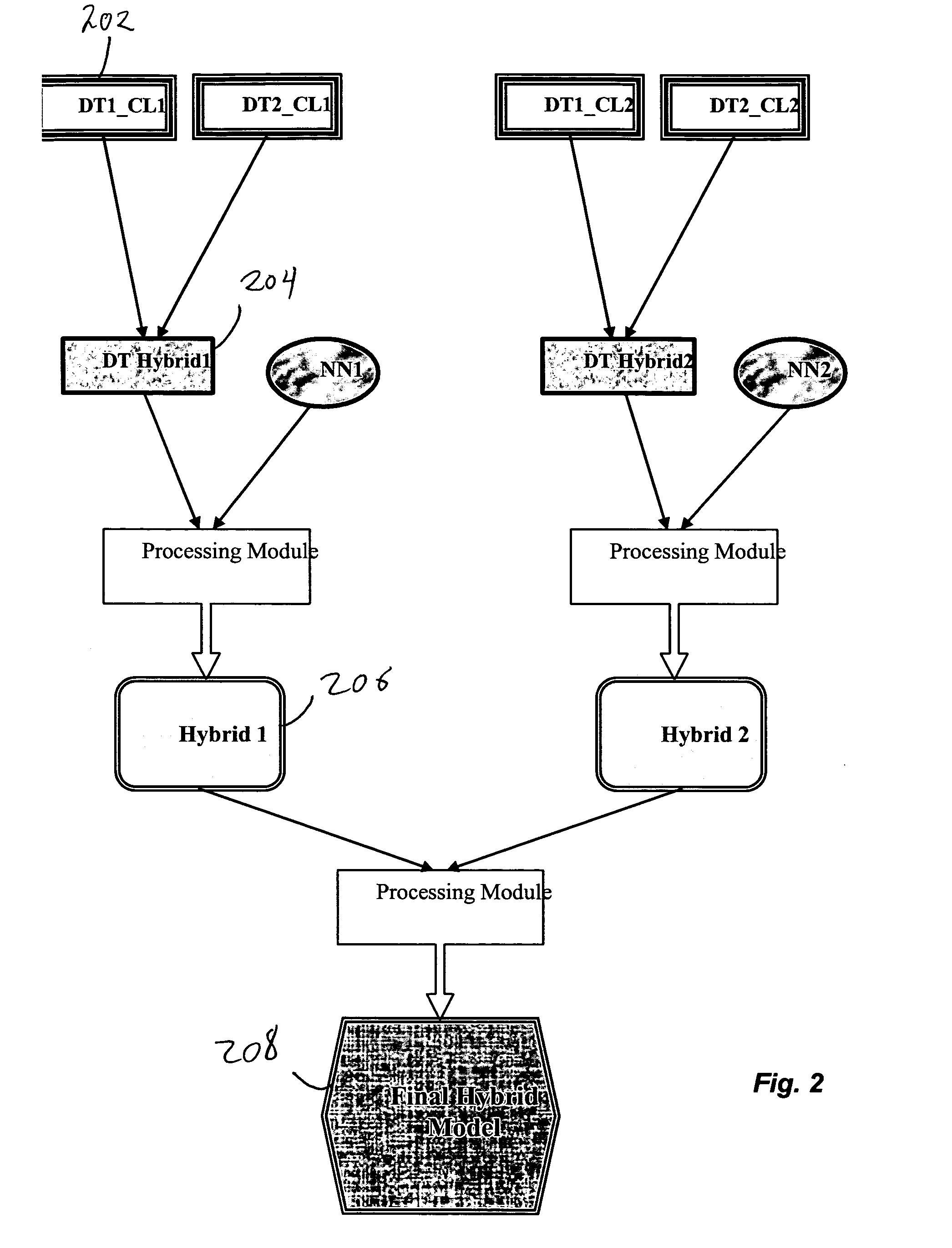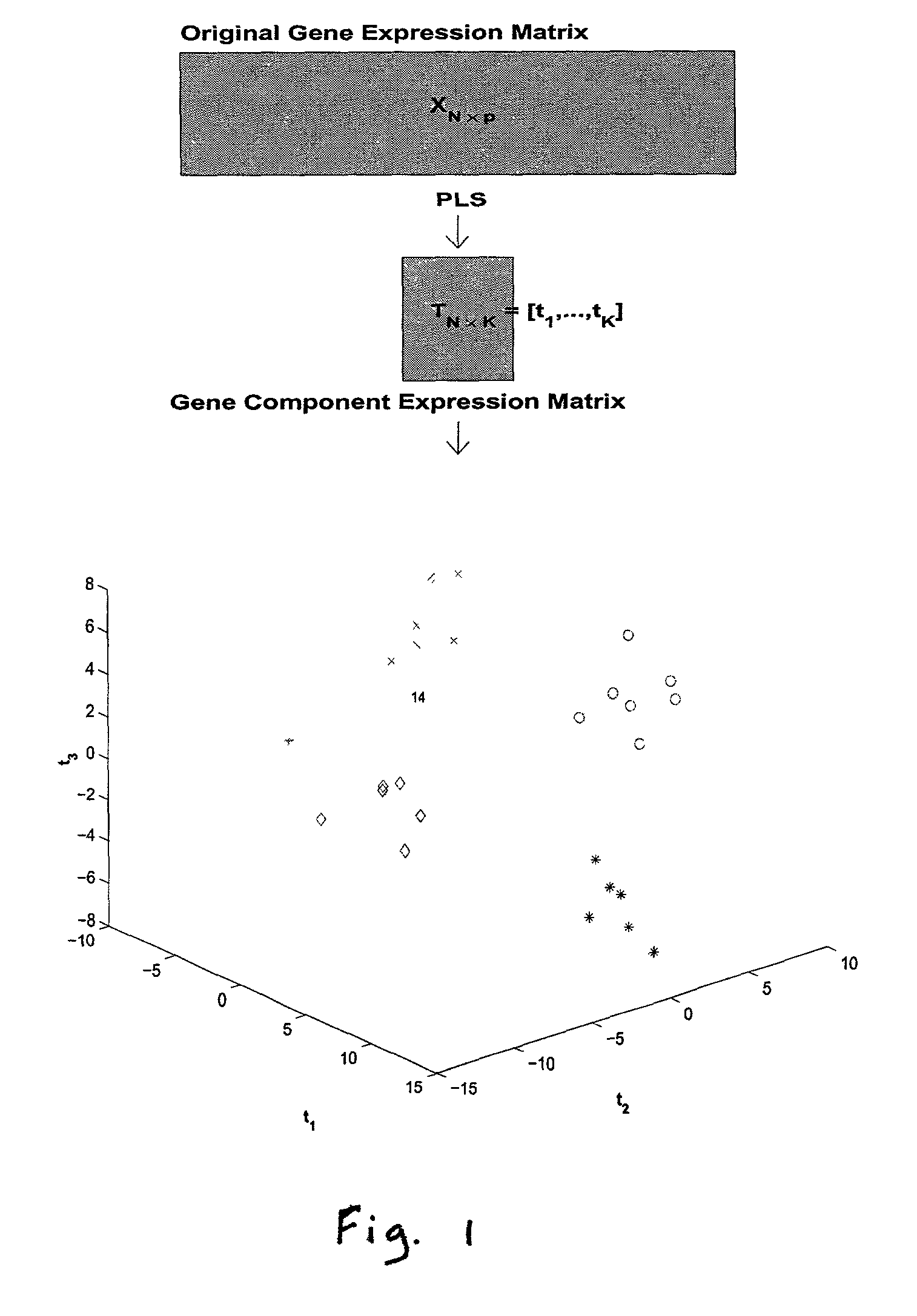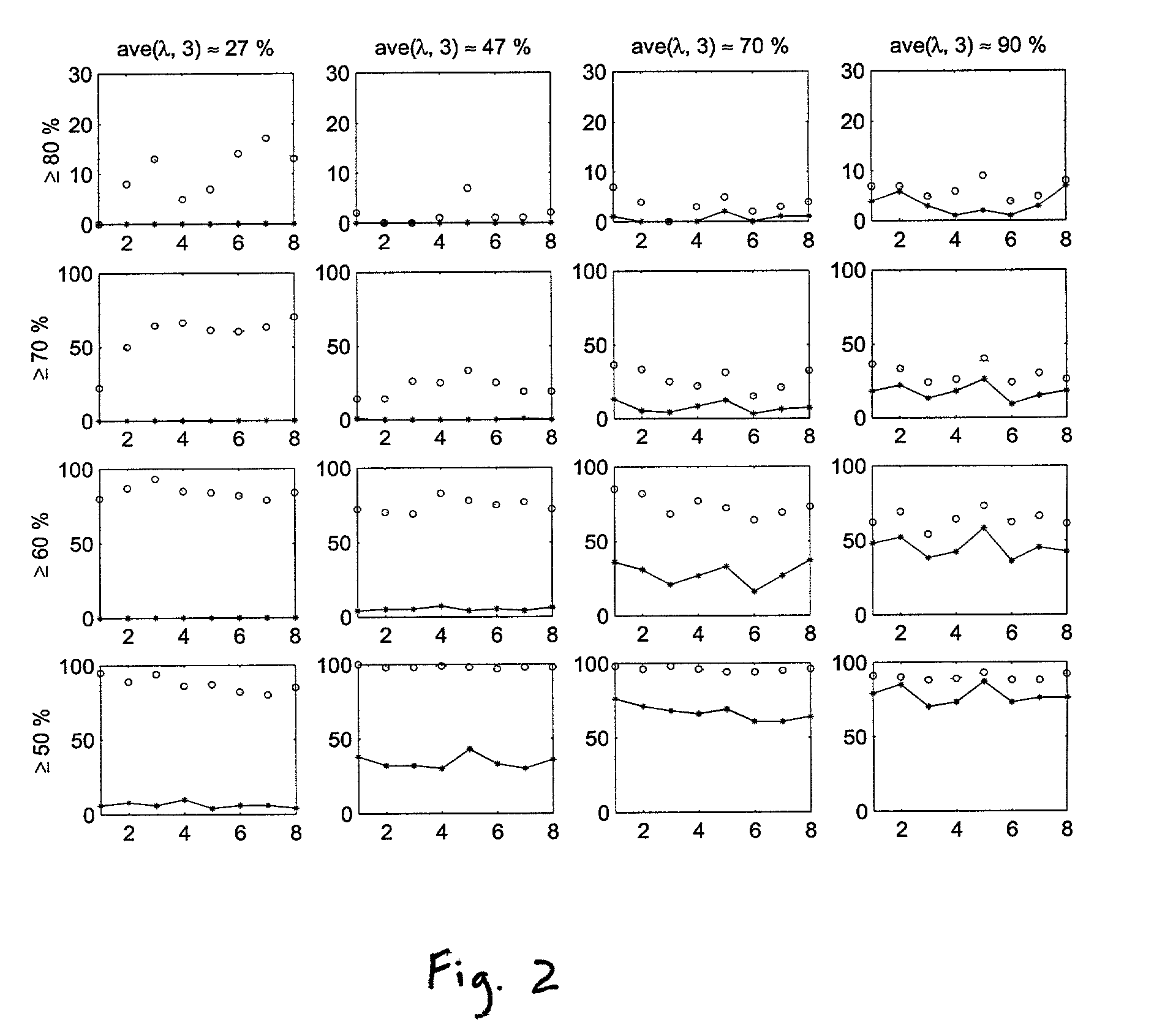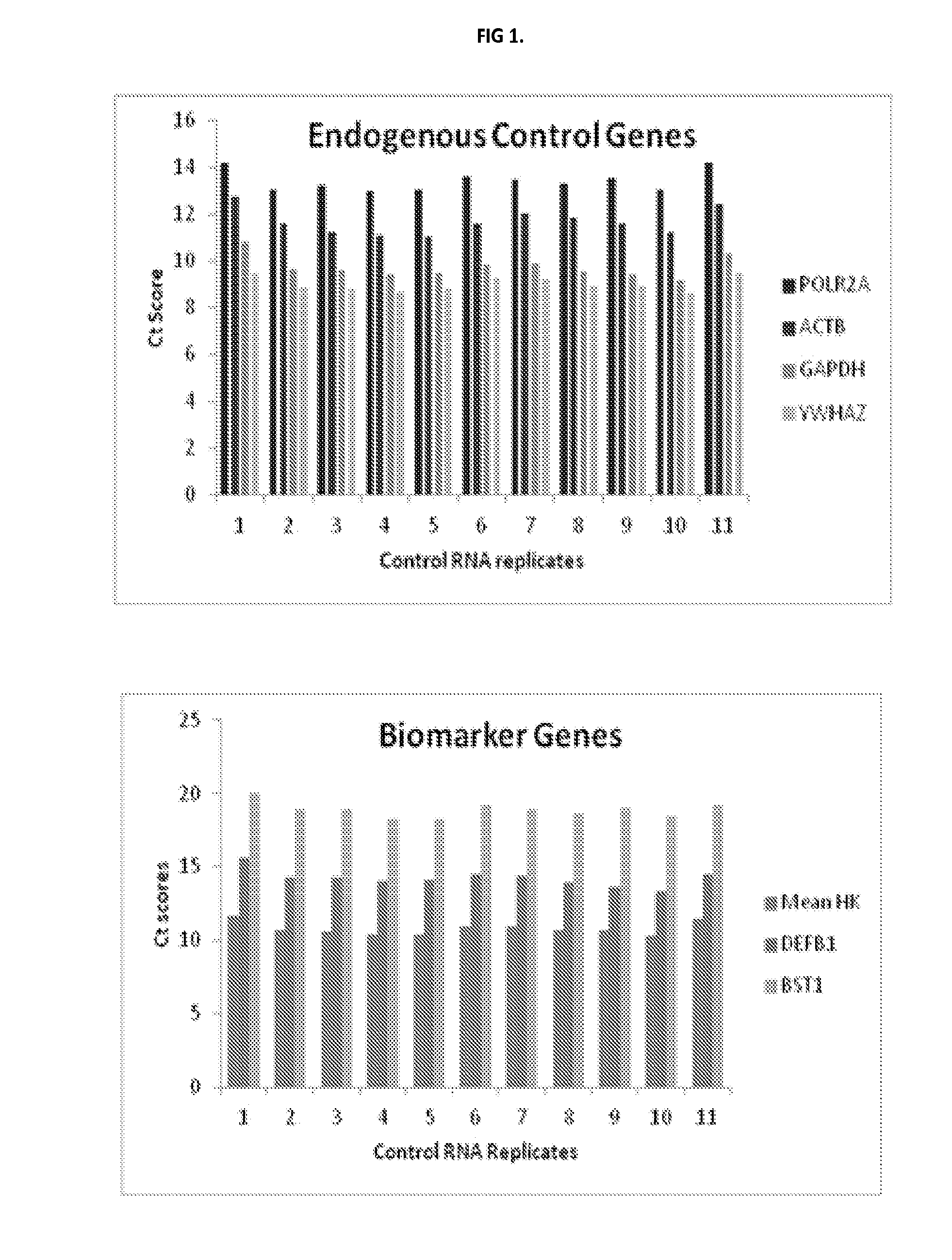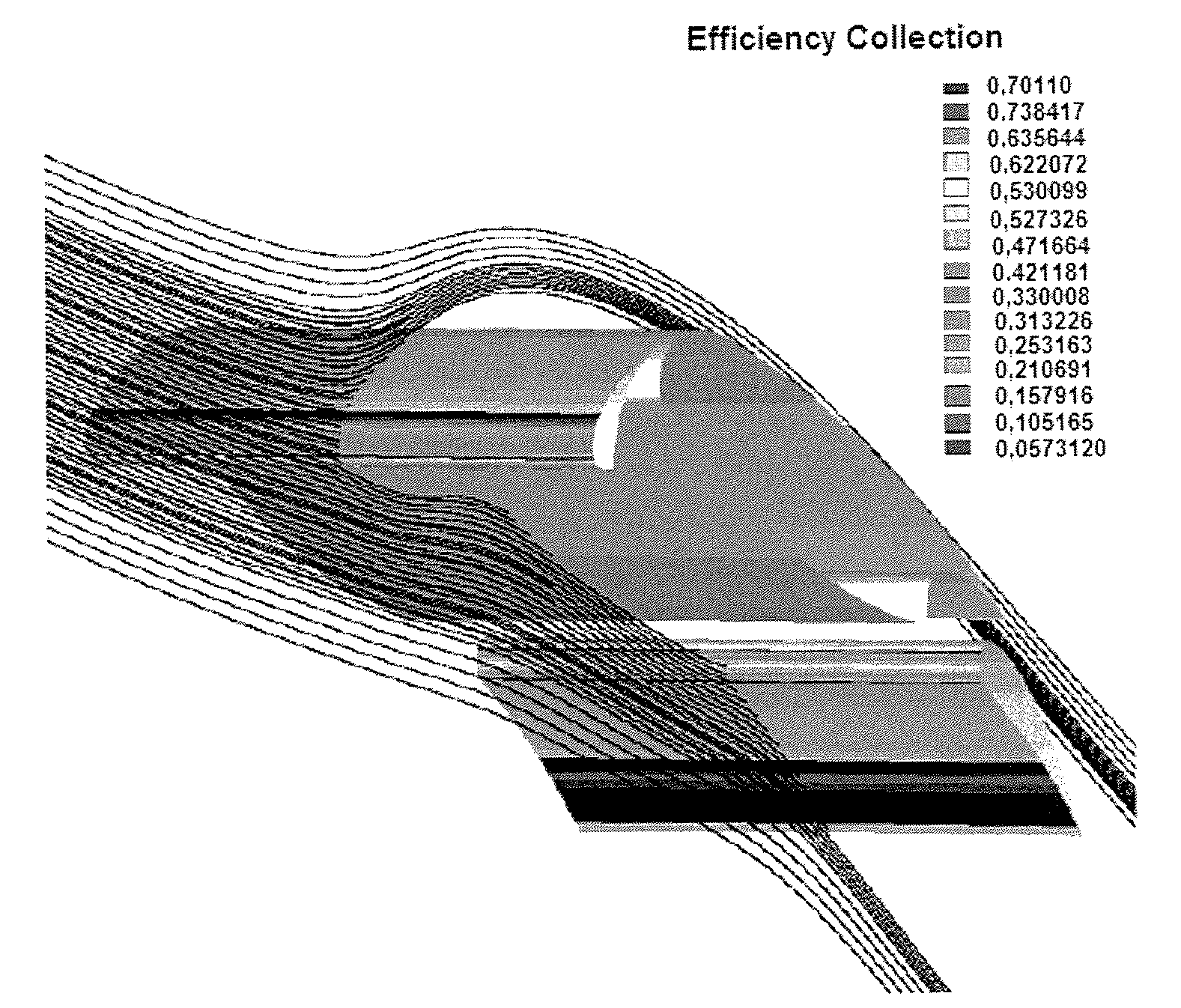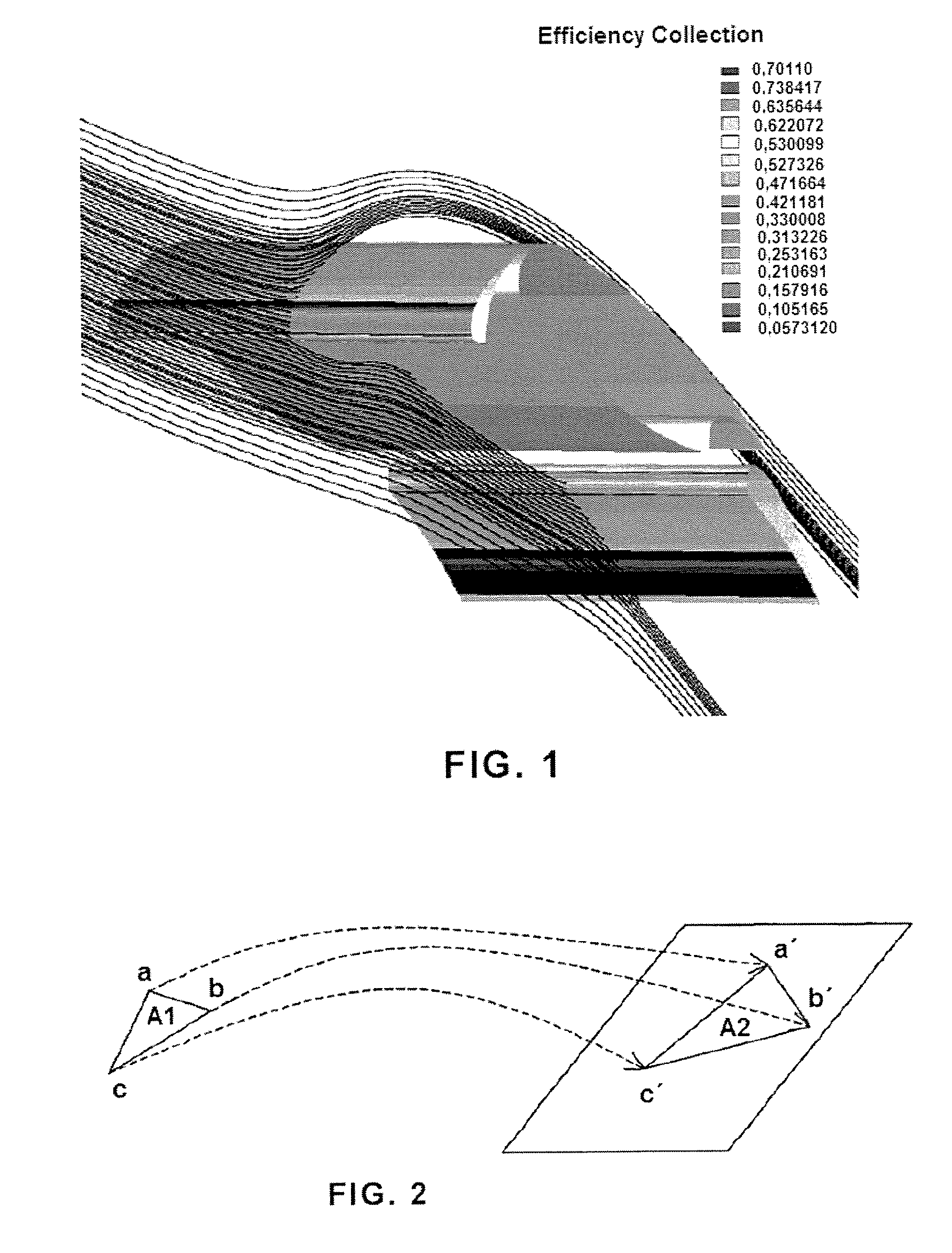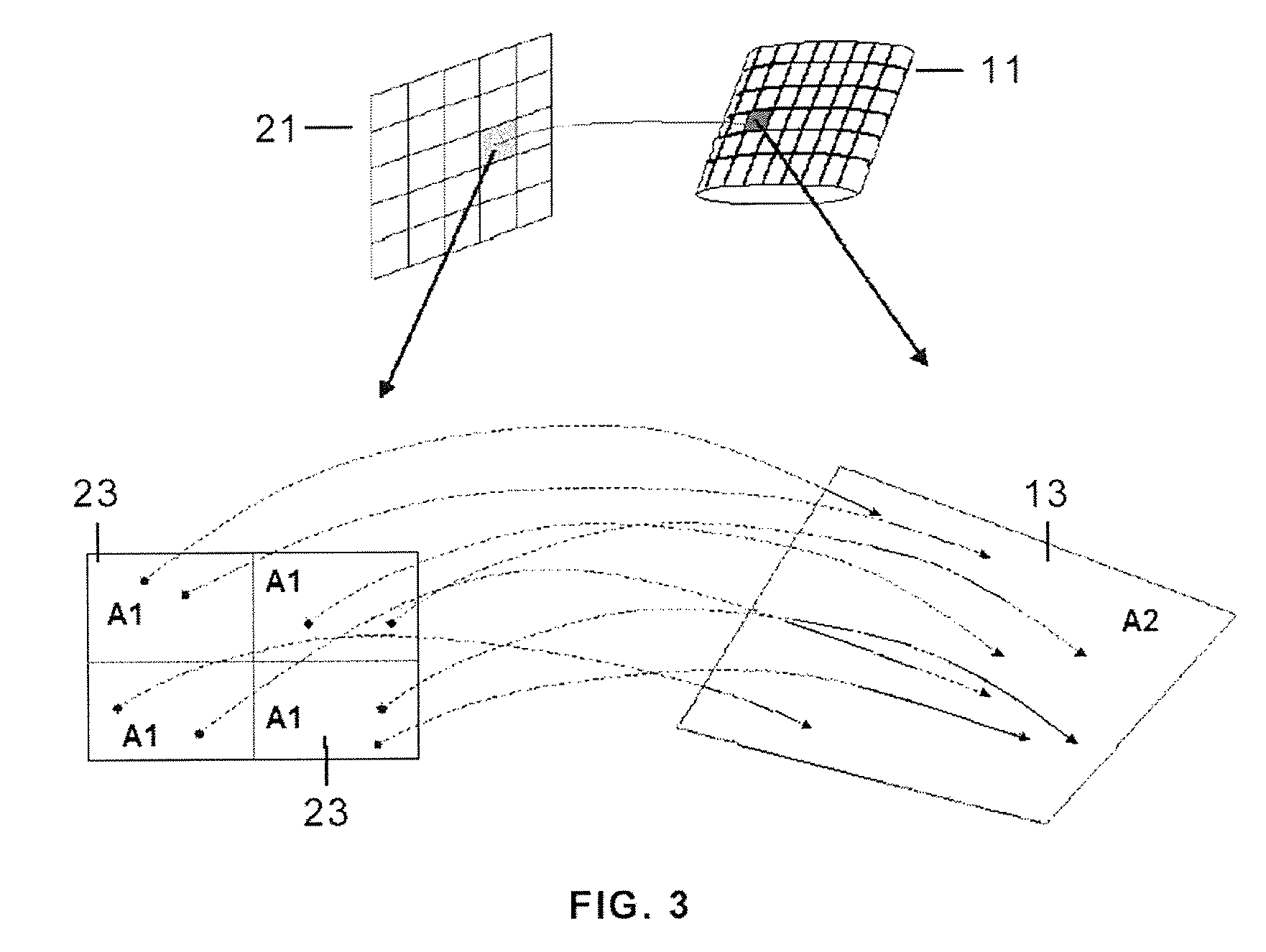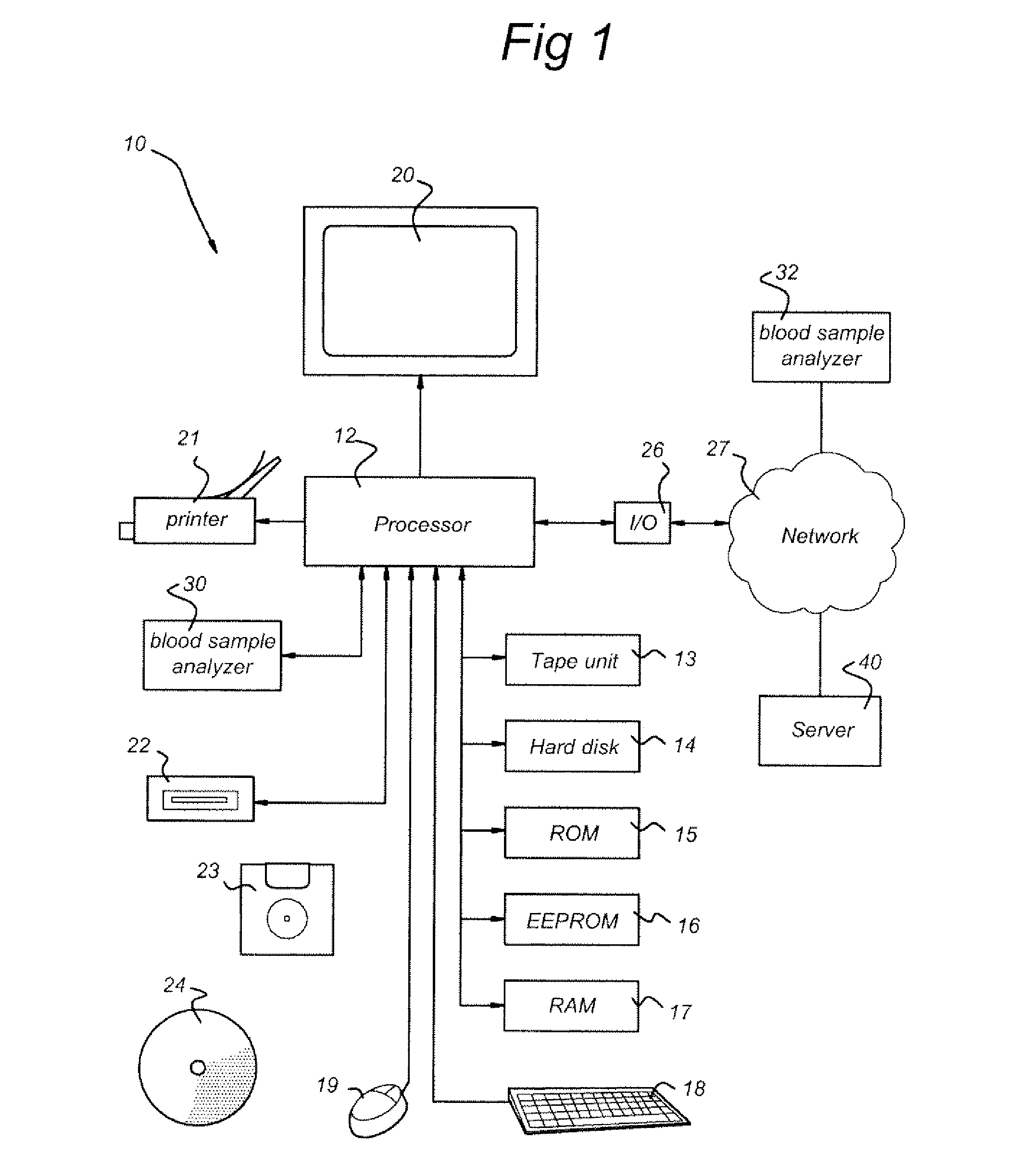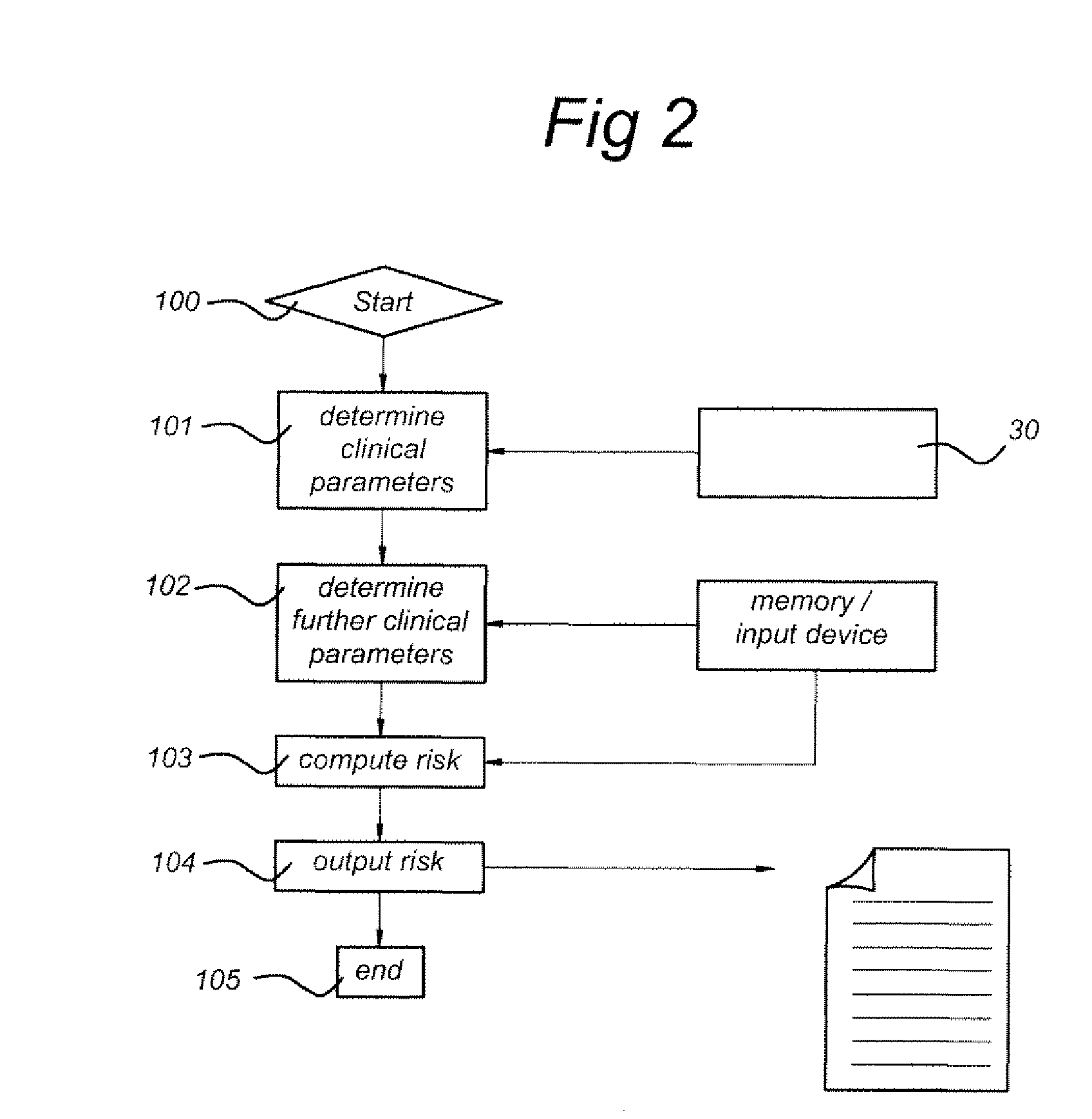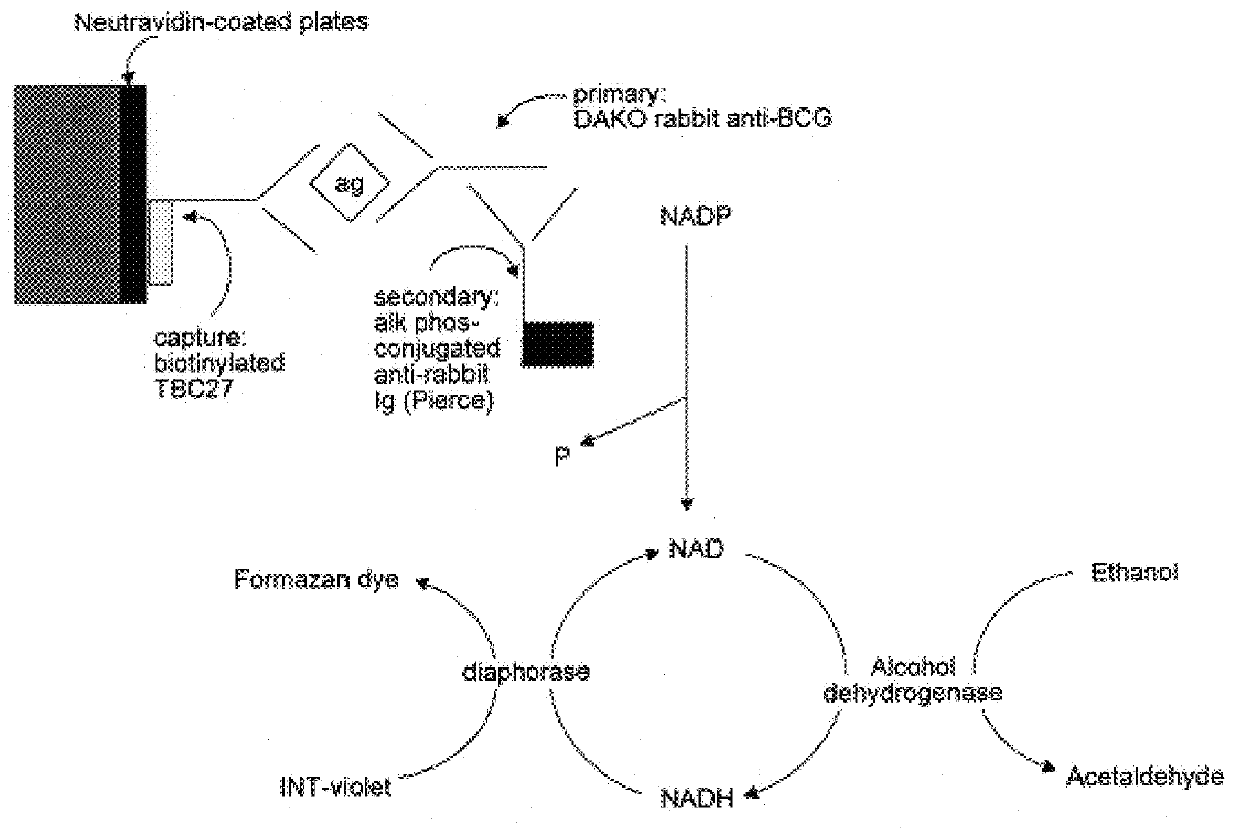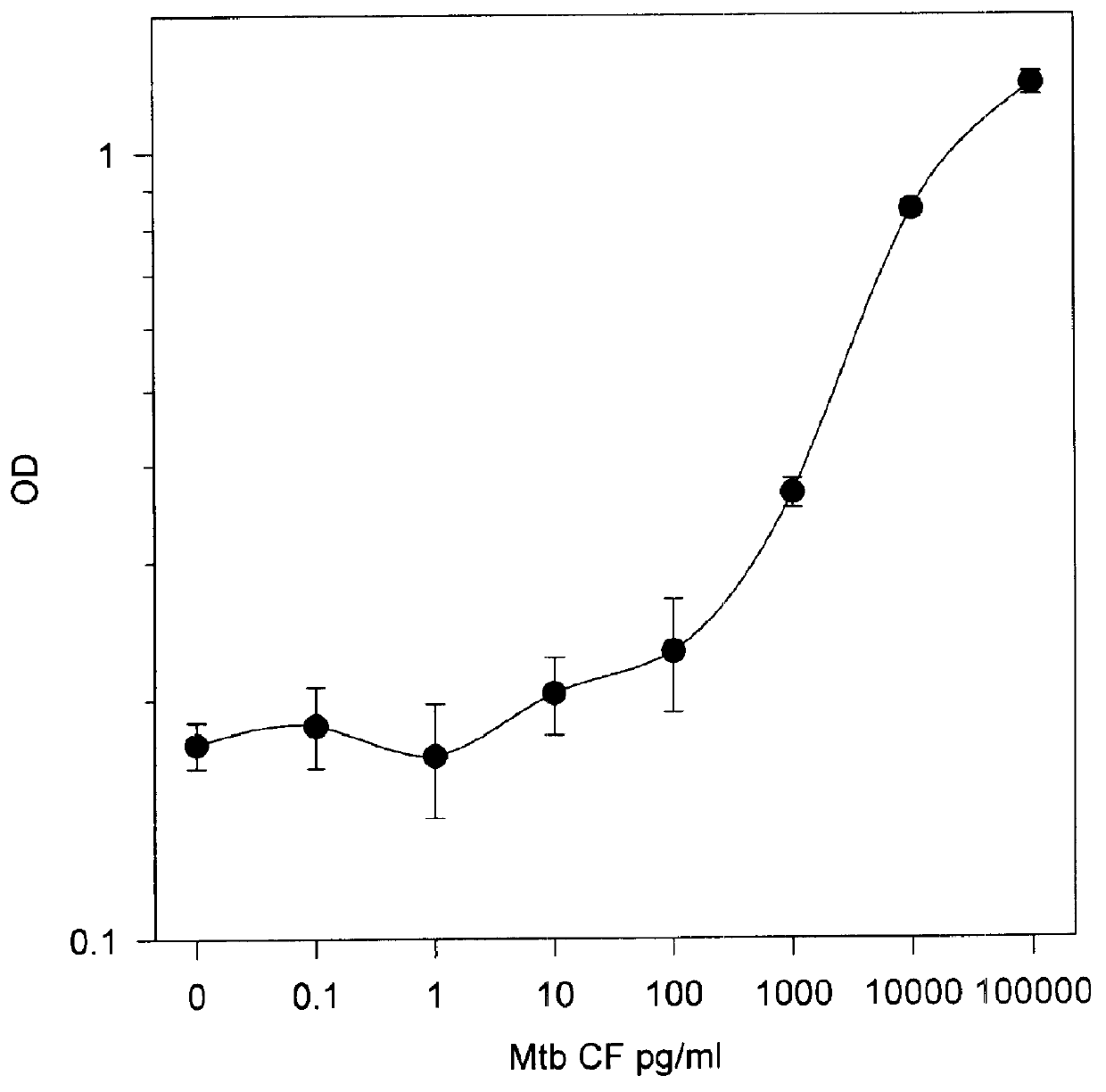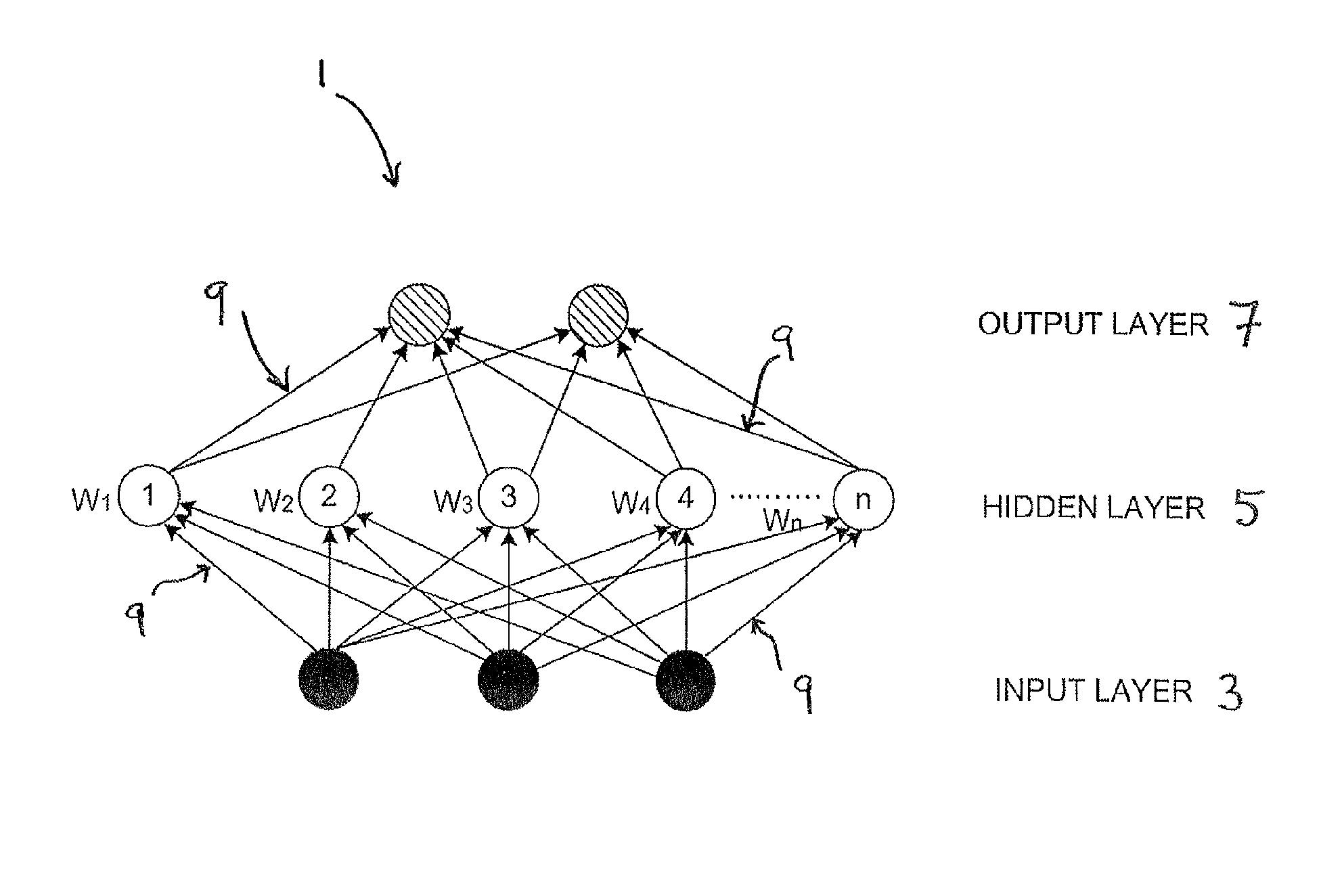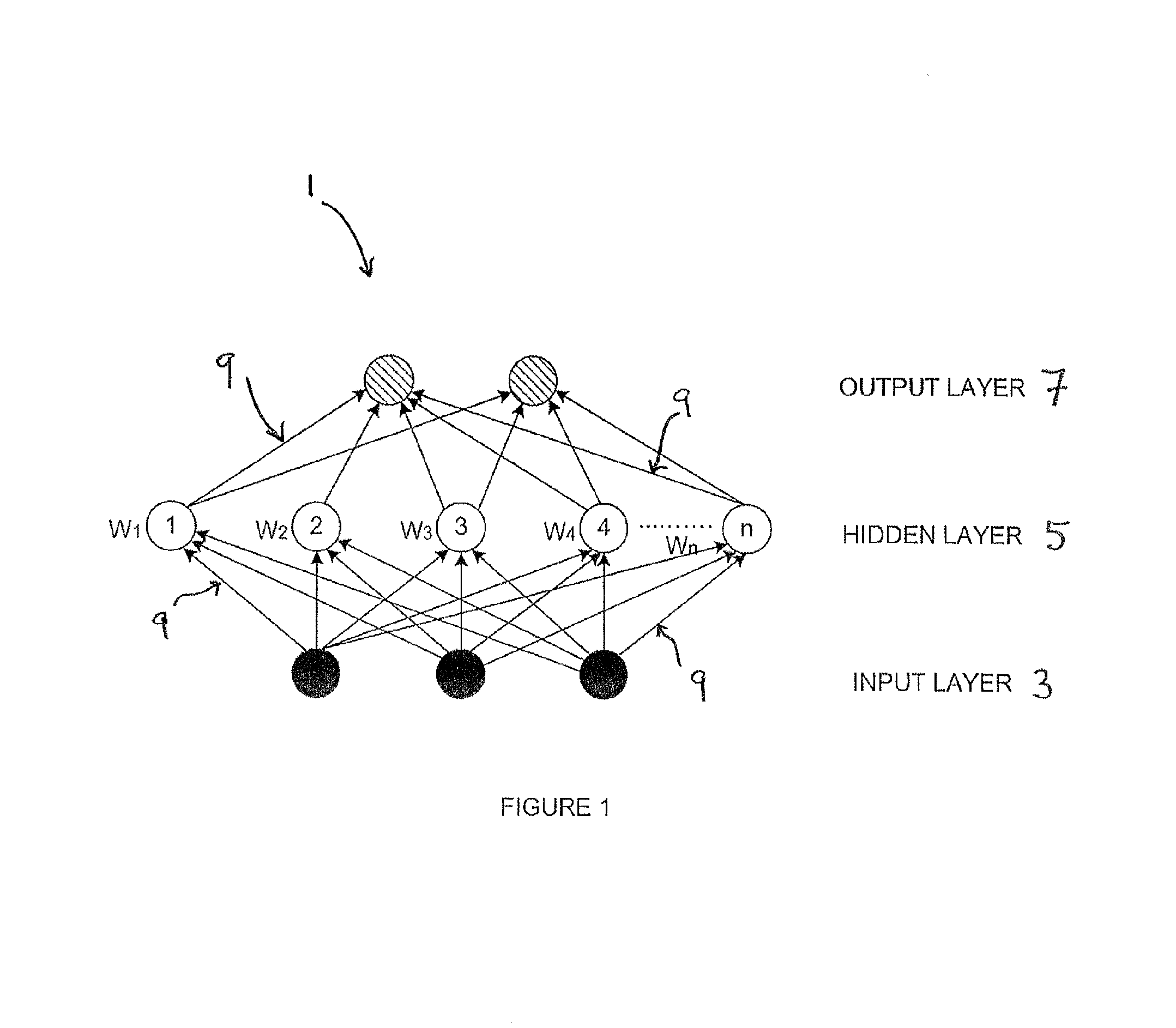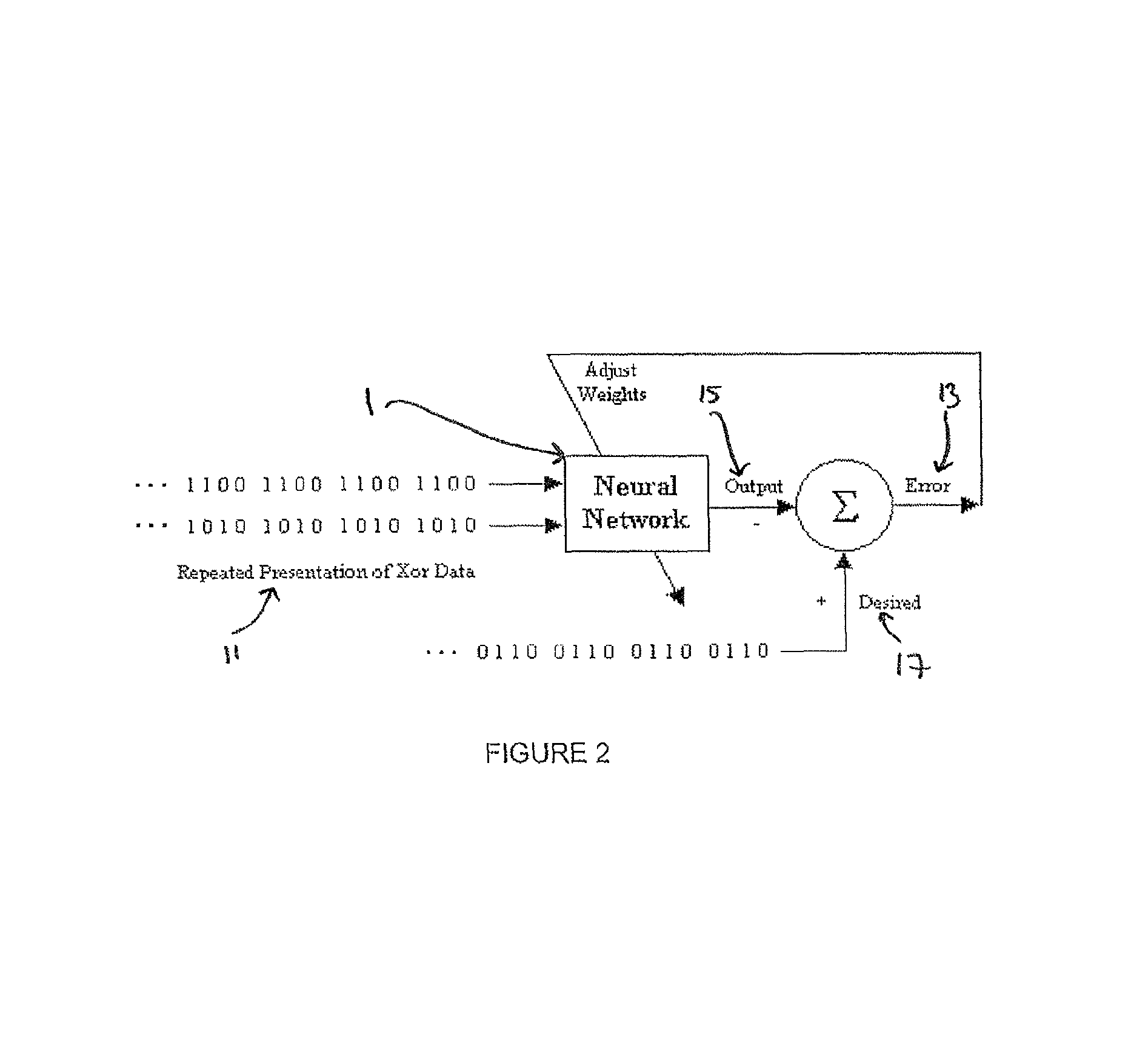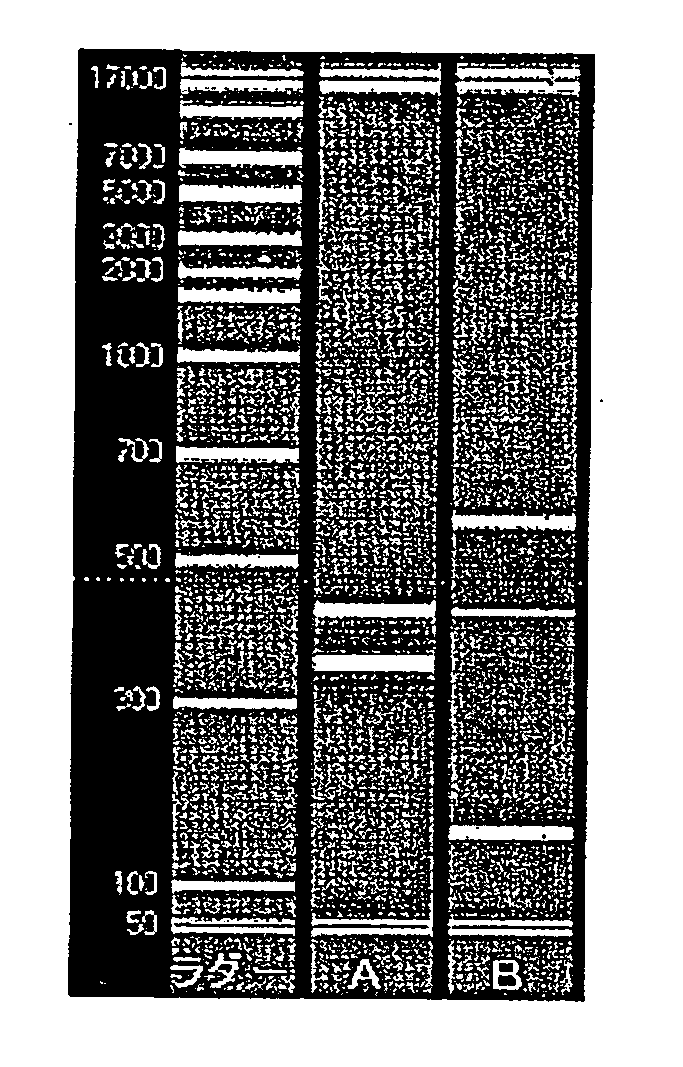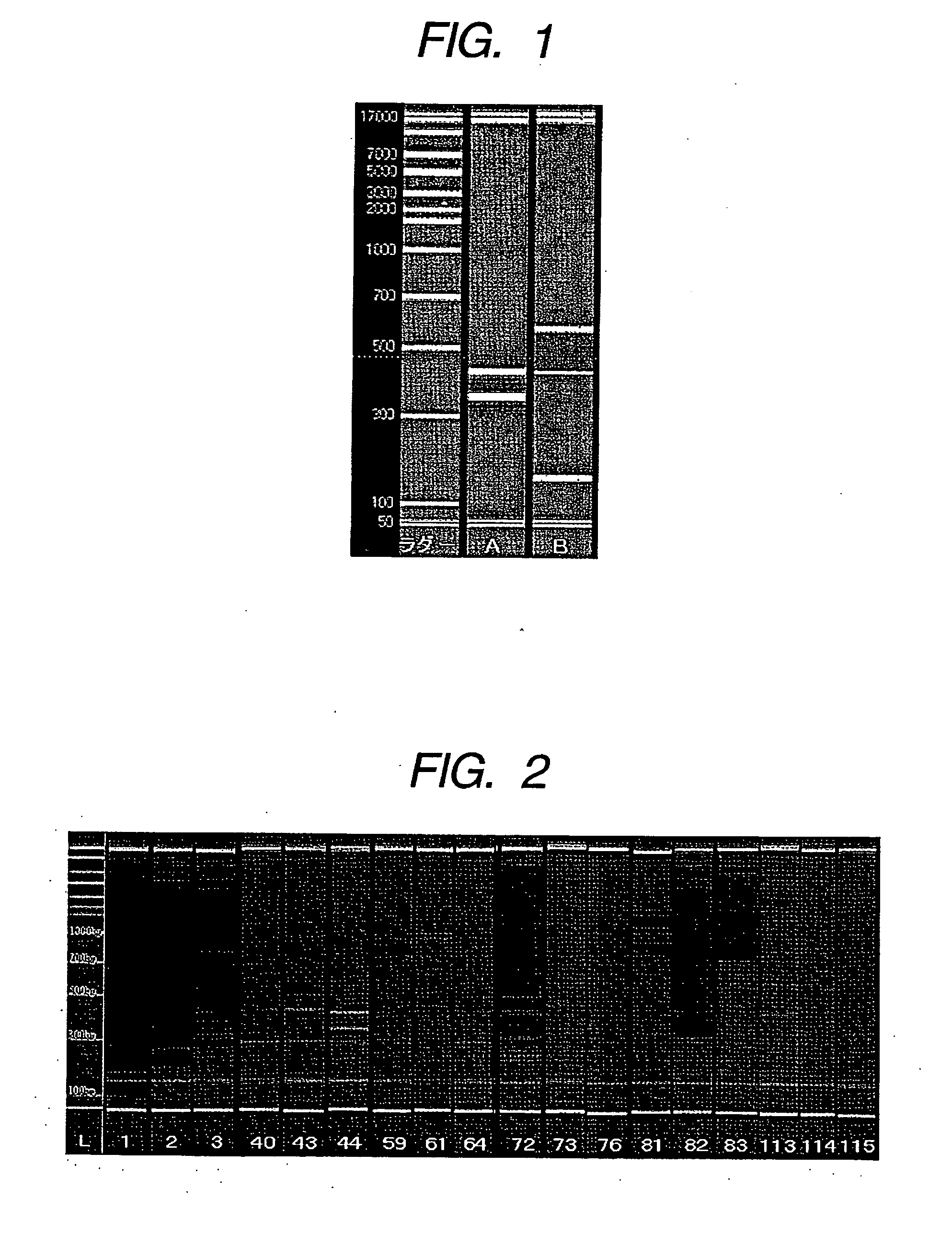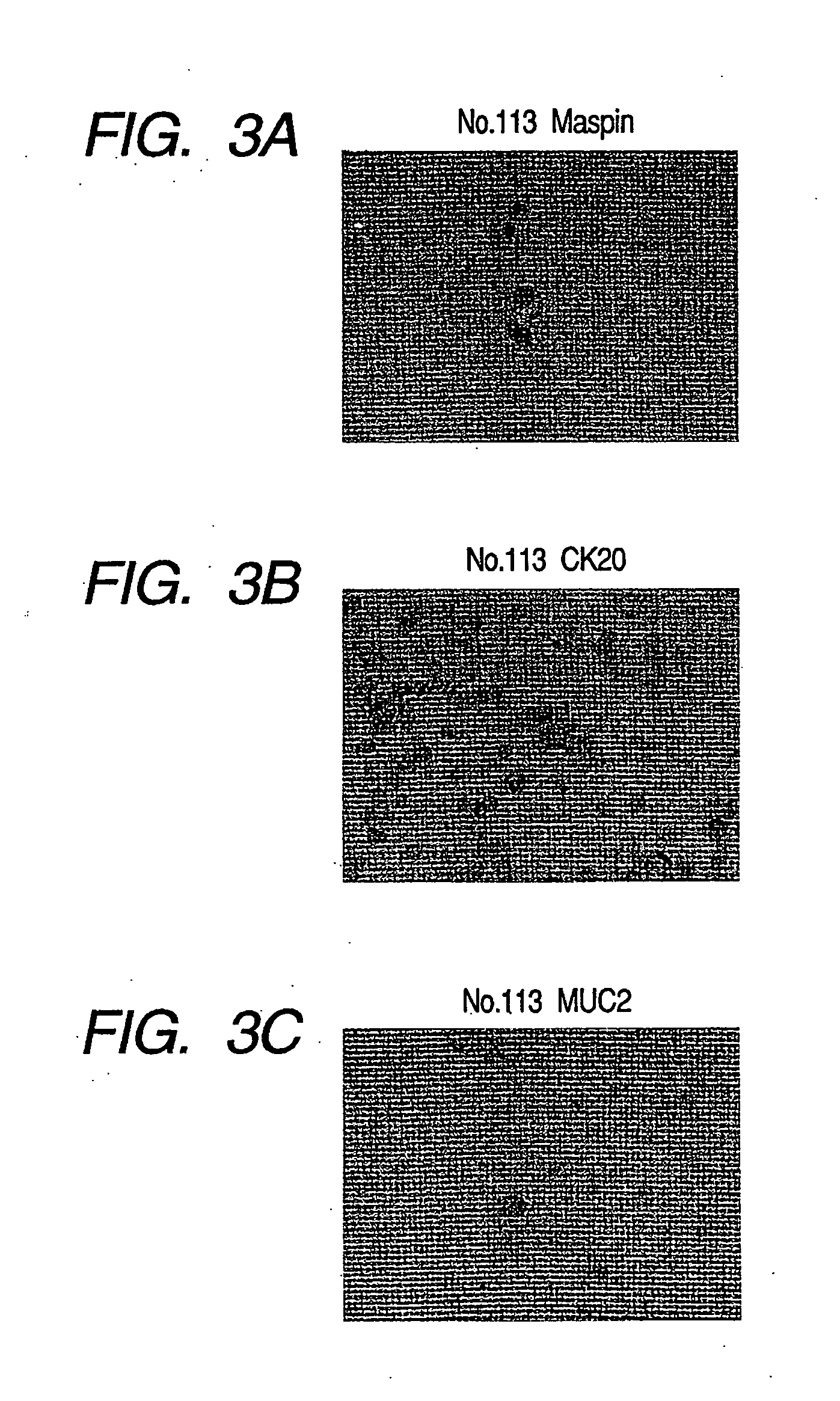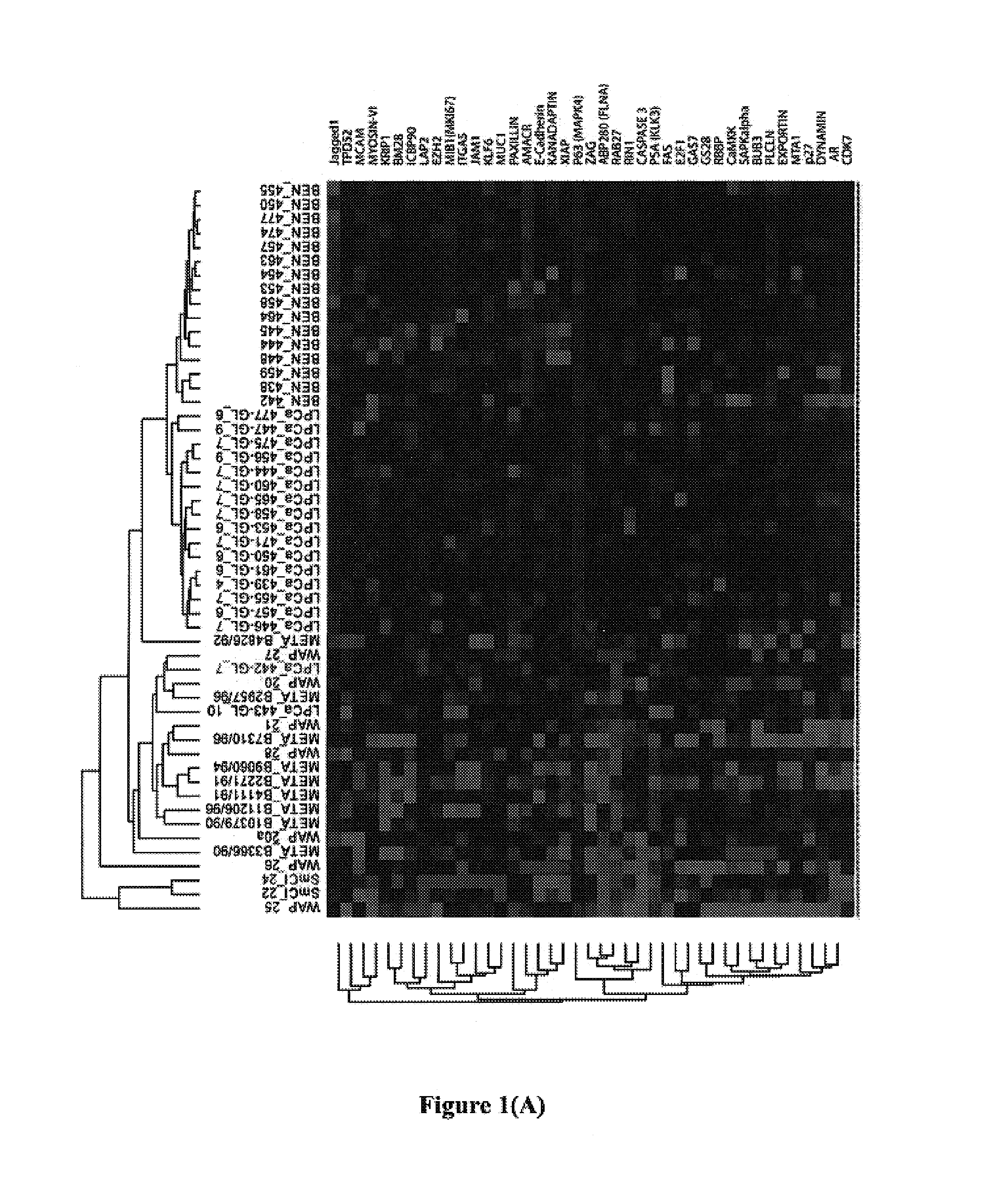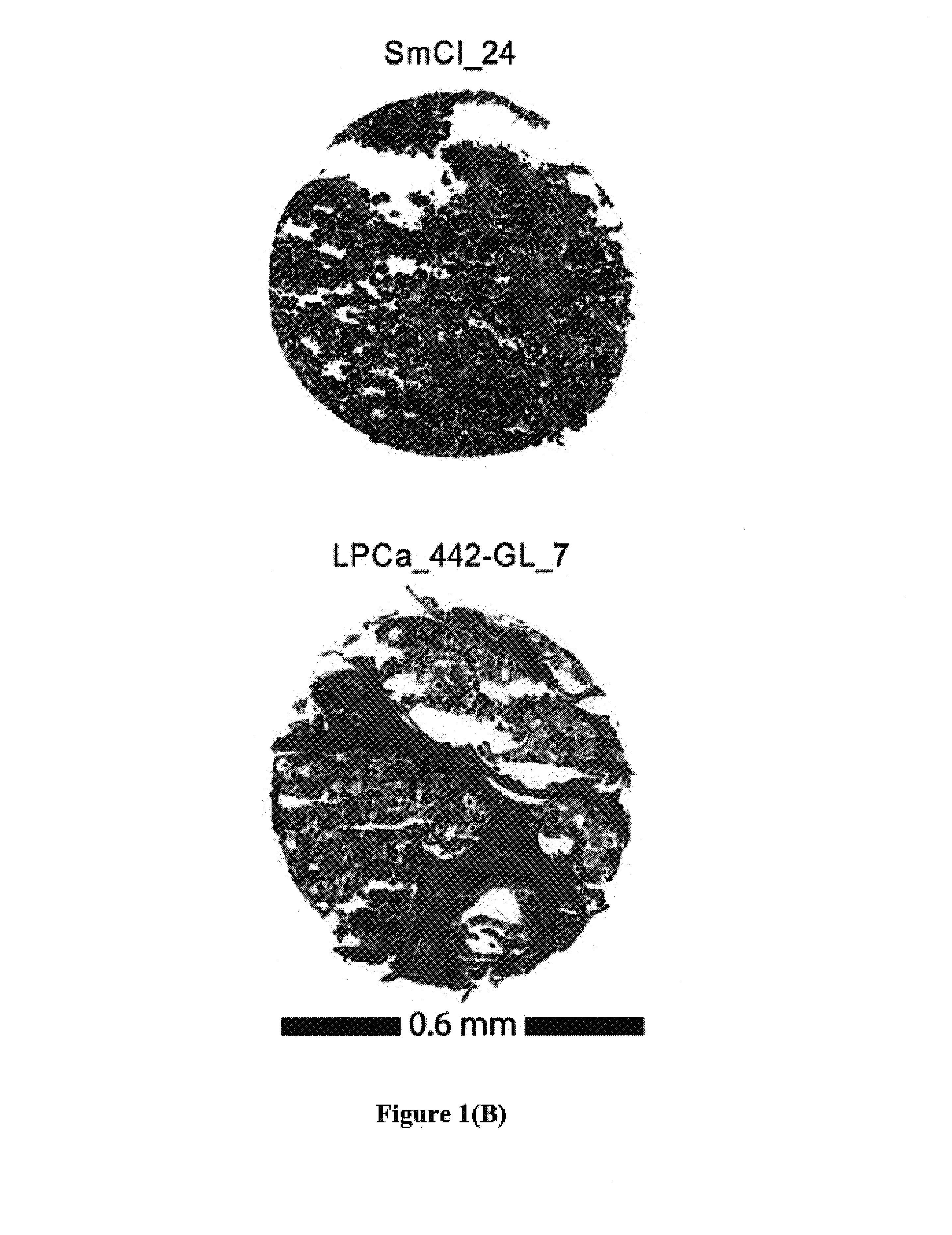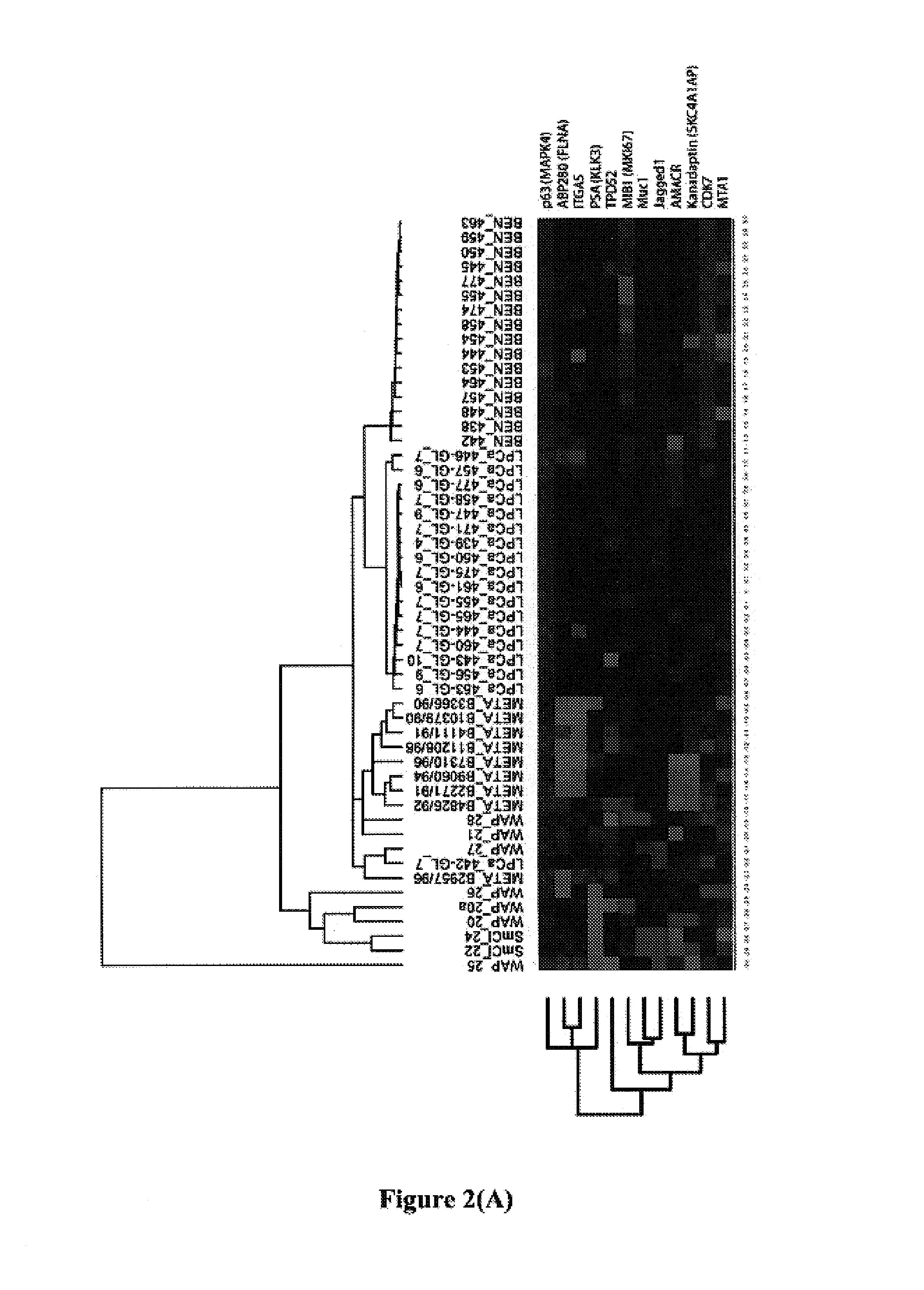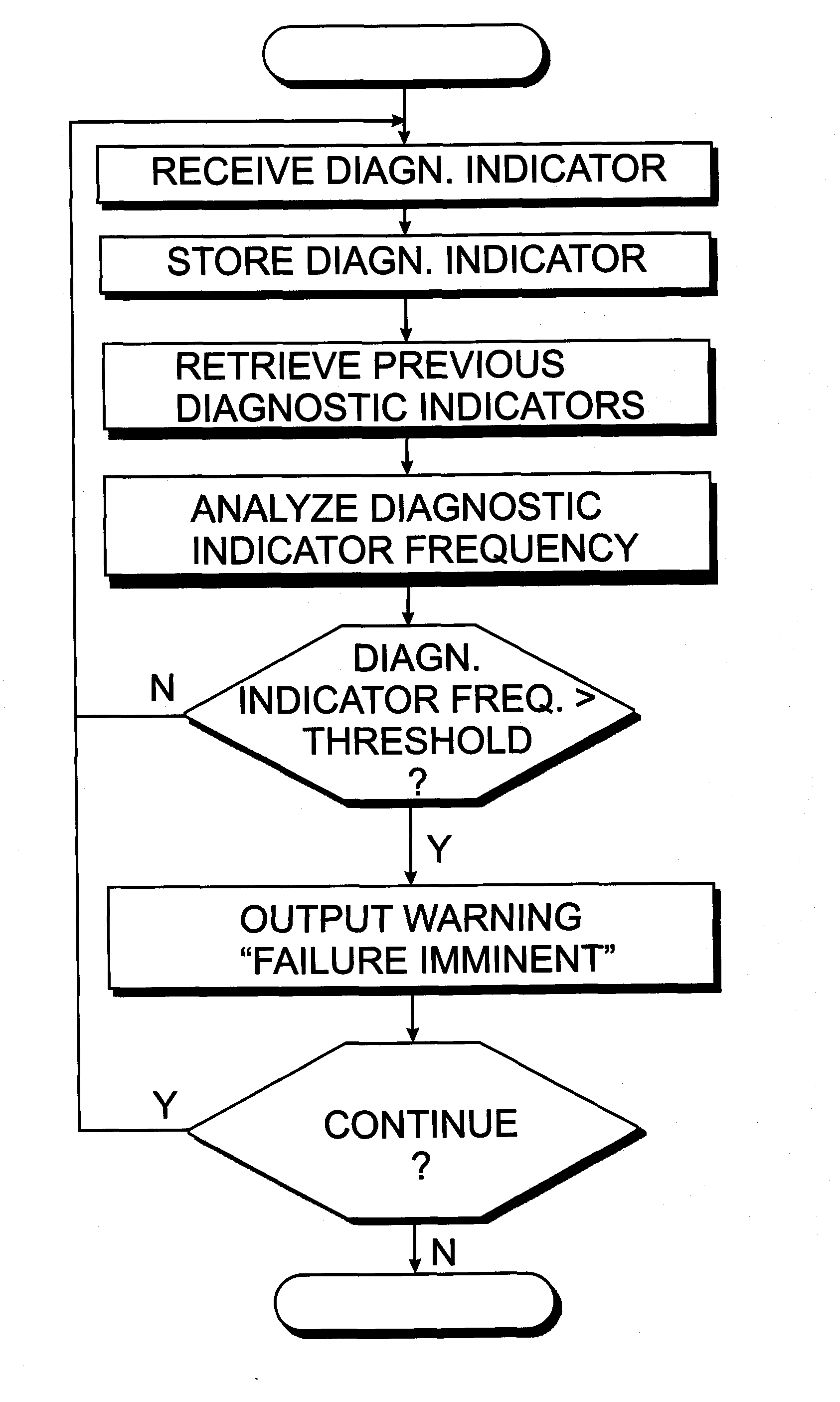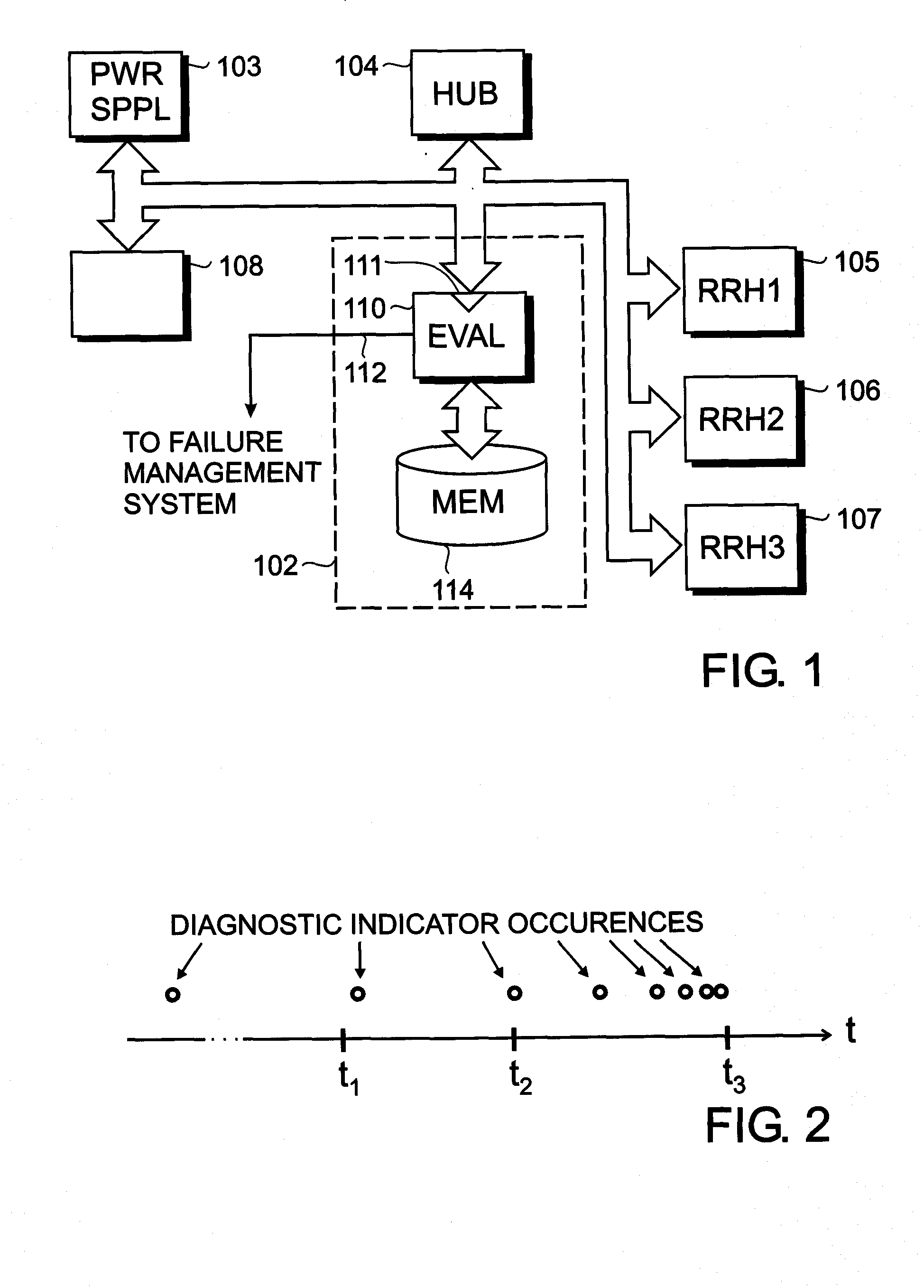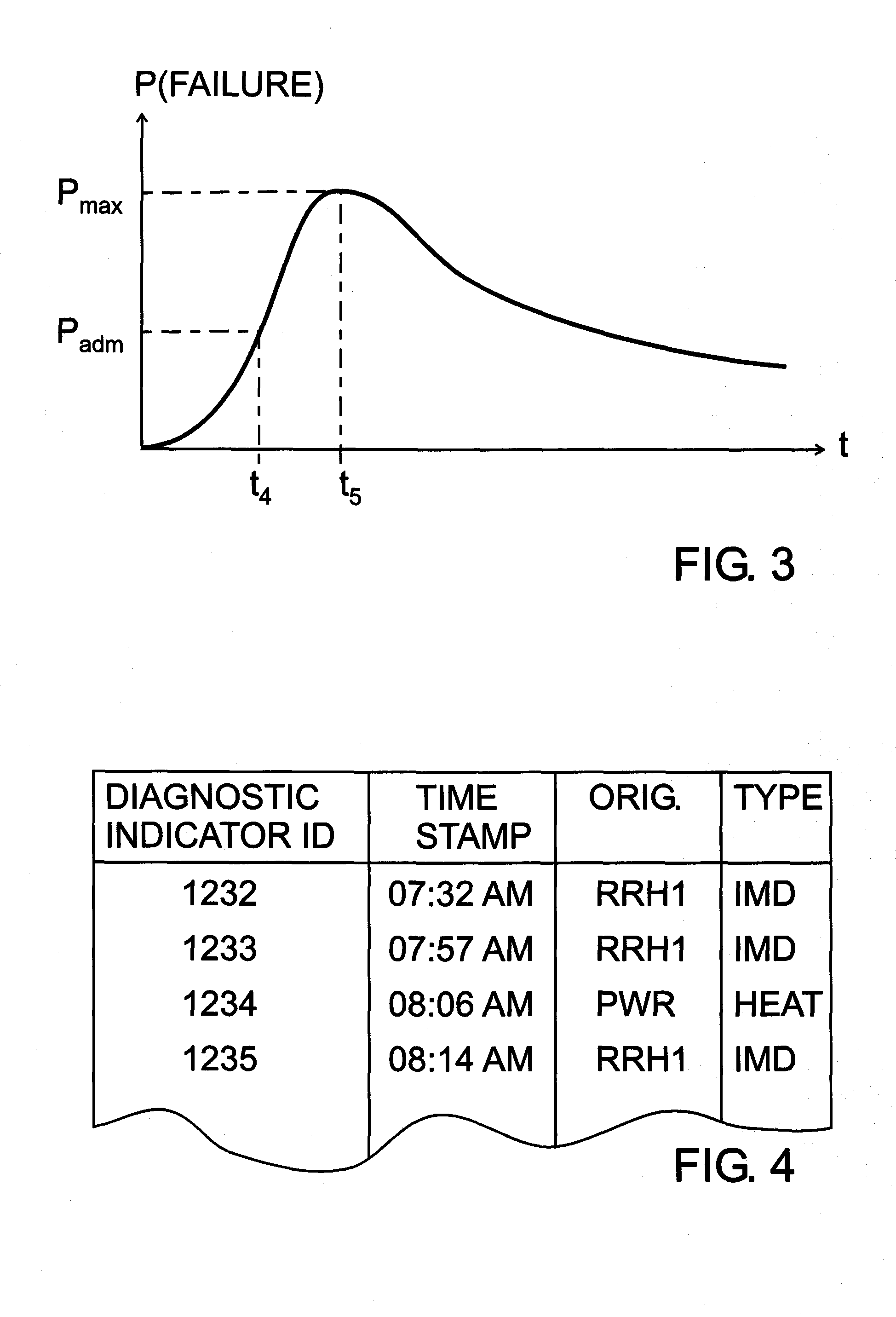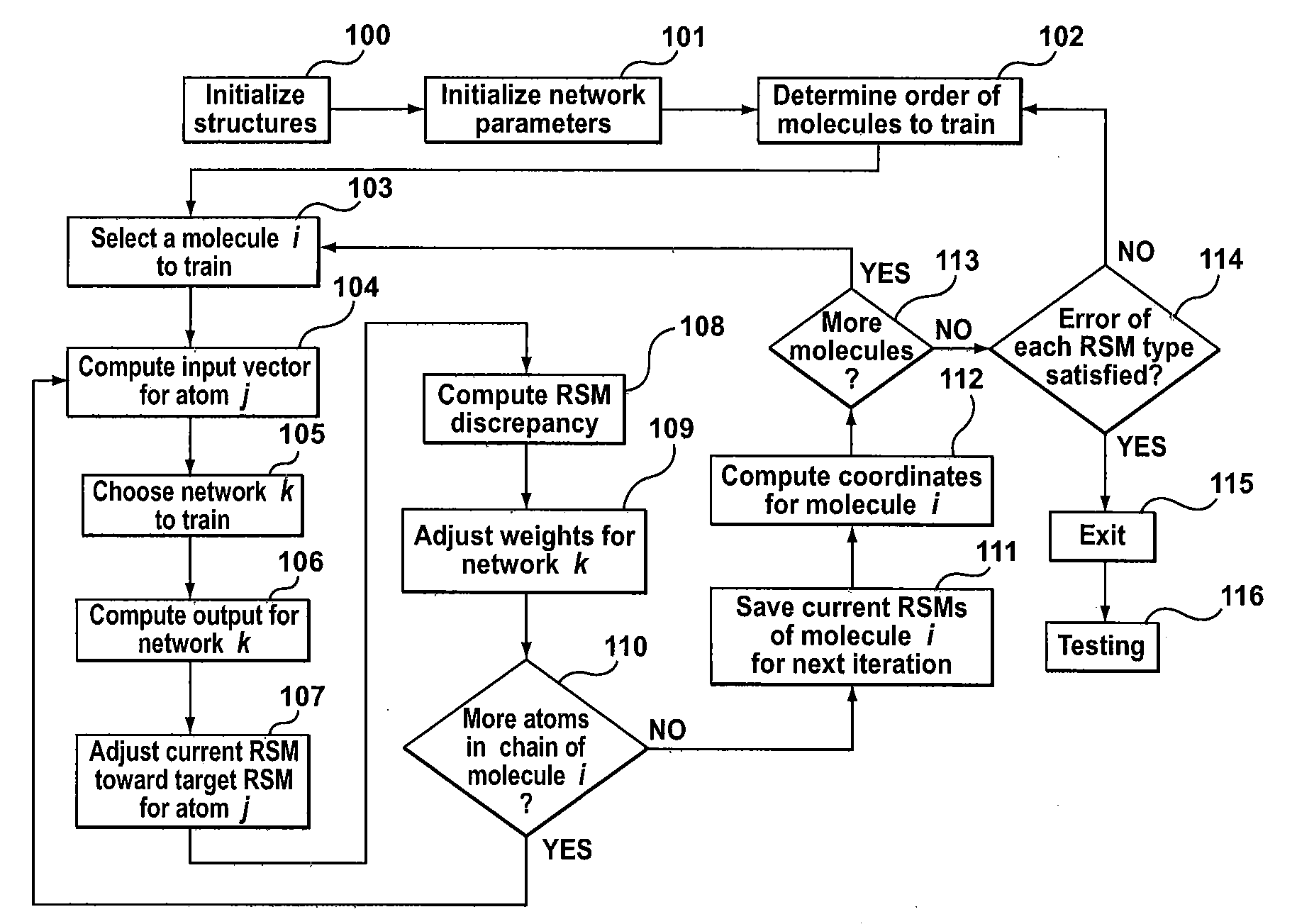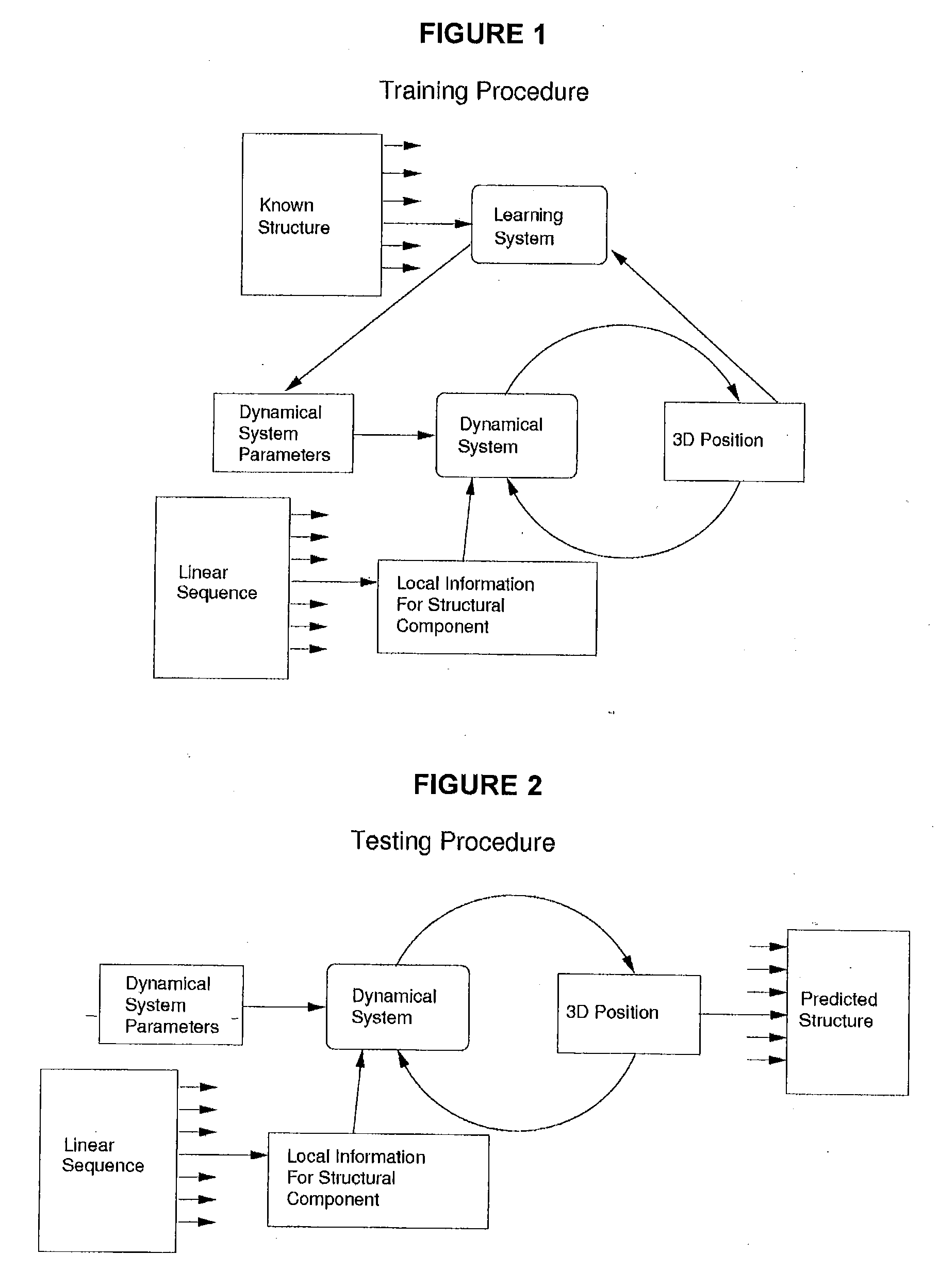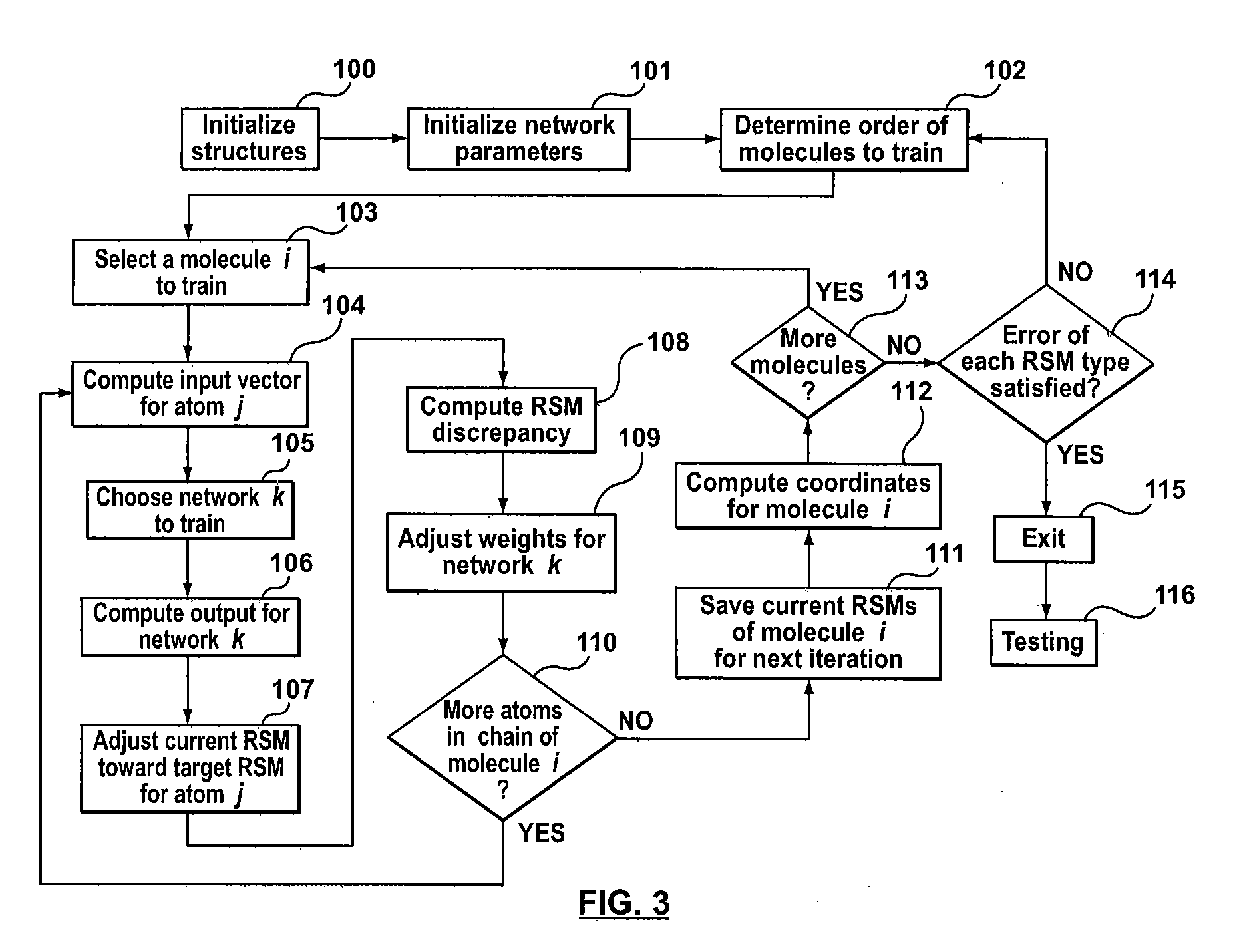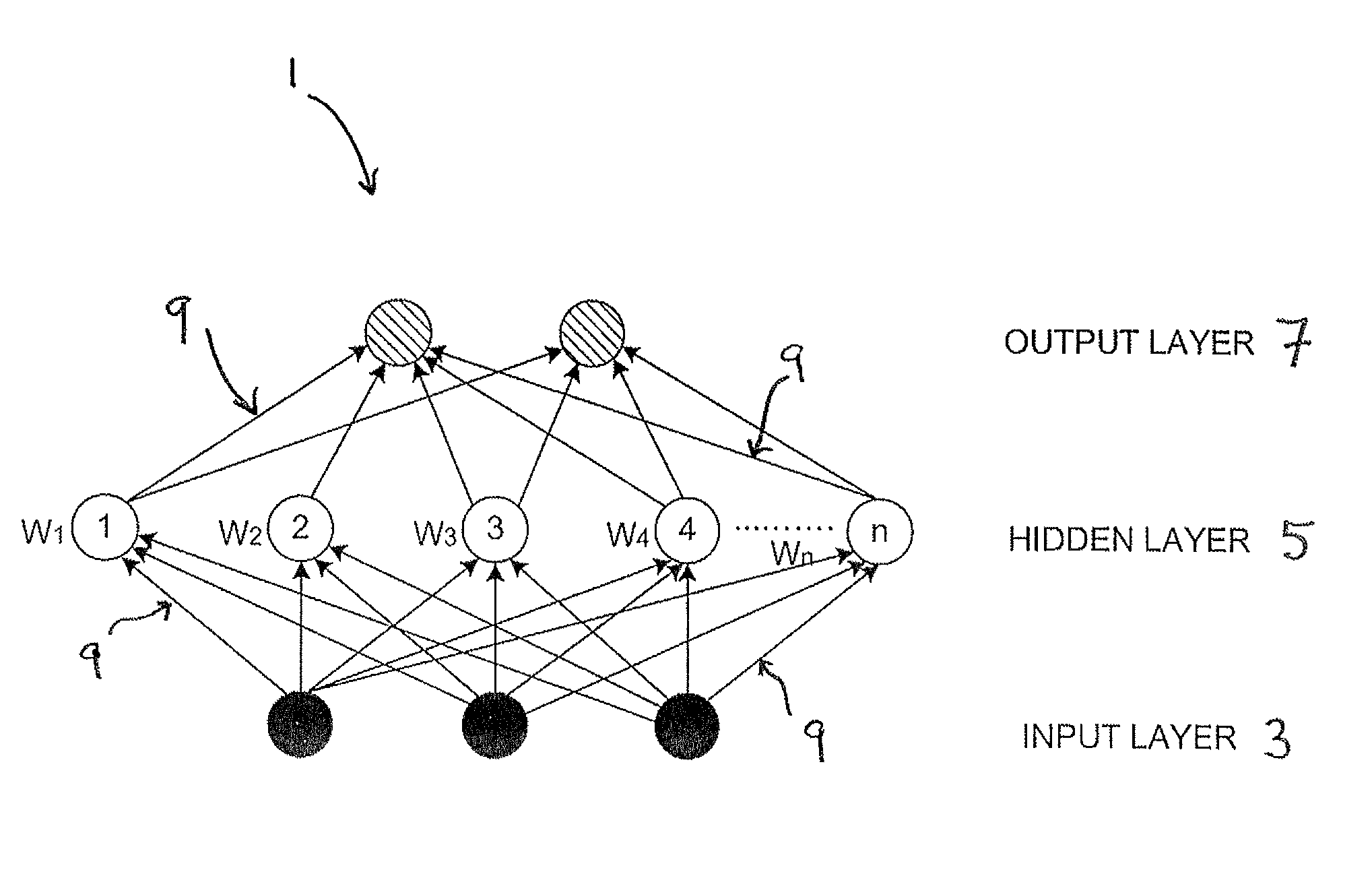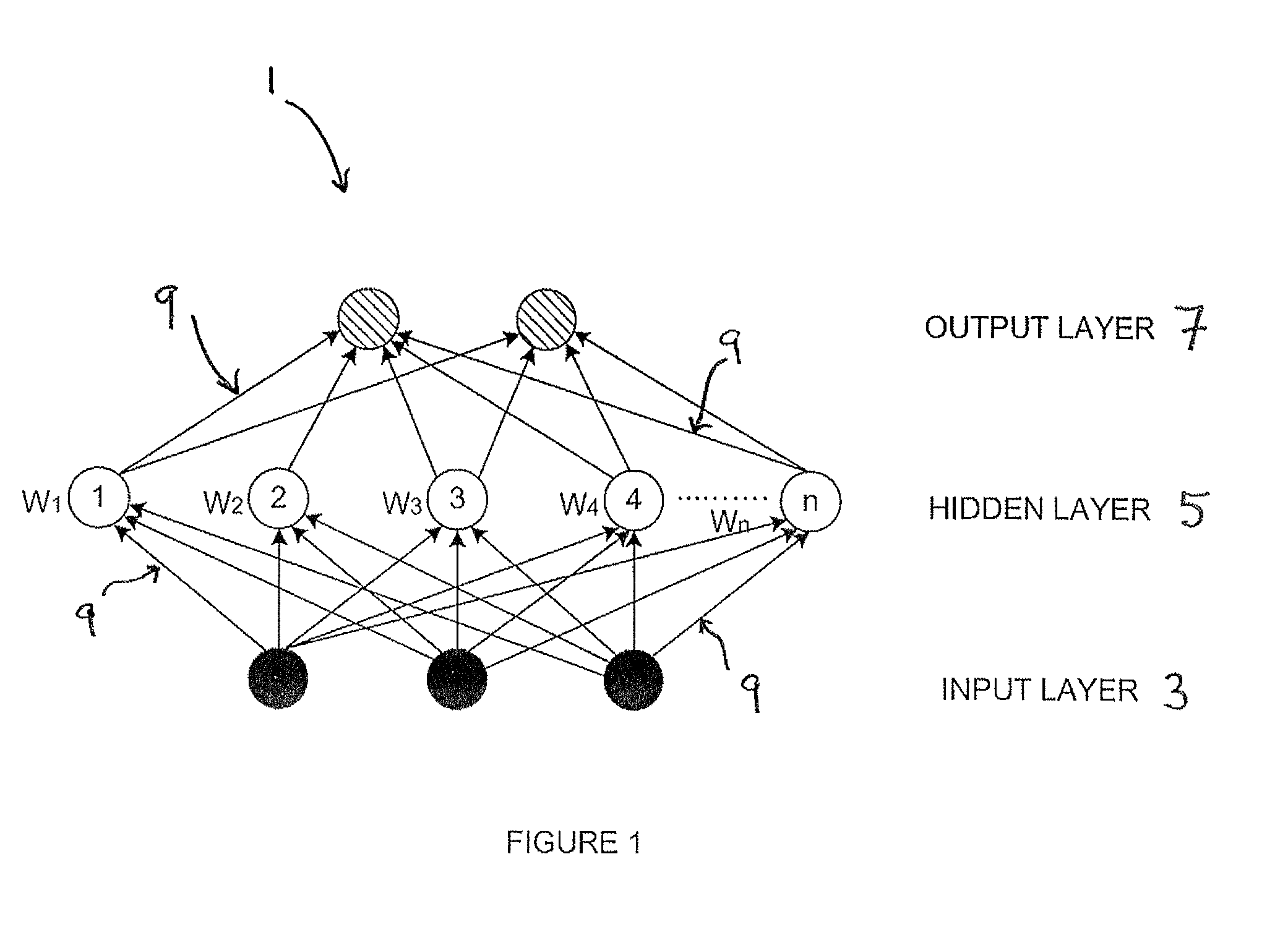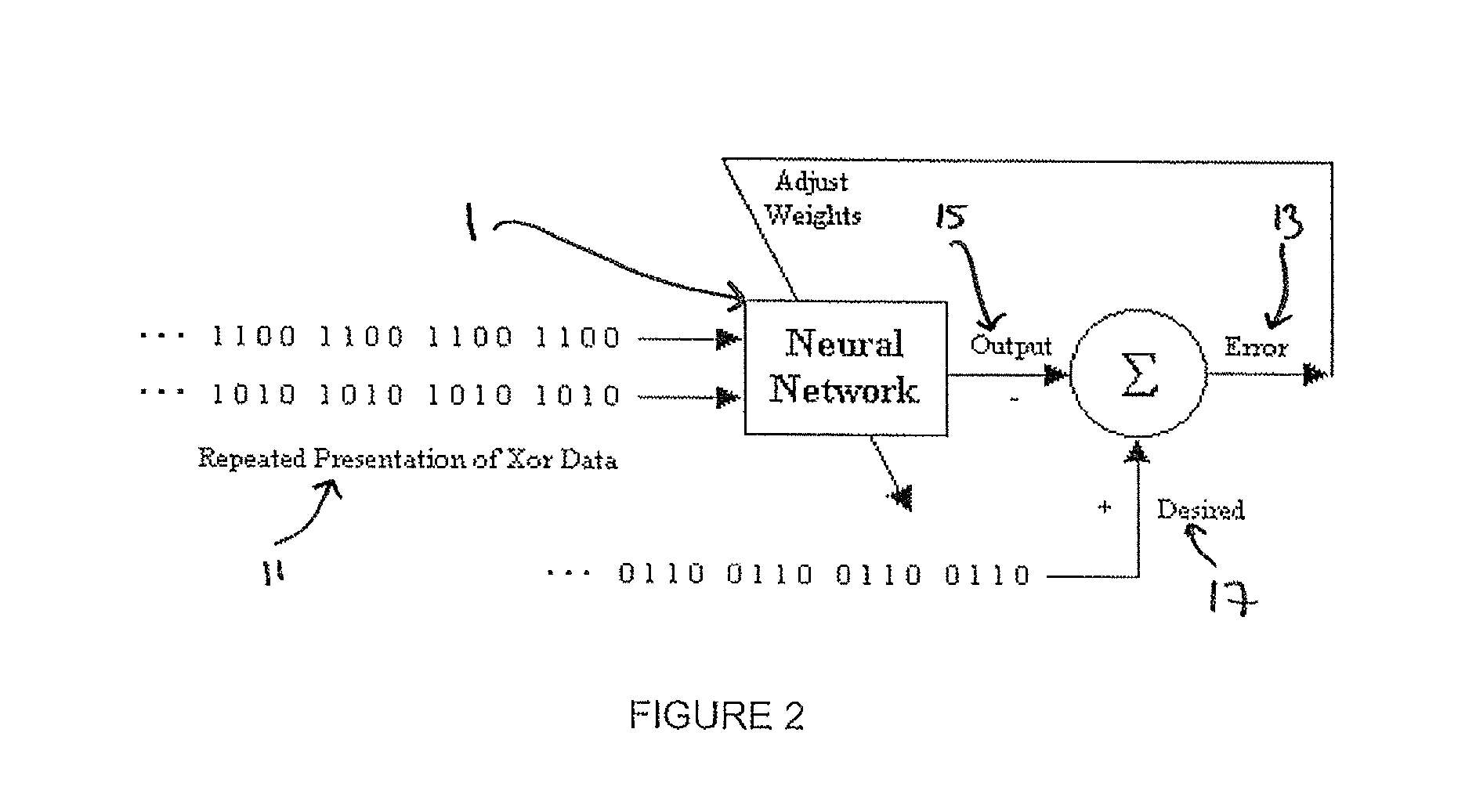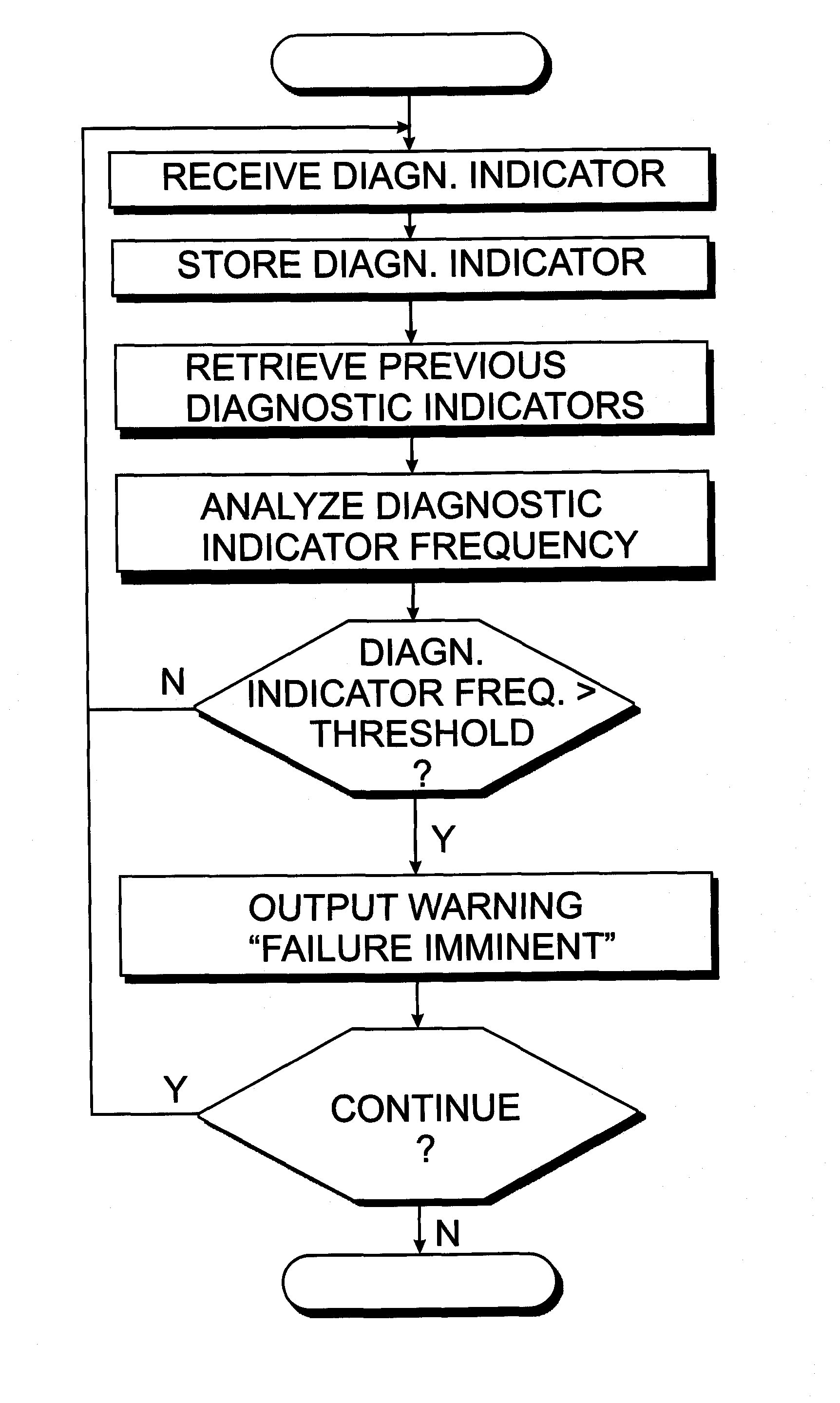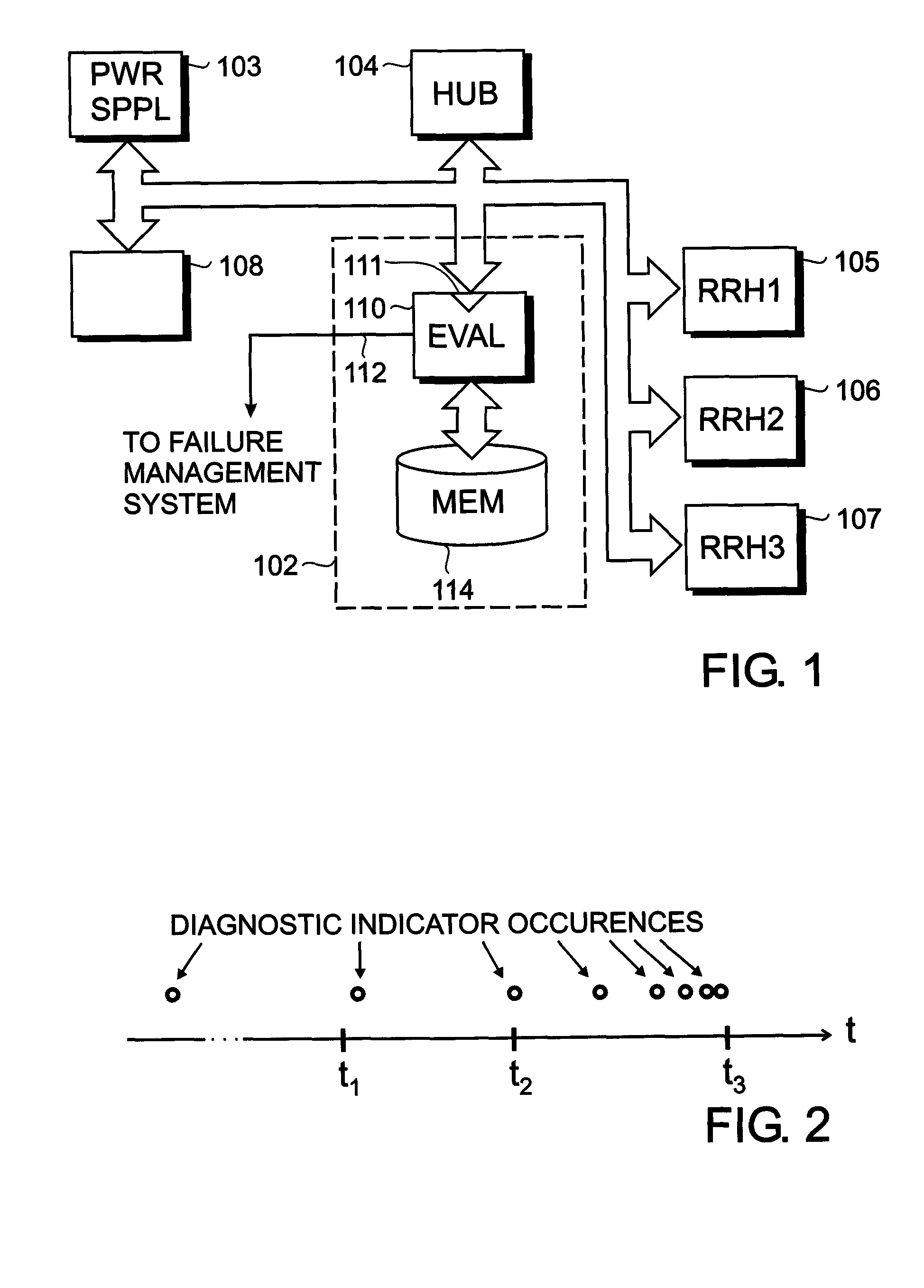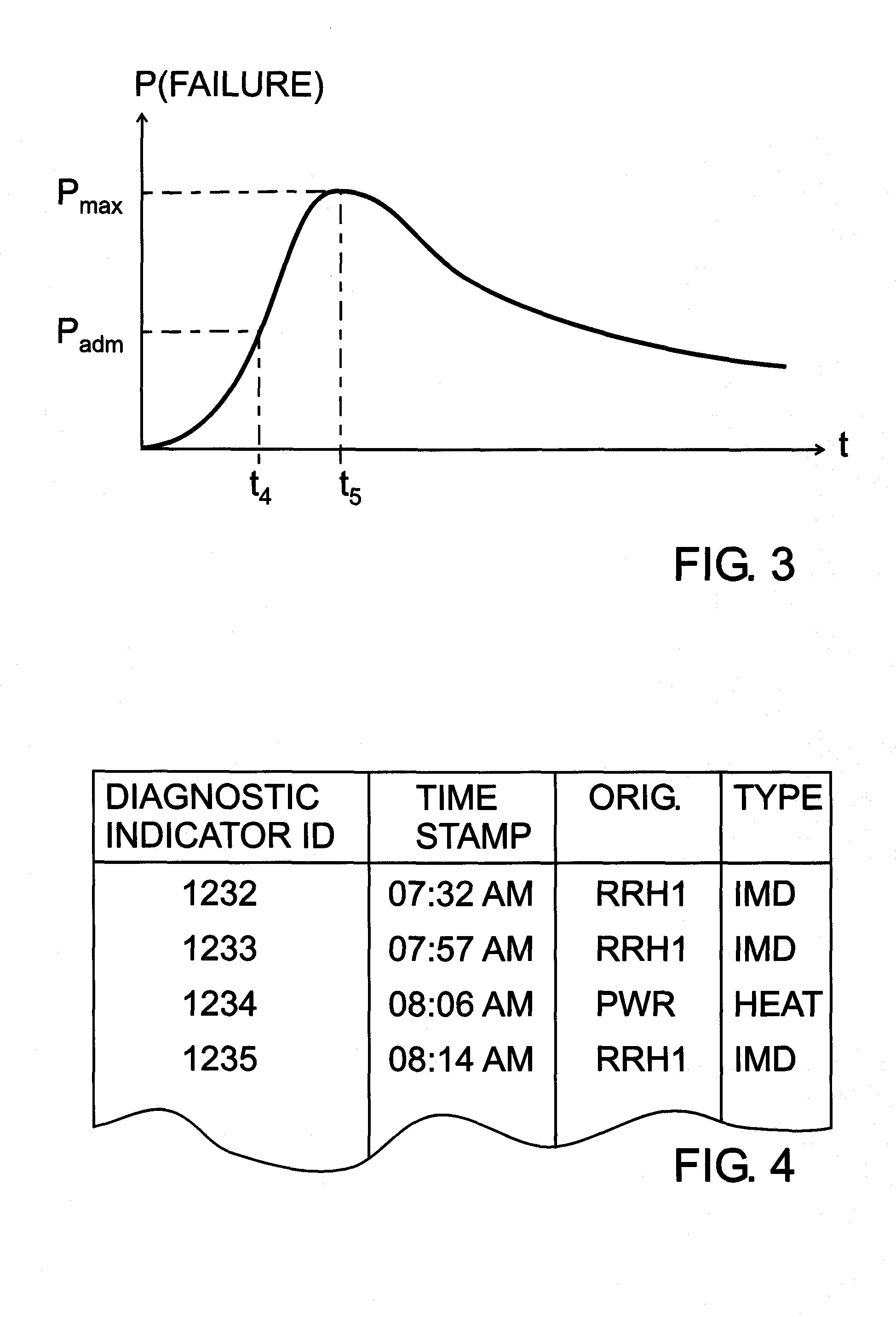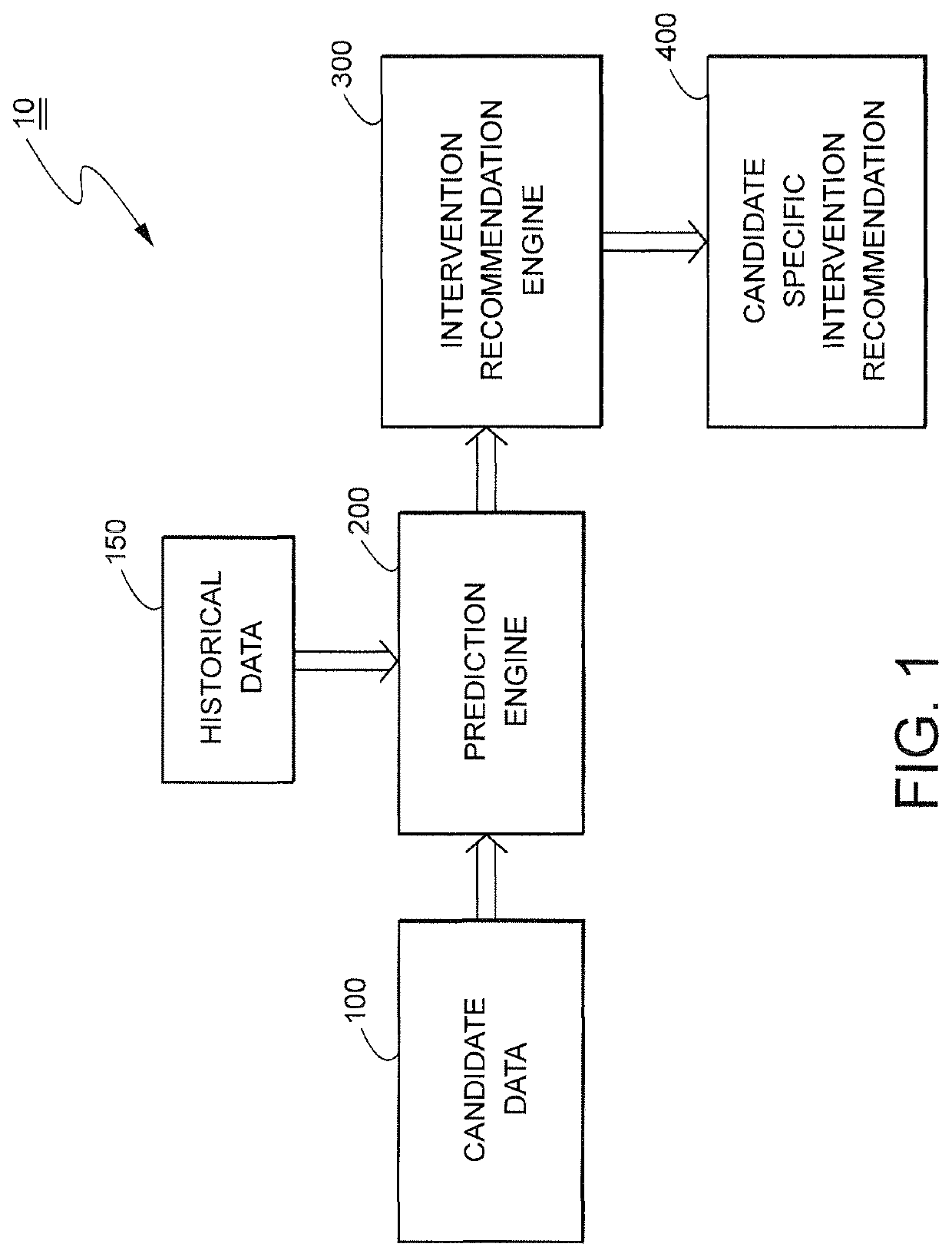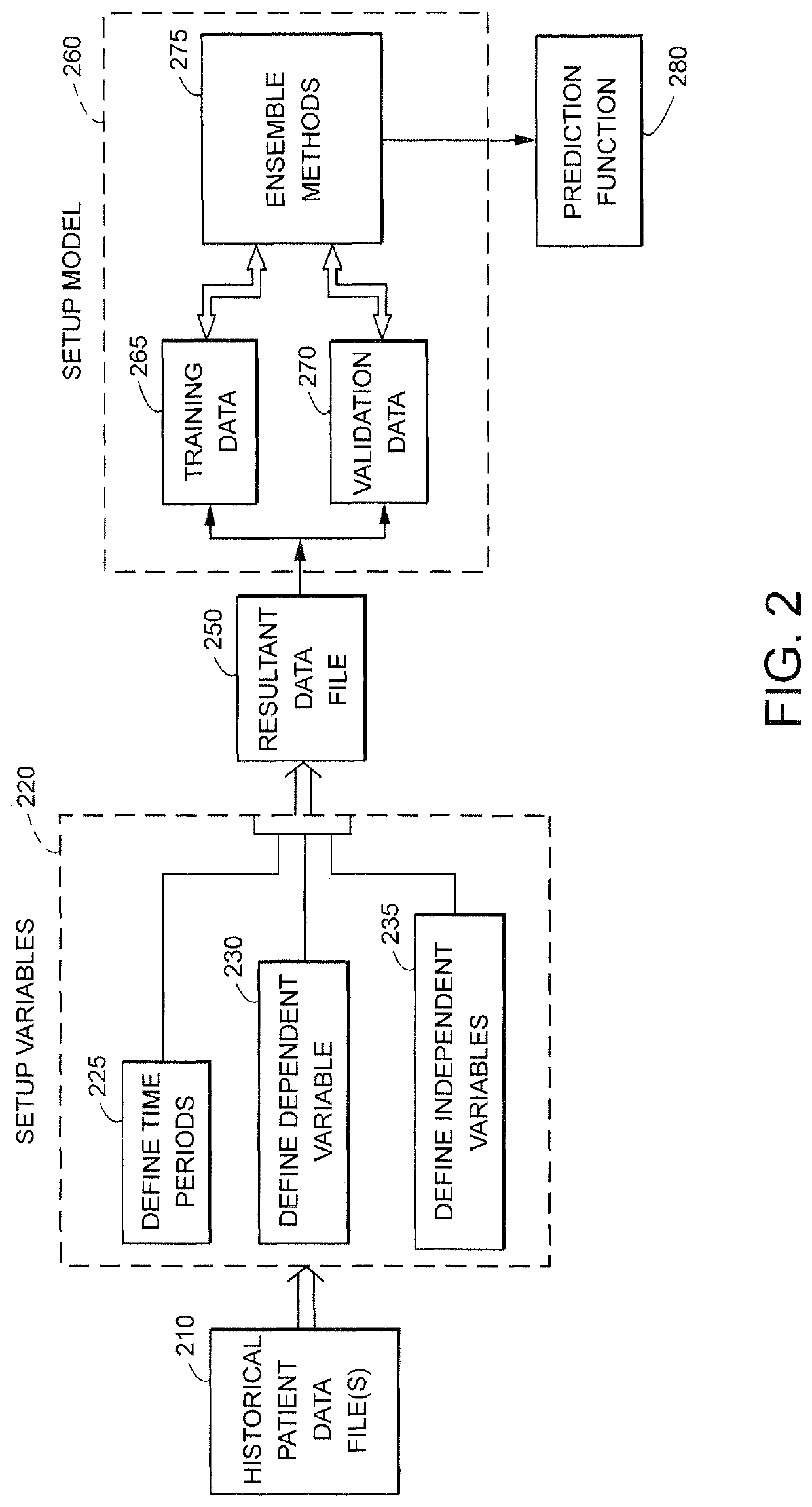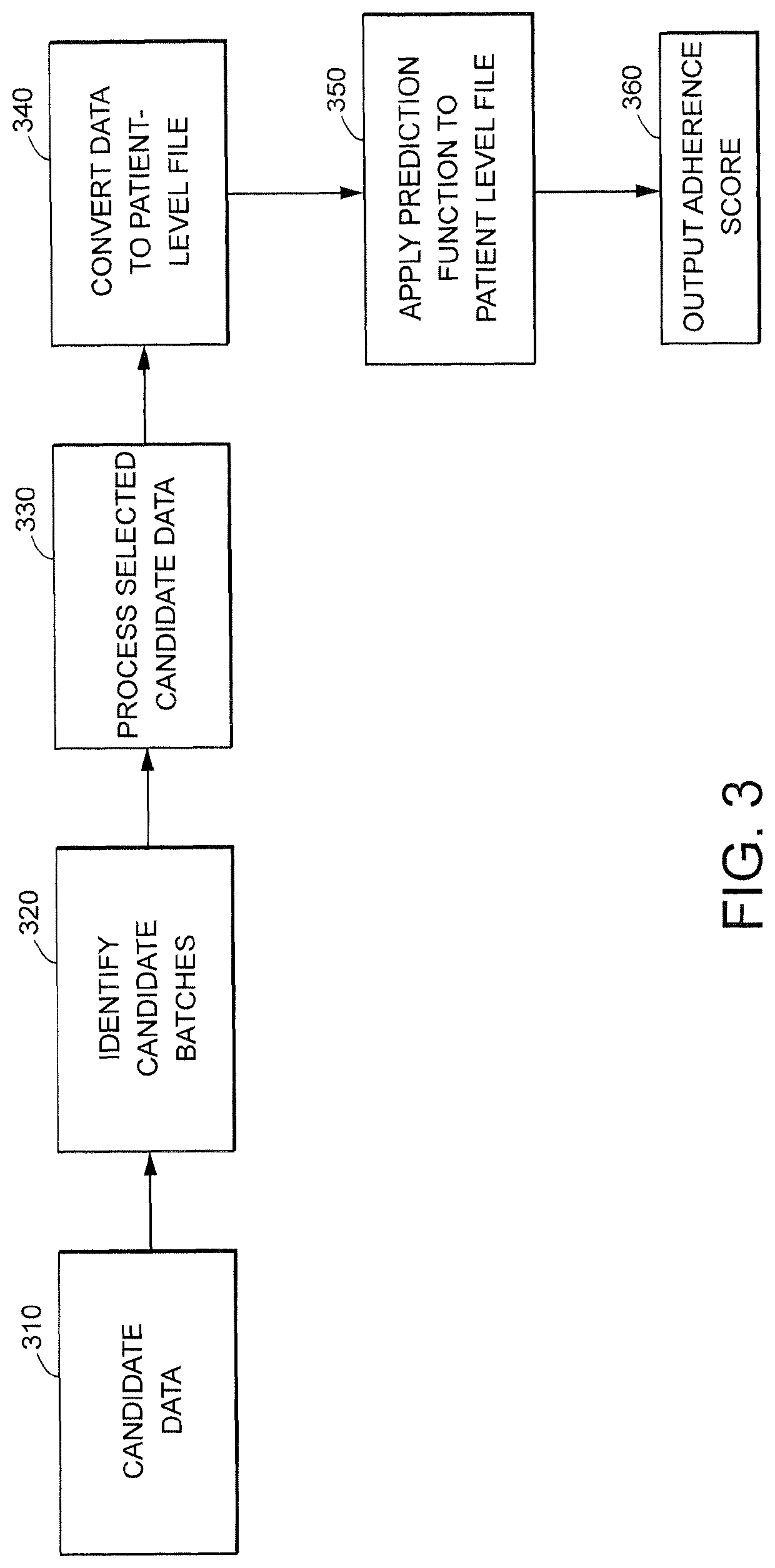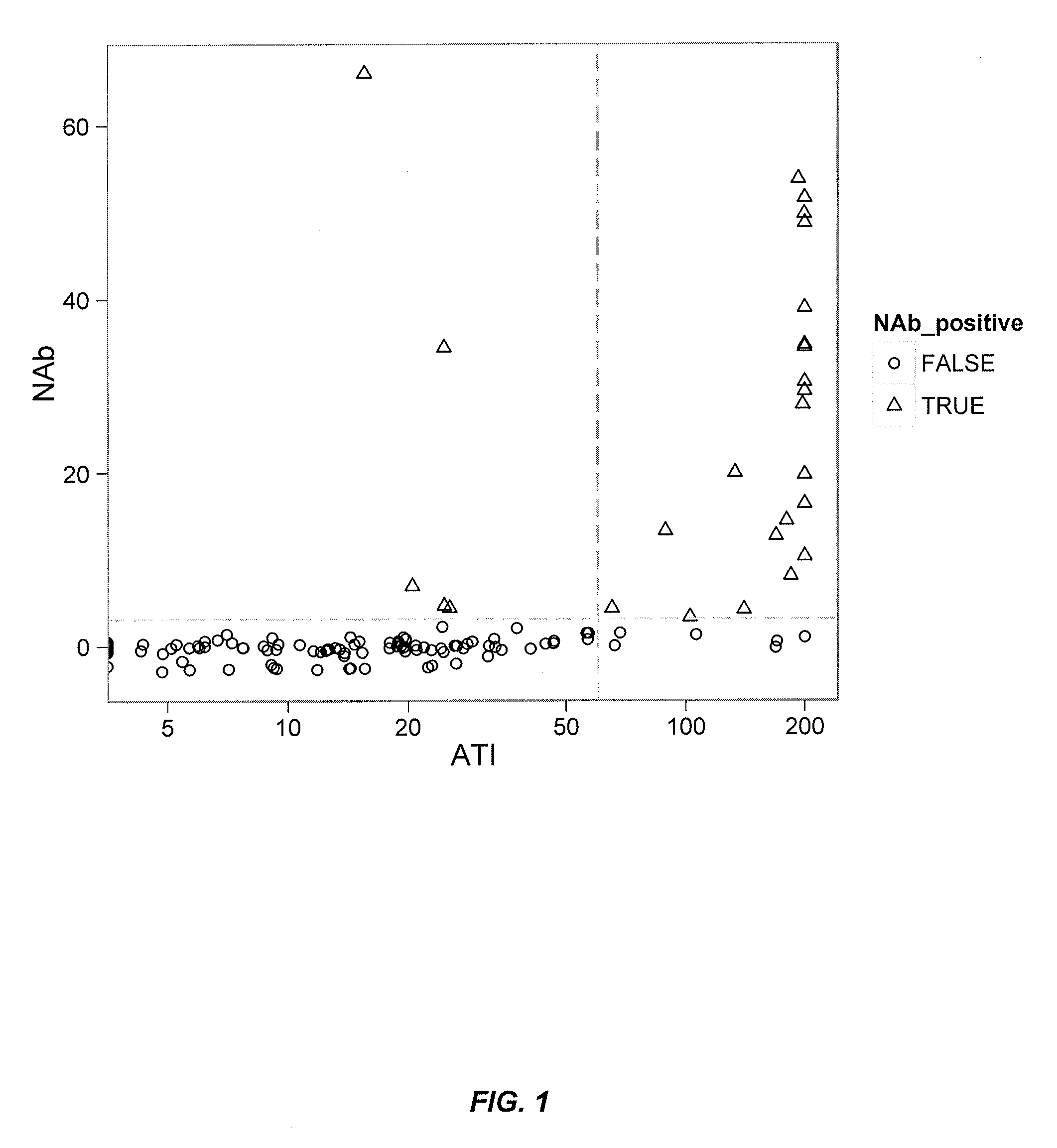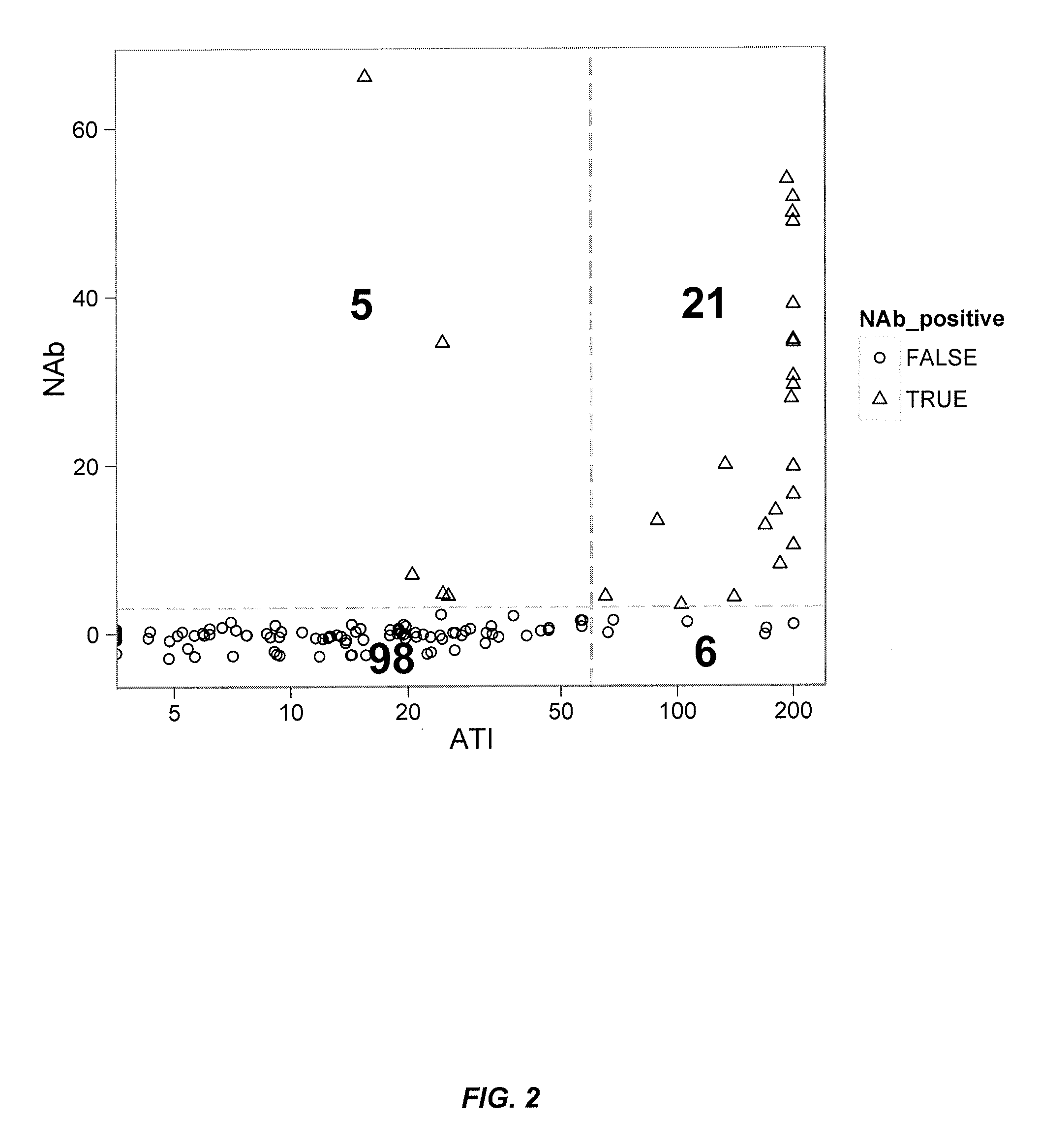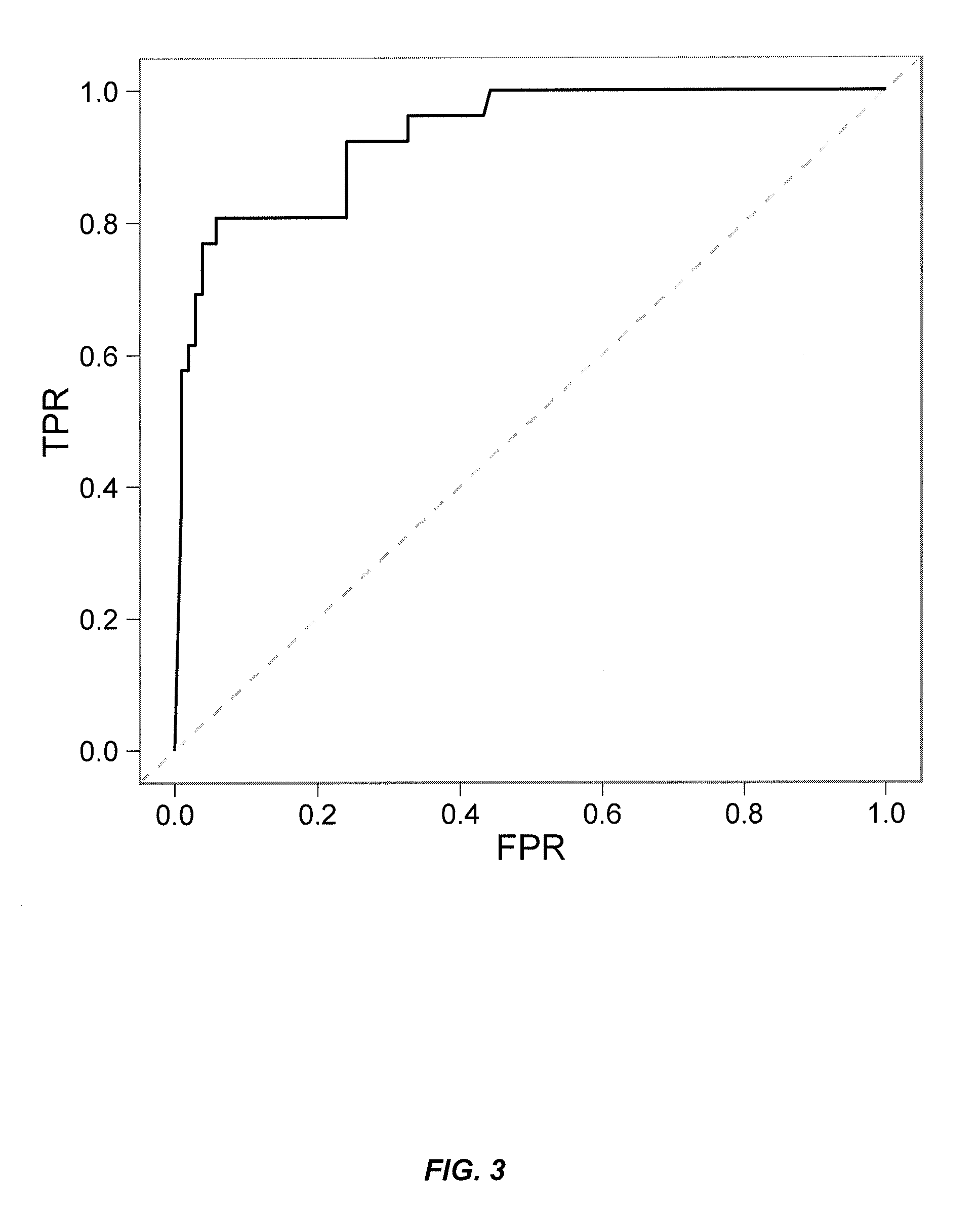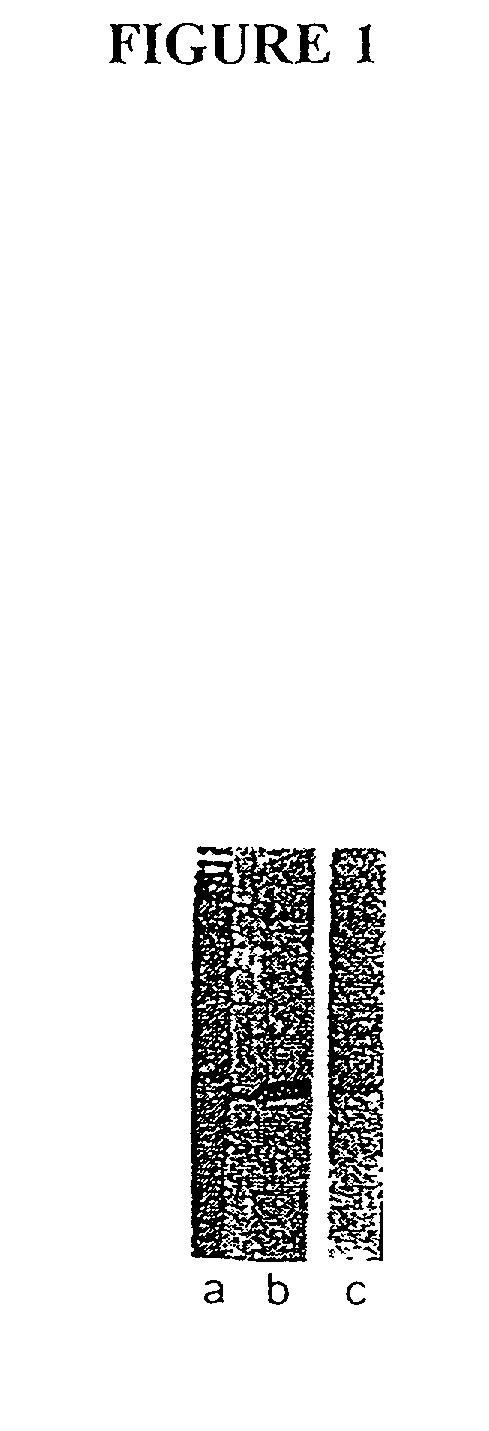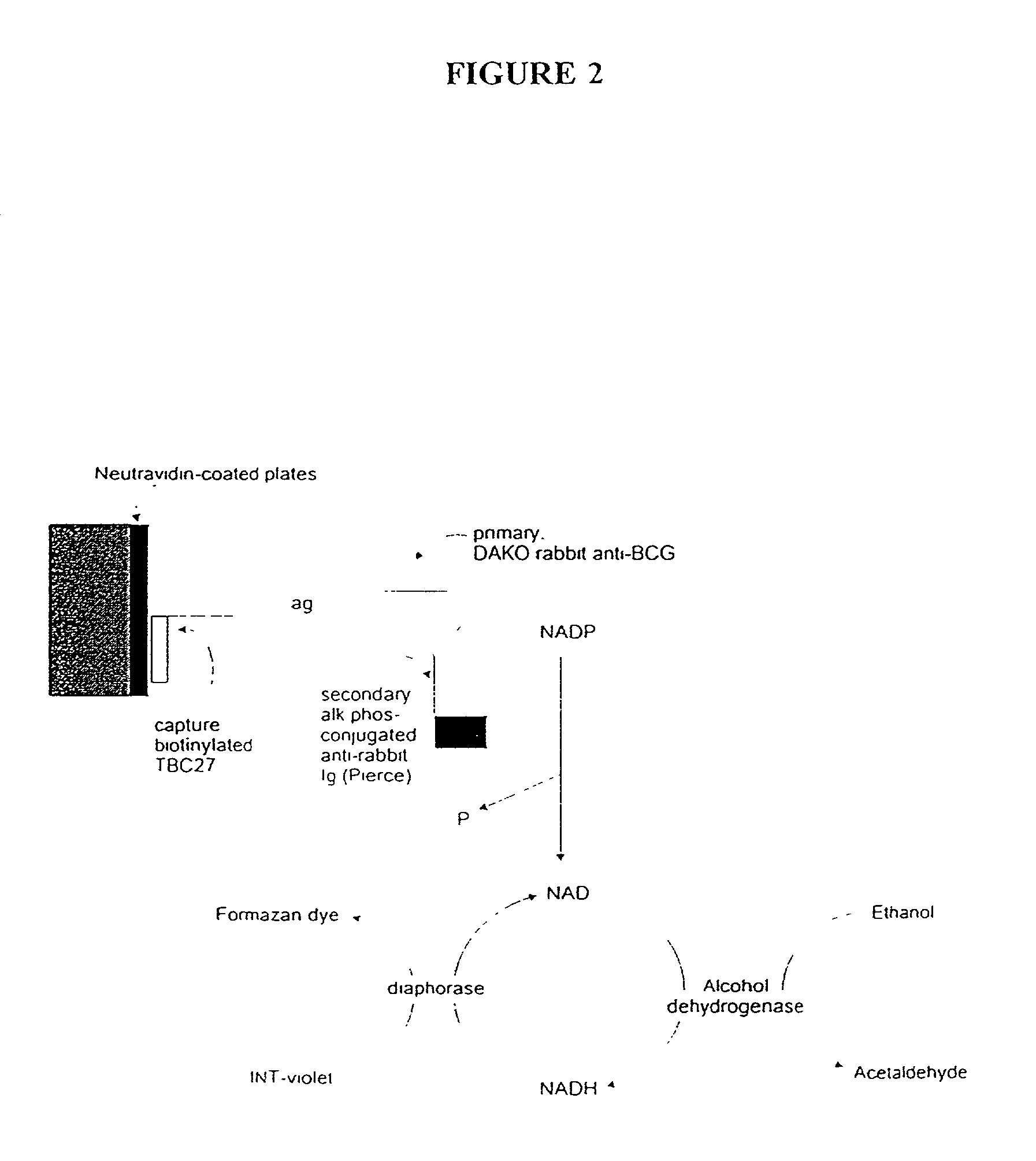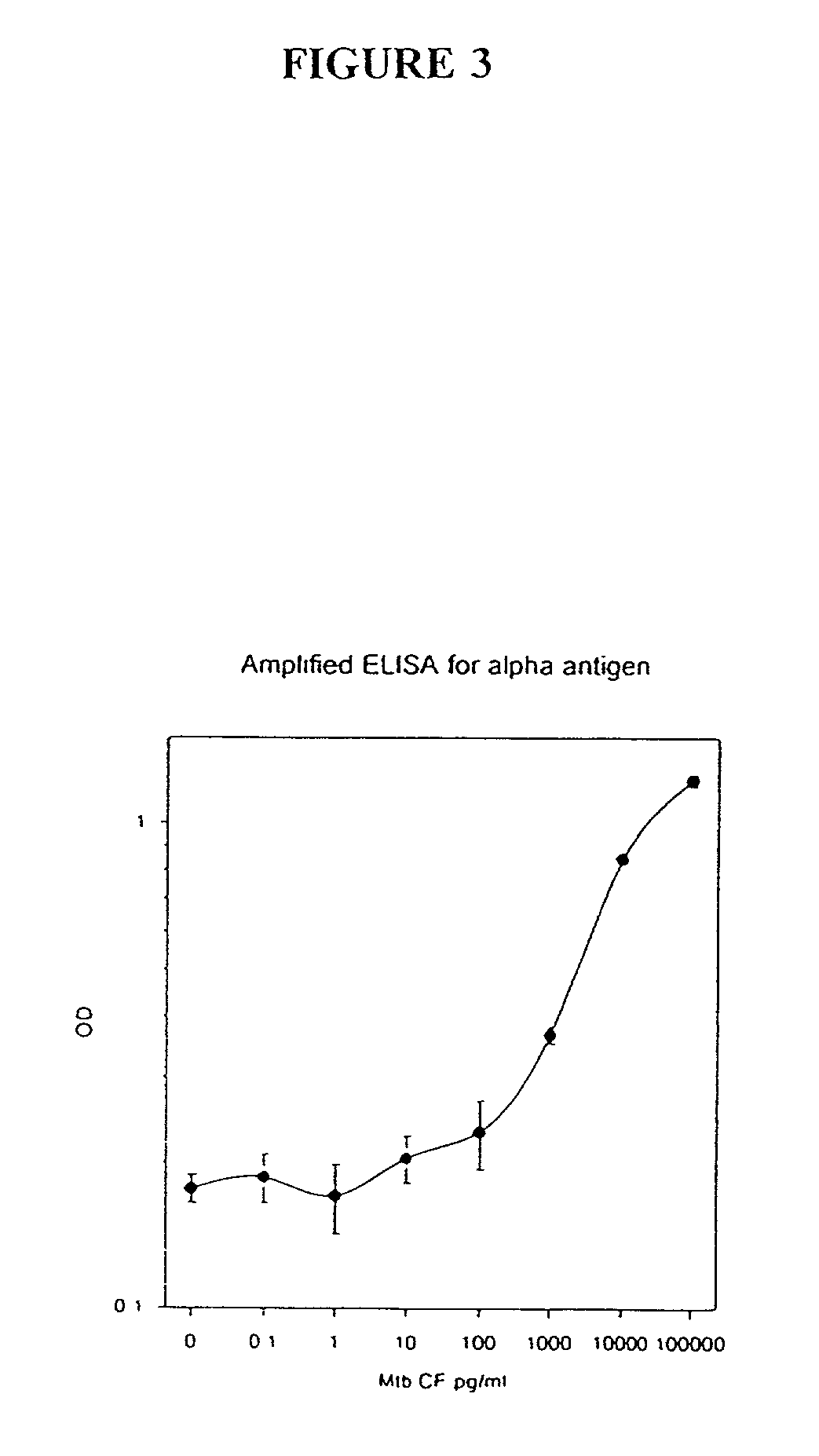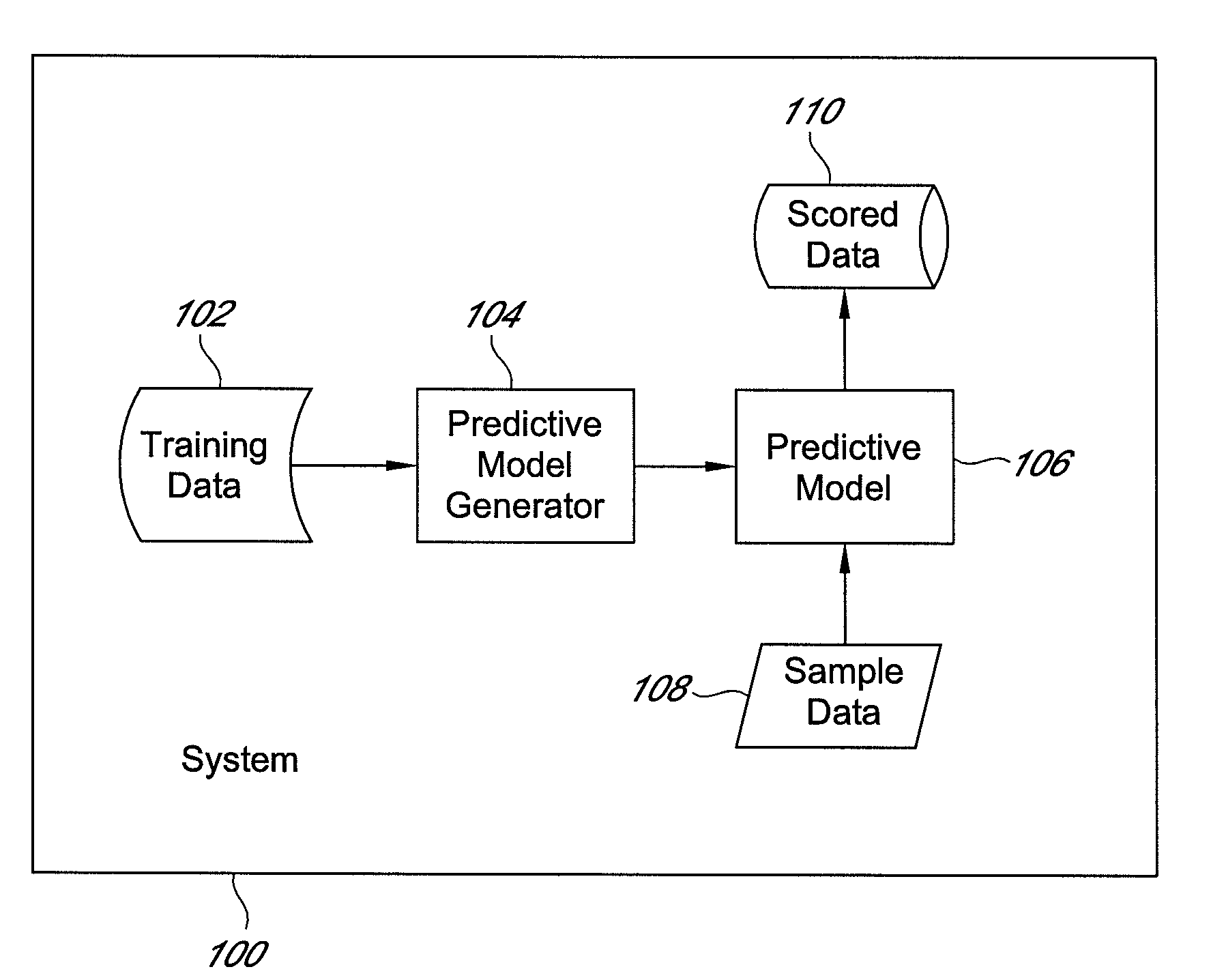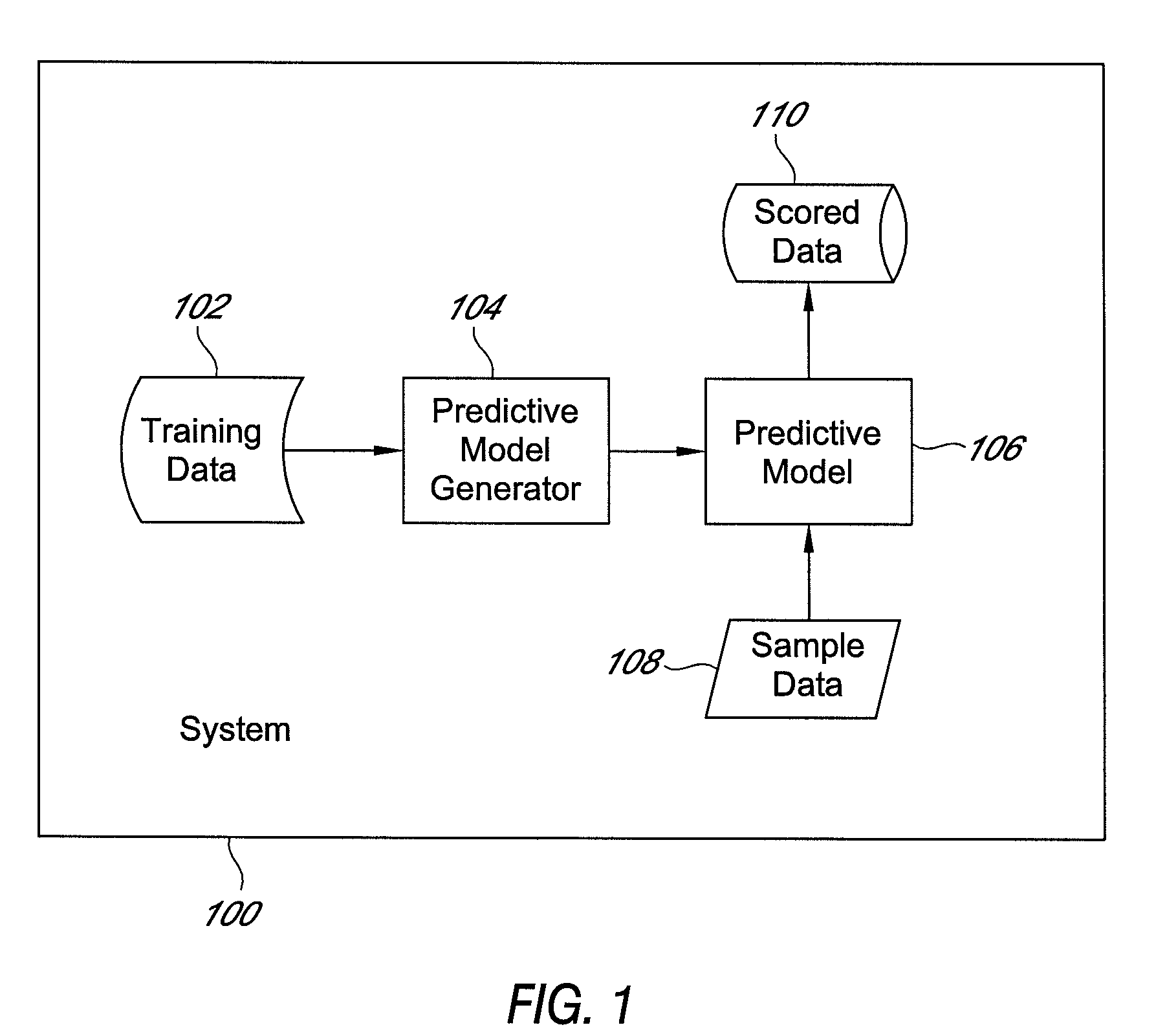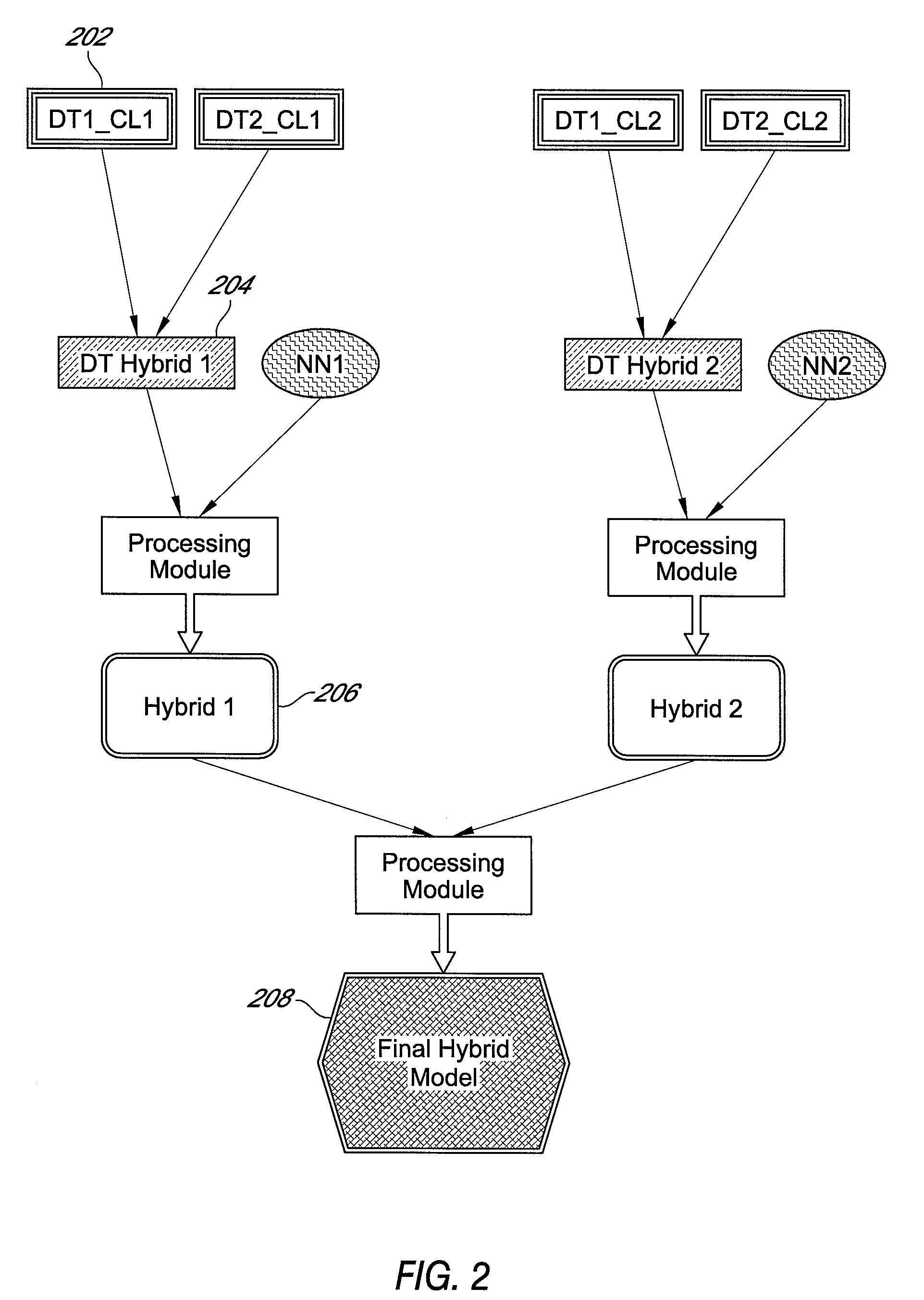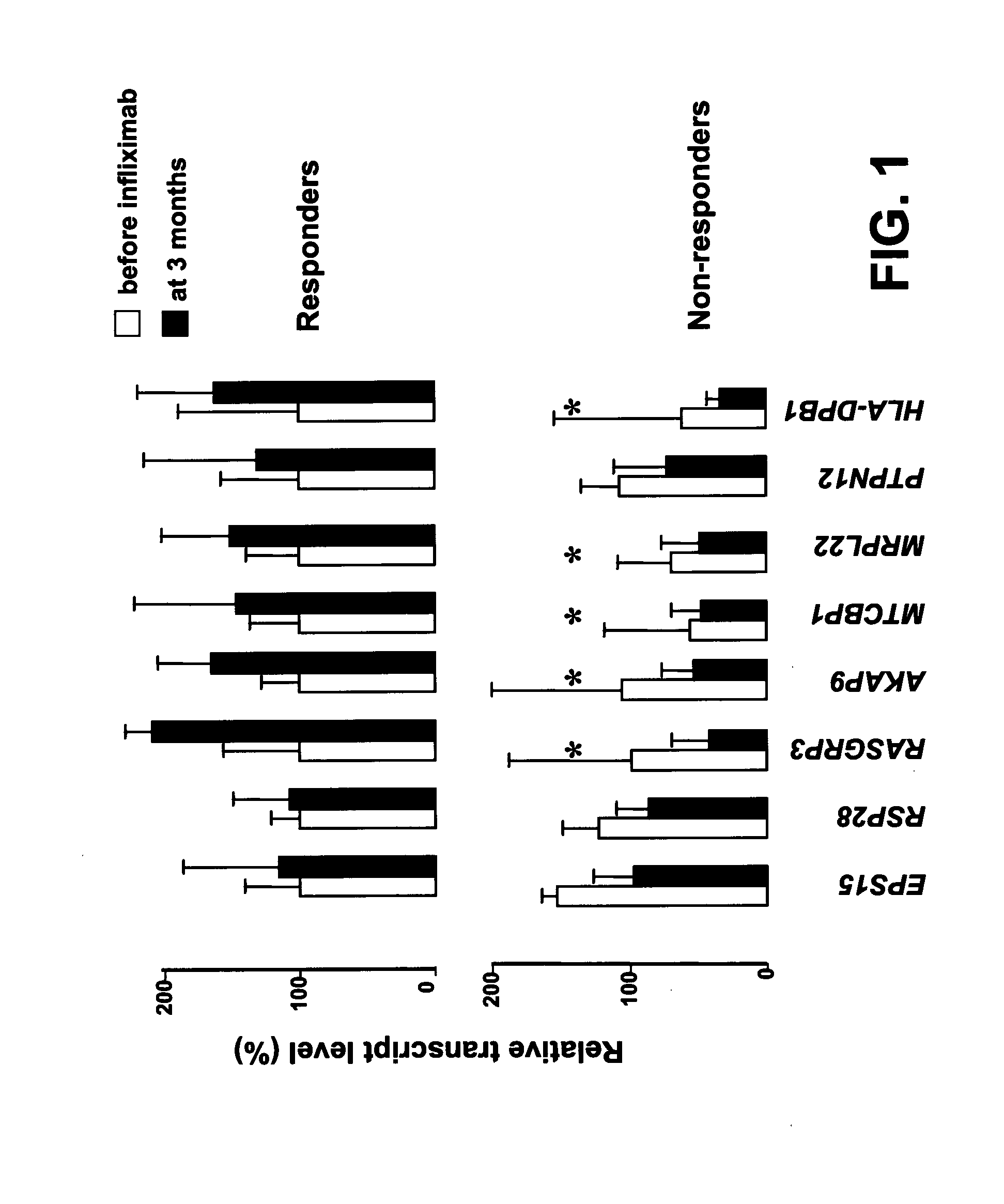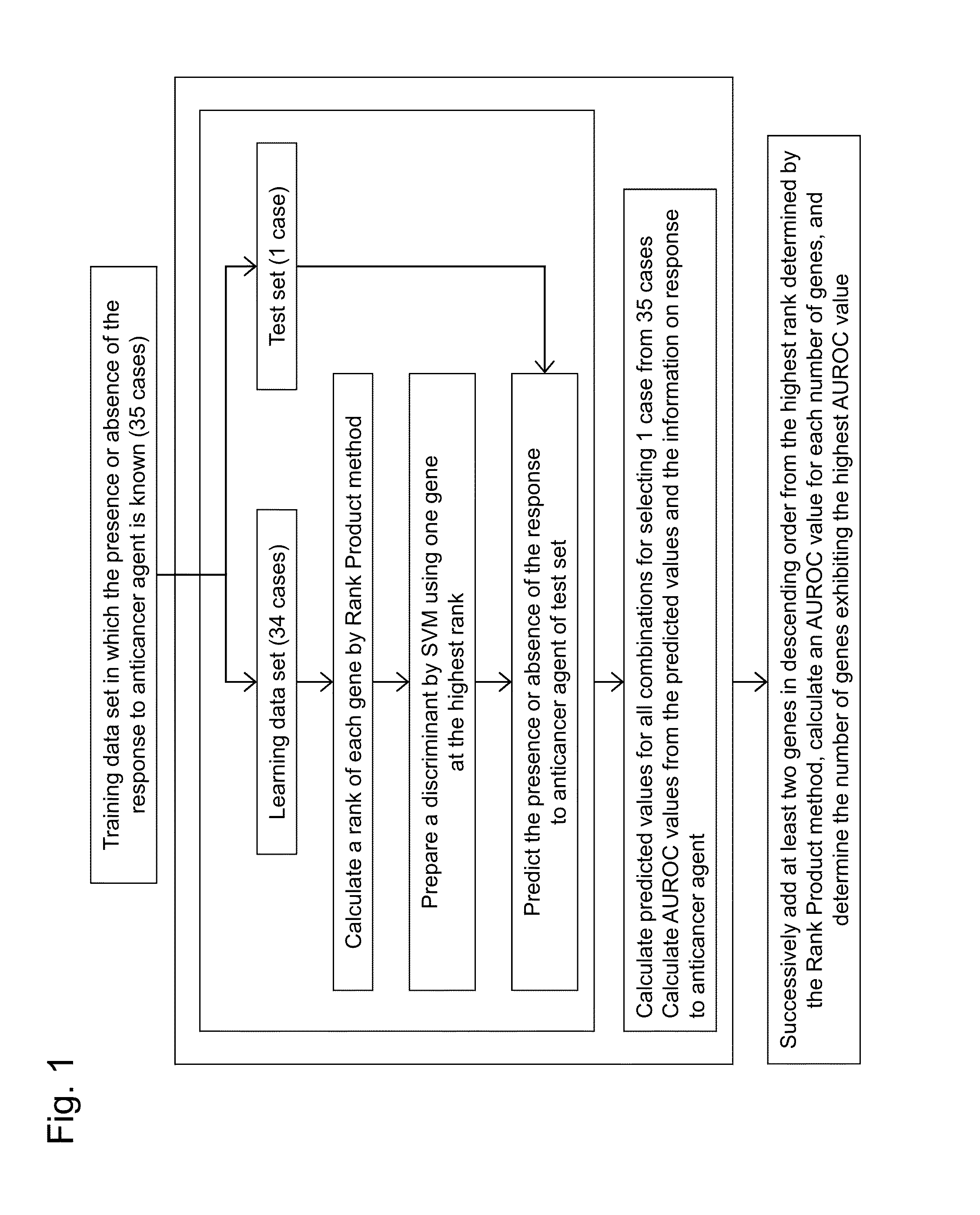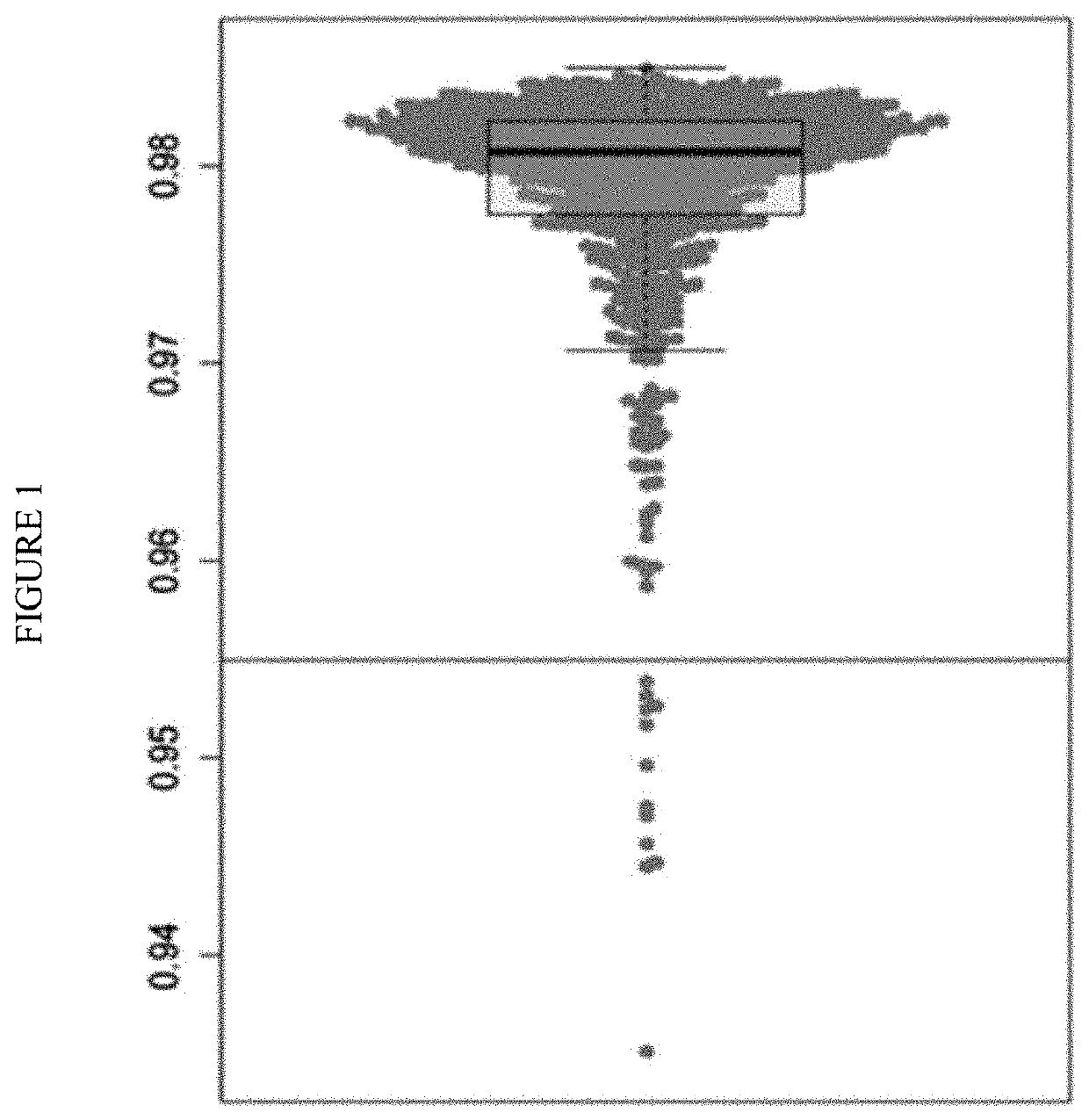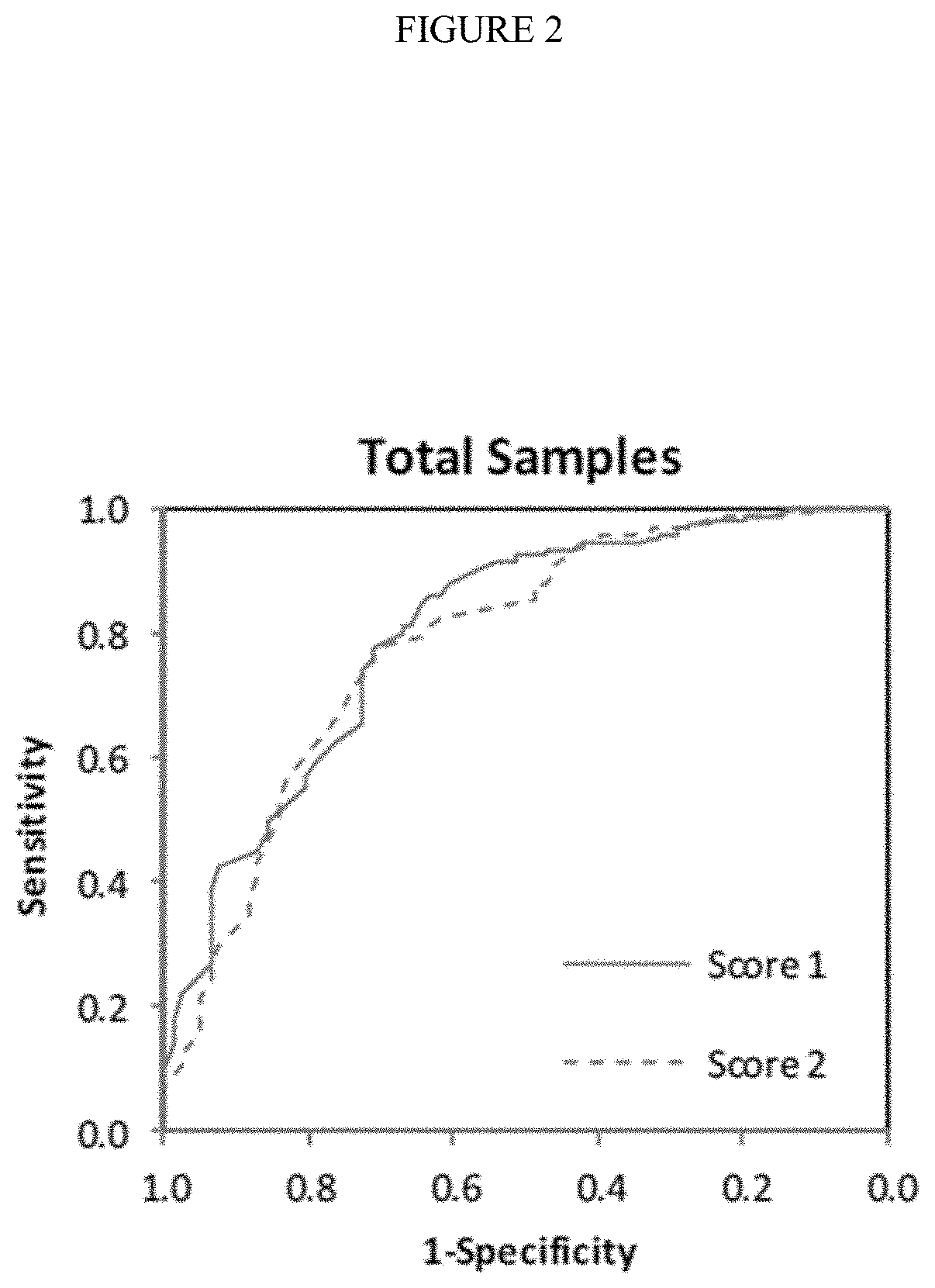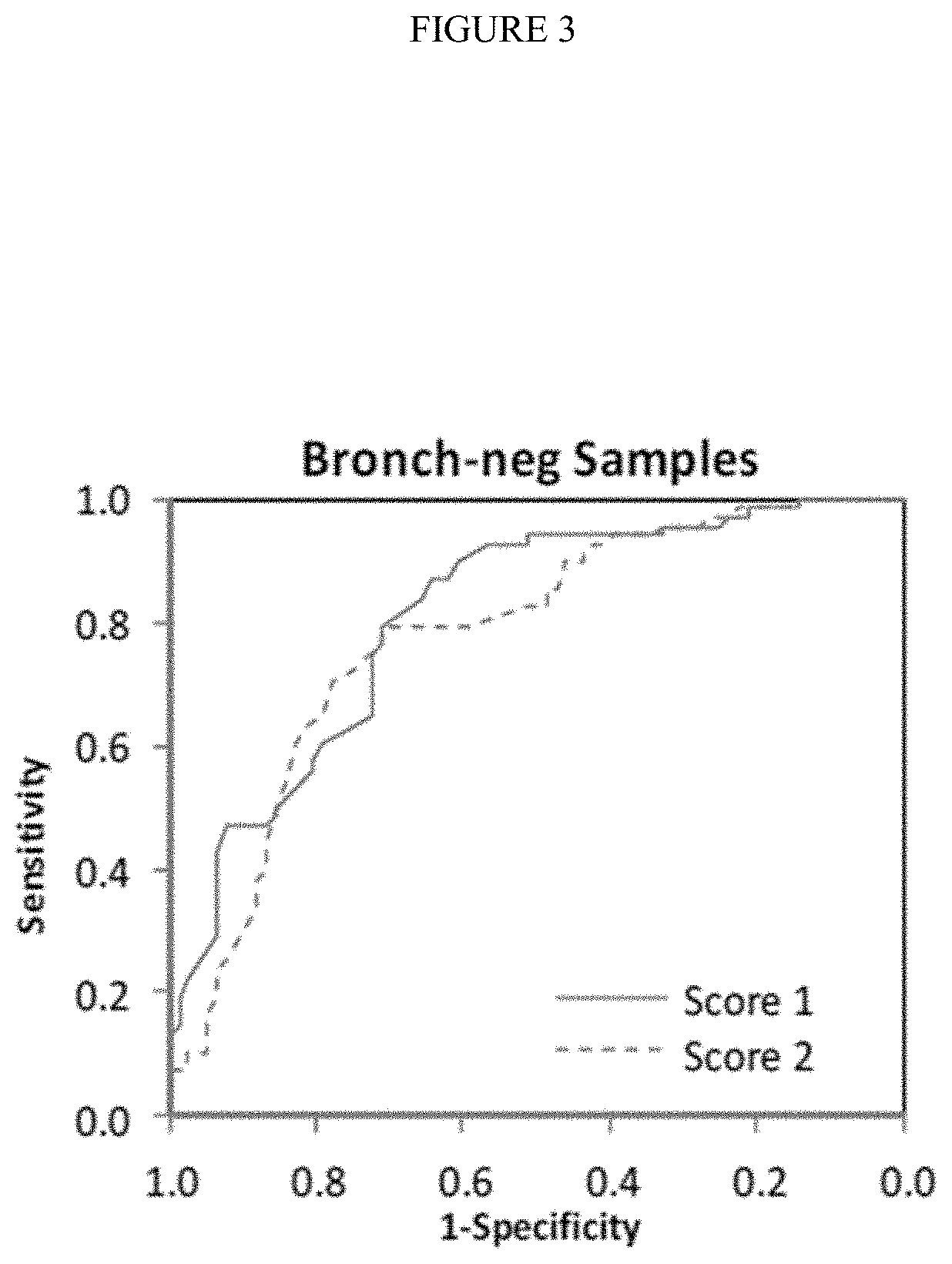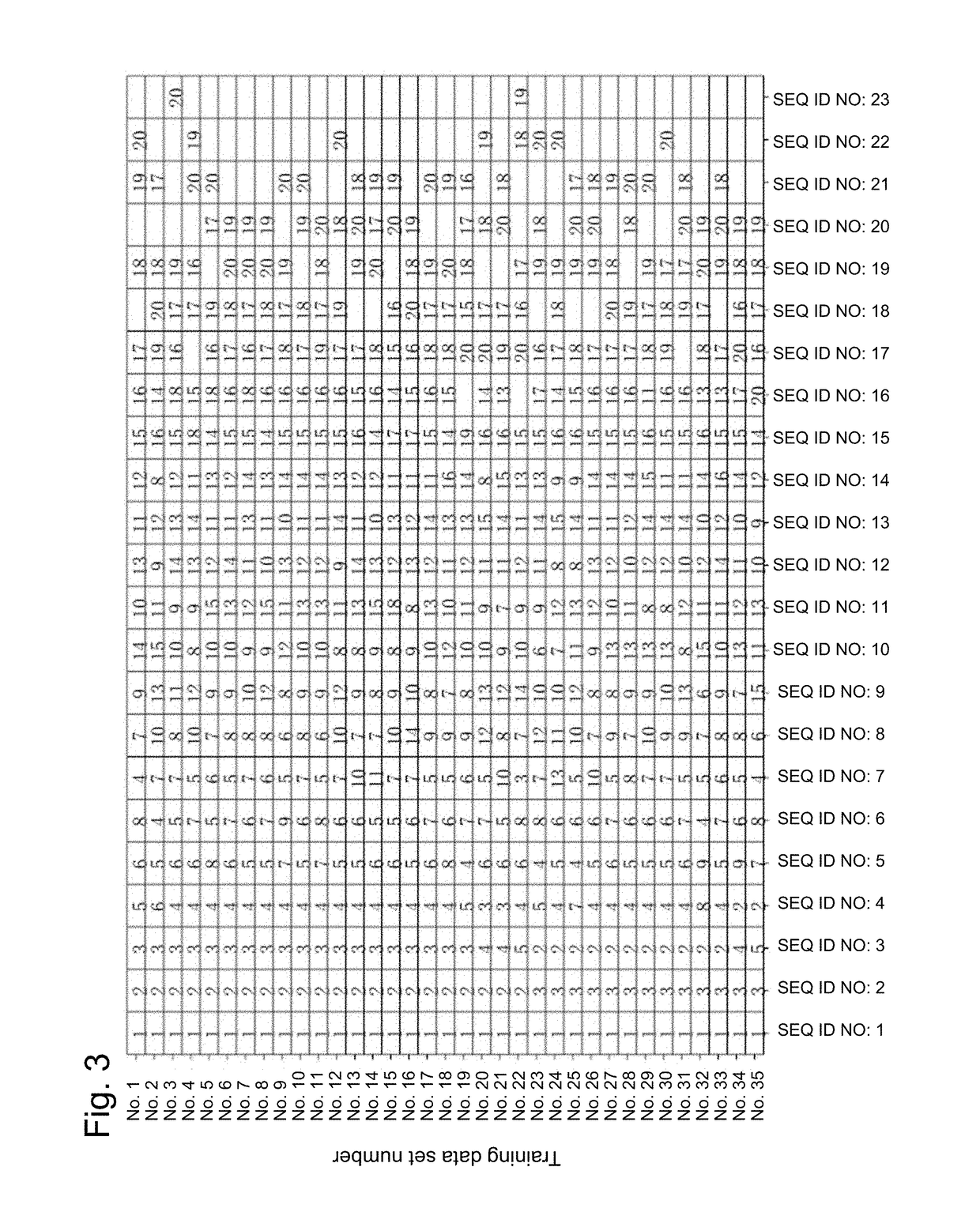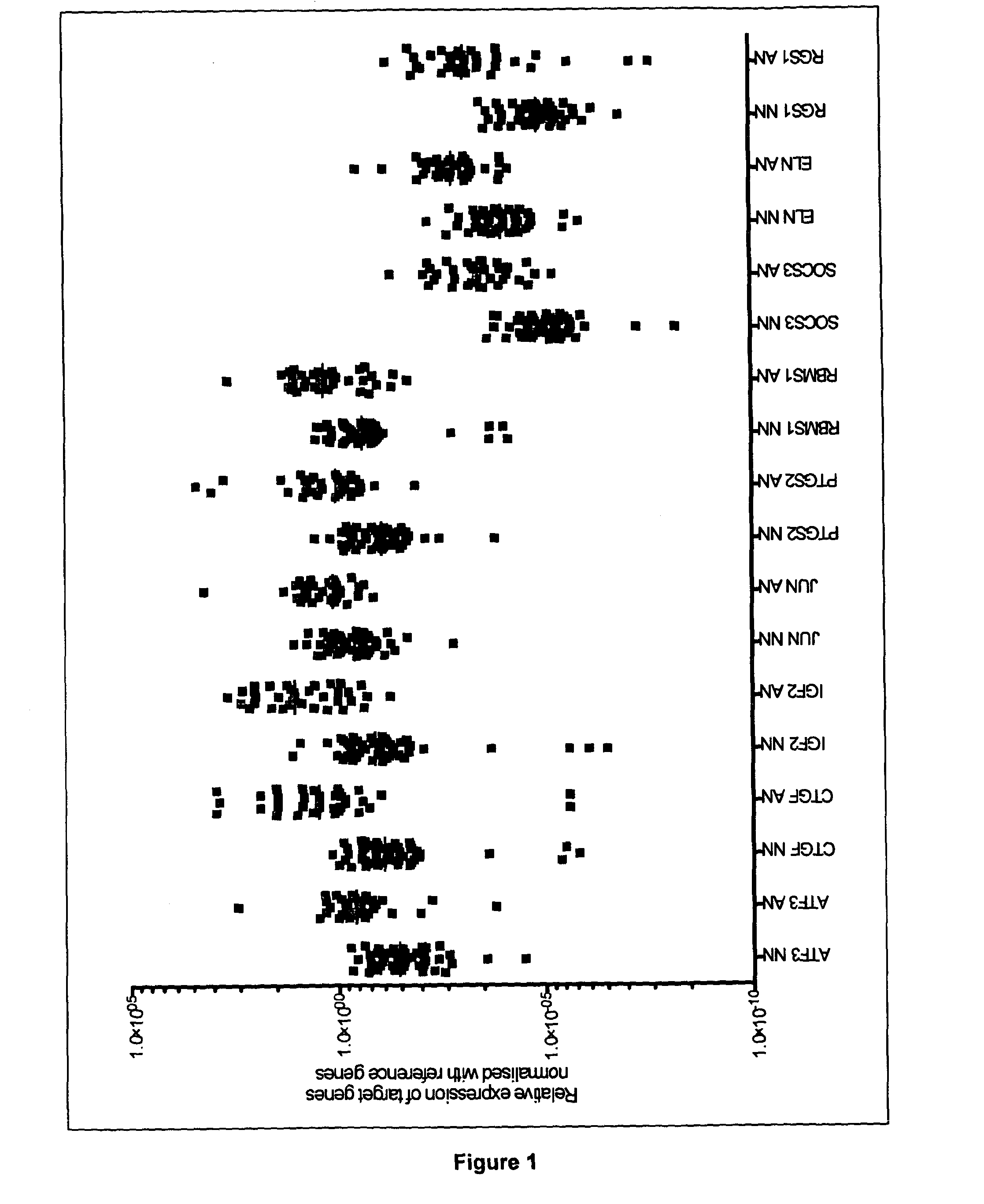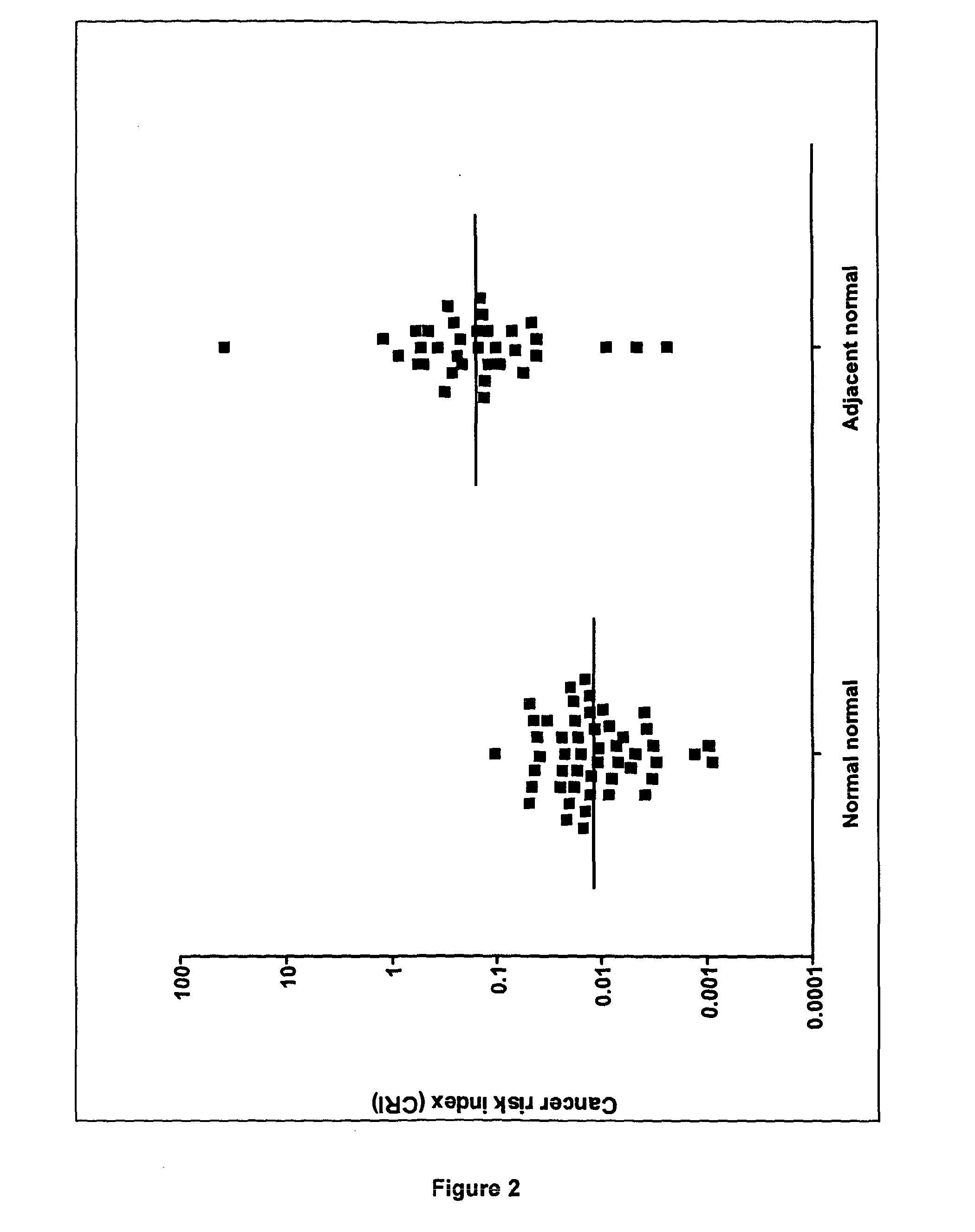Patents
Literature
Hiro is an intelligent assistant for R&D personnel, combined with Patent DNA, to facilitate innovative research.
45results about How to "Useful prediction" patented technology
Efficacy Topic
Property
Owner
Technical Advancement
Application Domain
Technology Topic
Technology Field Word
Patent Country/Region
Patent Type
Patent Status
Application Year
Inventor
Identification of polynucleotides and polypetide for predicting activity of compounds that interact with protein tyrosine kinase and or protein tyrosine kinase pathways
InactiveUS20060046249A1Useful predictionSugar derivativesMicrobiological testing/measurementProtein-Tyrosine KinasesIntrinsic resistance
The present invention describes polynucleotides and polypeptides that have been discovered to correlate to the relative intrinsic sensitivity or resistance of cells, e.g., colon cell lines, to treatment with compounds that interact with and inhibit src tyrosine kinases. These polynucleotides and polypeptides have been shown, through a weighted voting cross validation program, to have utility in predicting the intrinsic resistance and sensitivity of colon cell lines to these compounds. Such polynucleotides and polypeptides whose expression levels correlate highly with drug sensitivity or resistance comprise predictor or marker sets of polynucleotides and polypeptides that are useful in methods of predicting drug response, and as prognostic or diagnostic indicators in disease management, particularly in those disease areas in which signaling through src tyrosine kinase of the src tyrosine kinase pathway is involved with the disease process.
Owner:BRISTOL MYERS SQUIBB CO
Methods of monitoring the modulation of the kinase activity of fibroblast growth factor receptor and uses of said method
InactiveUS20110045511A1Useful predictionOrganic active ingredientsBiological material analysisFibroblast growth factor receptor 2Biomarker (petroleum)
The present invention relates generally to methods of in vitro diagnostics, in particular the use of a compound selected from the group consisting of fibroblast growth factor 23 (FGF23), inorganic phosphorus (P), the product of inorganic phosphorus and total calcium (P×tCa), osteopontin (OPN) and parathyroid hormone (PTH) as biomarker. Said biomarkers can be used to monitor the modulation of fibroblast growth factor receptor (FGFR) kinase activity, in particular its inhibition, and / or the occurrence of secondary effects of FGFR inhibition. The invention further provides methods and kits relating to these uses.
Owner:NOVARTIS AG
Cardiovascular Risk Event Prediction and Uses Thereof
InactiveUS20130085079A1Improve performanceEasy to usePeptide librariesNucleotide librariesVascular riskCvd risk
Owner:SOMALOGIC INC
RM2 antigen (beta1,4-GalNAc-disialyl-Lc4) as prostate cancer-associated antigen
InactiveUS20050221397A1Useful predictionBiological material analysisBiological testingAntigenSerum ige
A novel carbohydrate antigen, β1,4-GalNAc-disialyl-Lc4, defined by monoclonal antibody RM2, is expressed in human prostate cancer, but not in benign prostate hypertrophy (BPH) or normal prostate gland. Monoclonal antibody RM2 or other antibodies with similar specificity are useful for diagnosis of prostate cancer by immunohistology of biopsy samples, specifications from a total prostatectomy, and quantitative determination of RM2 antigen in sera of patients.
Owner:NORTHERN ADVANCEMENT CENT FOR SCI & TECH
Method of selecting an active oligonucleotide predictive model
InactiveUS20050026198A1Good choiceUseful predictionSugar derivativesMicrobiological testing/measurementCell biologyAntisense oligonucleotides
The present invention provides a method of identifying a predictor of antisense oligonucleotide activity by identifying properties of oligonucleotides, evaluating oligonucleotide activity of the oligonucleotides, and correlating oligonucleotide activity with the properties. A high correlation between oligonucleotide activity and a property indicates that the property is a predictor of oligonucleotide activity.
Owner:IONIS PHARMA INC
Methods for classifying high-dimensional biological data
InactiveUS7062384B2Useful predictionBiostatisticsCharacter and pattern recognitionData selectionHigh dimensional
Provided are methods of classifying biological samples based on high dimensional data obtained from the samples. The methods are especially useful for prediction of a class to which the sample belongs under circumstances in which the data are statistically under-determined. The advent of microarray technologies which provide the ability to measure en masse many different variables (such as gene expression) at once has resulted in the generation of high dimensional data sets, the analysis of which benefits from the methods of the present invention. High dimensional data is data in which the number of variables, p, exceeds the number of independent observations (e.g. samples), N, made. The invention relies on a dimension reduction step followed by a logistic determination step. The methods of the invention are applicable for binary (i.e. univariate) classification and multi-class (i.e. multivariate) classifications. Also provided are data selection techniques that can be used in accordance with the methods of the invention.
Owner:RGT UNIV OF CALIFORNIA
Methods for evaluating lung cancer status
InactiveUS20150088430A1Readily availableUseful predictionSugar derivativesNucleotide librariesOncologyLung cancer
The invention in some aspects provides methods of determining the likelihood that a subject has lung cancer based on the expression of informative-genes. In other aspects, the invention provides methods for determining an appropriate diagnostic intervention plan for a subject based on the expression of informative-genes. Related compositions and kits are provided in other aspects of the invention.
Owner:VERACYTE INC
Computer-aided method for predicting particle uptake by a surface of a moving object
InactiveUS20090171633A1Minimizing computational resourceUseful predictionAnalogue computers for vehiclesComputation using non-denominational number representationChemical physicsComputer-aided
The invention relates to a computer-aided method for predicting particle uptake by a surface of an object moving in a flow current, comprising the following steps: preparing a discrete model of said object and the surrounding flow, including a projection area (21) for projecting said particles formed by a mesh of cells (23) with an identical size, and a mesh of cells (13) of said surface (11); simulating the projection of particles with a different size from said projection area (21) on the surface (11), both the density Di of projected particles and their size distribution being identical for the cell (23); obtaining for each cell (13) of said surface (11) the local uptake efficiency parameter β by dividing the density Df of particles impacting against said cell (13) by the density Di of particles projected from the projection area (21).
Owner:AIRBUS OPERATIONS SL
Prediction of an individual's risk of developing rheumatoid arthritis
InactiveUS20090265116A1Useful predictionDisease diagnosisBiological testingAnti ccp antibodiesRecent onset
Methods for predicting the likelihood of development of rheumatoid arthritis for individuals that present with recent-onset undifferentiated arthritis. The methods are based on the determination of a set of clinical markers and / or parameters and determining a predicted risk for developing rheumatoid arthritis. Clinical markers and parameters that are decisive for the risk for developing rheumatoid arthritis may include serum levels of C-reactive protein, Rheumatoid factors, anti-CCP antibodies, anti-MCV as well as age, gender, localization of the joint complaints, length of morning stiffness, and number of tender and / or swollen joints or combinations thereof. The method may be performed by a computer. The invention further relates to a computer, a sample analyser and a computer program product for performing the method and a data carrier with the computer program product.
Owner:EXAGEN DIAGNOSTICS
Detection of mycobacteria
InactiveUS6383763B1Rapid assessmentLess sensitiveAntibody ingredientsBiological testingMicrobiologyGenus
The present invention is directed to methods and compositions for the detection of infection and disease due to members of the genus Mycobacterium. In particular, the present invention is well-suited to the detection and identification of patients with disease or infection due to M. tuberculosis or MAC.
Owner:CASE WESTERN RESERVE UNIV
Data analysis method and system
ActiveUS8788444B2Increases difference and “ contrast ”Useful predictionBiostatisticsSpecial data processing applicationsOvertrainingTraining phase
The present invention relates to the analysis of data to identify relationships between the input data and one or more conditions. One method of analyzing such data is by the use of neural networks which are non-linear statistical data modelling tools, the structure of which may be changed based on information that is passed through the network during a training phase. A known problem that affects neural networks is the issue of overtraining which arises in overcomplex or overspecified systems when the capacity of the network significantly exceeds the needed parameters. The present invention provides a method of analyzing data using a neural network with a constrained architecture that mitigates the problems associated with the prior art.
Owner:COMPANDX LTD
Probe, probe set and information acquisition method using the same
ActiveUS20070264635A1Improve accuracyUseful predictionSugar derivativesMicrobiological testing/measurementMedicineGene product
The present invention provides a combination of genes useful for information which can be used for the prediction of postoperative recurrence of gastric cancer and the acquisition of the information, a probe detecting these genes and a primer set for PCR, a method for detecting these genes using the primer and the primer set and a method for obtaining the information which can be used for the prediction of recurrence. Information useful for the prediction of postoperative recurrence can be obtained by determining the presence or absence of gastric cancer cells which show a possibility of postoperative recurrence in a sample such as an peritoneal wash collected from a patient by detecting a particular gene specific to gastric cancer cells or a gene product thereof.
Owner:CANON KK +1
Biomarkers for predicting prostate cancer progression
The present invention relates to the identification and use of gene expression profiles with clinical relevance to prostate cancer. In particular, the invention provides the identity of genes whose expression, at the transcriptional and protein levels, is correlated with prostate cancer progression. Methods and kits are described for using these gene expression profiles in the study and / or diagnosis of prostate cancer diseases, in the prediction of prostate cancer progression, and in the selection and / or monitoring of treatment regimens. The invention also relates to the screening of drugs that target these genes or their protein products, in particular for the development of therapeutics for modulating prostate cancer progression.
Owner:THE BRIGHAM & WOMEN S HOSPITAL INC
Base-station failure predictor
ActiveUS20110053530A1Promote resultsEasy to predictNetwork traffic/resource managementSubstation equipmentComputer scienceMobile communication network
A base-station failure predictor comprises an interface to at least one sub-unit of a base-station of a mobile communications network, an alarm memory, and an alarm evaluator. The base-station failure predictor is adapted to receive a plurality of alarms from the at least one sub-unit of the base-station via the interface. The plurality of alarms are stored in the alarm memory, and the alarm evaluator is adapted to analyze the frequency of the plurality of alarms to assess a likelihood of failure of the at least one sub-unit concerned. A base-station failure prediction method is also proposed. Furthermore, a computer program product with instructions for the manufacture and a computer program product enabling a processor to carry out the base-station prediction method are also proposed.
Owner:TELEFON AB LM ERICSSON (PUBL)
Method, system and computer program product for levinthal process induction from known structure using machine learning
InactiveUS20090024375A1Useful predictionAnalogue computers for chemical processesBiostatisticsMachine learningComputer program
A method is provided for predicting the structure of a macromolecule by modeling the folding process from the unfolded to the folded state based on machine learning a training set of known structures.
Owner:UNIVERSITY OF GUELPH
Cardiovascular Risk Event Prediction and Uses Thereof
InactiveUS20150168423A1Cardiovascular events may be avoidedPropensity for such events can be accurately determinedHealth-index calculationMicrobiological testing/measurementVascular riskBiomarker (petroleum)
Owner:SOMALOGIC INC
Data analysis method and system
ActiveUS20110282819A1Increases difference and “ contrast ”Useful predictionMicrobiological testing/measurementDigital computer detailsNeural network analysisTraining phase
The present invention relates to the analysis of data to identify relationships between the input data and one or more conditions. One method of analysing such data is by the use of neural networks which are non-linear statistical data modelling tools, the structure of which may be changed based on information that is passed through the network during a training phase. A known problem that affects neural networks is the issue of overtraining which arises in overcomplex or overspecified systems when the capacity of the network significantly exceeds the needed parameters. The present invention provides a method of analysing data using a neural network with a constrained architecture that mitigates the problems associated with the prior art.
Owner:COMPANDX LTD
Base-station failure predictor
ActiveUS8433260B2Easy to predictIncrease flexibilityNetwork traffic/resource managementSubstation equipmentComputer scienceMobile communication network
A base-station failure predictor comprises an interface to at least one sub-unit of a base-station of a mobile communications network, an alarm memory, and an alarm evaluator. The base-station failure predictor is adapted to receive a plurality of alarms from the at least one sub-unit of the base-station via the interface. The plurality of alarms are stored in the alarm memory, and the alarm evaluator is adapted to analyze the frequency of the plurality of alarms to assess a likelihood of failure of the at least one sub-unit concerned. A base-station failure prediction method is also proposed. Furthermore, a computer program product with instructions for the manufacture and a computer program product enabling a processor to carry out the base-station prediction method are also proposed.
Owner:TELEFON AB LM ERICSSON (PUBL)
Genes and genes combinations based on gene mknk1 predictive of early response or non response of subjects suffering from inflammatory disease to cytokine targeting drugs (CYTD) or Anti-inflammatory biological drugs
InactiveUS20150240304A1Increase valueStrong specificityOrganic active ingredientsNucleotide librariesTBX21Cytokine
This invention refers to the field of human medicine and specifically to the diagnosis / prognosis of the responsiveness to a cytokine targeting drug (Cy TD) or an anti-inflammatory biological drug treatment of a subject suffering from an inflammatory disease. More precisely, the present invention concerns a method for the in vitrodiagnosis / prognosis of a Cy TD or an anti-inflammatory biological drug responsive or non-responsive phenotype, comprising: (a) determining from a subject biological sample an expression profile comprising the gene MKNK1; or of the genes MKNK1 and GNLY; or of the genes MKNK1, TBX21 and TGFBR3; or of the genes MKNK1, GNLY, and ADI1; or of the genes MKNK1, GNLY, ADI1, and IL1B; or of the genes MKNK1, GNLY, ADI1, IL1B, and IL1R1; or of the genes MKNK1, PRF1, TBX21, TGFBR3, IFNGR2, FYN, IL1B and CFLAR; or of the genes MKNK1, PRF1, TBX21, TGFBR3, IFNGR2, FYN, IL1B, CFLAR, MAPK14 and GNLY; or of the genes MKNK1, PRF1, TBX21, TGFBR3, IFNGR2, FYN, IL1B, CFLAR, CD14 and TGFBR2; or of the genes MKNK1, IFNGR2, IL1B, MAPK14, GNLY, and CD14; or of the genes MKNK1, PRF1, TBX21, TGFBR3, IFNGR2, IL1B, CFLAR, MAPK14, GNLY, CD14 and TGFBR2; or of all the 46 genes of following Tables 2, 3 and 4; or Equivalent Expression Profile thereof, provided that, in said Equivalent Expression Profile thereof, MKNK1 is not replaced by gene S 100A8 nor gene MAPK14, and (ii) optionally one or more housekeeping gene(s), (b) comparing the obtained expression profile with at least one reference expression profile, and (c) determining the responsive or non-responsive phenotype from said comparison. The present invention also relates to kits and nucleic acid microarrays for performing said method. The present invention also relates to methods of treatment of inflammatory disease-suffering patients.
Owner:CERVINO ALESSANDRA +2
Methods for diagnosing sepsis
InactiveUS20010034032A1Effectively prescribeUseful predictionSugar derivativesPeptide/protein ingredientsPathologyMolecular biology
Methods and kits for detecting polymorphism that are predictive of a subject's susceptibility to developing sepsis are described.
Owner:INTERLEUKIN GENETICS
Healthcare management system and method
ActiveUS11244029B1Improves care managementCost-effectiveMedical data miningDrug and medicationsMedical emergencyPatient compliance
The disclosed methods and systems are generally directed to the combined application of predictive analytics with clinical decision analysis to provide optimal recommendations for the implementation of various health care management programs including, for example, prescription medication adherence interventions, and providing recommendations for medication adherence interventions for individual patients, based on predictions of patient adherence and predicted or expected responses to available interventions. Such interventions may be instituted in advance of a potential negative outcome, e.g., non-adherence, to prevent or reduce the occurrence of a negative outcome and realize greater return on investment. The disclosed systems and methods generally determine a predictive function based at least on historical patient data and predictive variables derived from the historical data, apply the predictive function to data of candidate patients and provide a recommended course of health care management based on an output of the predictive function applied to a clinical decision analysis.
Owner:RXANTE INC
Assays for detecting neutralizing autoantibodies to biologic therapy
ActiveUS9465027B2Improve accuracyLow toxicityBiological material analysisSolid sorbent liquid separationTherapeutic treatmentAutoantibody production
The present invention provides assays for detecting and measuring the presence or level of neutralizing and non-neutralizing autoantibodies to biologics such as anti-TNFα drug therapeutics in a sample. The present invention is useful for monitoring the formation of neutralizing and / or non-neutralizing anti-drug antibodies over time while a subject is on biologic therapy. The present invention is also useful for predicting and / or determining the cross-reactivity of neutralizing anti-drug antibodies in a subject's sample with alternative biologic therapies. As such, the present invention provides information for guiding treatment decisions for those subjects receiving therapy with a biologic agent and improves the accuracy of optimizing therapy, reducing toxicity, and / or monitoring the efficacy of therapeutic treatment to biologic therapy.
Owner:PROMETHEUS BIOSCI INC
Detection of mycobacteria
The present invention is directed to methods and compositions for the detection of infection and disease due to members of the genus Mycobacterium. In particular, the present invention is well-suited to the detection and identification of patients with disease or infection due to M. tuberculosis or MAC.
Owner:WALLIS ROBERT S
Method of selecting an active oligonucleotide predictive model
InactiveUS20090082975A1Good choiceUseful predictionSugar derivativesMicrobiological testing/measurementCell biologyAntisense oligonucleotides
Owner:IONIS PHARMA INC
Method for Predicting Responsiveness to TNF Alpha Blocking Agents
ActiveUS20090252740A1Reliable predictionRevolutionized therapeutic caringSugar derivativesMicrobiological testing/measurementA-DNAAlpha blocking
The invention provides an in vitro method for predicting whether a patient would be responsive to a treatment with a TNFα blocking agent, which method comprises determining the expression level of eight genes in a biological sample of said patient, wherein said genes are EPS15, HLA-DPB1, AKAP9, RASGRP3, MTCBP-1, PTNP12, MRPL22 and RPS28. The invention further provides a DNA chip for performing such method.
Owner:INST NAT DE LA SANTE & DE LA RECHERCHE MEDICALE (INSERM)
Composition and method for predicting response to trastuzumab therapy in breast cancer patients
InactiveUS20140073533A1Strong specificityImprove forecast accuracyMicrobiological testing/measurementLibrary screeningNucleotideMedicine
This invention relates to a composition and a method for prediction of a response to Trastuzumab therapy in a breast cancer patient, and more specifically, a composition, a kit, a DNA chip, and a method for predicting a response to Trastuzumab therapy by using polynucleotides each comprising a nucleotide sequence represented by any of SEQ ID NOs: 1 to 9, 11 to 19, and 21 to 23 in the Sequence Listing or a nucleotide sequence derived therefrom by substitution of u with t, mutants thereof, derivatives thereof, or fragments thereof comprising at least 16 continuous nucleotides, or a polynucleotide comprising a complementary sequence thereof, and using an increase or decrease in Her2 protein expression level as an indicator.
Owner:TORAY IND INC +1
Methods for evaluating lung cancer status
PendingUS20210040562A1Readily availableUseful predictionMicrobiological testing/measurementBiostatisticsOncologyBiology
The disclosure in some aspects provides methods of determining the likelihood that a subject has lung cancer based on the expression of informative-genes. In other aspects, the disclosure provides methods for determining an appropriate diagnostic intervention plan for a subject based on the expression of informative-genes. Related compositions and kits are provided in other aspects of the disclosure.
Owner:ALLEGRO DIAGNOSTICS CORP
Method for predicting response to trastuzumab therapy in breast cancer patients
InactiveUS9873916B2Strong specificityImprove forecast accuracyMicrobiological testing/measurementAntibody ingredientsA-DNANucleotide sequencing
This invention relates to a composition and a method for prediction of a response to Trastuzumab therapy in a breast cancer patient, and more specifically, a composition, a kit, a DNA chip, and a method for predicting a response to Trastuzumab therapy by using polynucleotides each comprising a nucleotide sequence represented by any of SEQ ID NOs: 1 to 9, 11 to 19, and 21 to 23 in the Sequence Listing or a nucleotide sequence derived therefrom by substitution of u with t, mutants thereof, derivatives thereof, or fragments thereof comprising at least 16 continuous nucleotides, or a polynucleotide comprising a complementary sequence thereof, and using an increase or decrease in Her2 protein expression level as an indicator.
Owner:TORAY IND INC +1
Method of detecting risk of cancer
InactiveUS20130287701A1Useful predictionUltrasonic/sonic/infrasonic diagnosticsMicrobiological testing/measurementCTGFGenetic Materials
The invention provides an ex vivo method for detecting the risk of cancer in a patient, comprising the step of: (iii) detecting the expression level of the genes identified herein as ELN, RGS-1, SOCS-3, PTGS-2, JUN, ATF-3, CTGF, IGF-2 and RBMS-1, in a sample of genetic material isolated from a patient, wherein the combined expression level indicates the risk of cancer in the patient from whom the sample was isolated.
Owner:JENKINS PAUL
NOVEL GPIIIa GENE
ActiveUS20100173292A1Useful predictionSugar derivativesMicrobiological testing/measurementThymineThrombocytopenic purpura
An object of the present invention is to provide a probe, primer, primer set and antibody for determining neonatal alloimmune thrombocytopenic purpura or the risk of developing it. According to the present invention, there is provided a probe, primer, primer set and antibody for use in the detection of the thymine residue at position 1297 in the GPIIIa.
Owner:JAPANESE RED CROSS SOC +1
Features
- R&D
- Intellectual Property
- Life Sciences
- Materials
- Tech Scout
Why Patsnap Eureka
- Unparalleled Data Quality
- Higher Quality Content
- 60% Fewer Hallucinations
Social media
Patsnap Eureka Blog
Learn More Browse by: Latest US Patents, China's latest patents, Technical Efficacy Thesaurus, Application Domain, Technology Topic, Popular Technical Reports.
© 2025 PatSnap. All rights reserved.Legal|Privacy policy|Modern Slavery Act Transparency Statement|Sitemap|About US| Contact US: help@patsnap.com
